




Get assistance with personal and clinical care, household chores, assistive technology and transport
Community support and wellbeing
Remain connected through social group and individual activities, outings, allied health and therapy services, seniors gyms, respite and carer services
Maintain an independent lifestyle in one of our vibrant retirement living communities
Residential care
Specialist 24/7 care and support, including dementia and palliative care, within a safe and caring community
With services across Victoria, Uniting AgeWell’s expert, caring team can help you find the right services to meet your needs.

Transparency of information is one of the many key things COTA Australia has advocated on aged care reforms throughout the years. The Royal Commission into the Quality & Safety of Aged Care highlighted so many issues and revealed shocking stories of the experiences people have had. It set Australia on a path of serious and fundamental reform.
Throughout this, Council on the Ageing (COTA) Australia has consistently and forcefully advocated for aged care that is of high quality, transparent and based on aged care services that are delivered in a way that upholds older people’s human rights.
The Royal Commission accepted many of these points and we are now seeing the development of a new rights-based Aged Care Act, redesign of the support at home system to help more people remain independent in their own homes – where most people want to stay as they age – new transparent information sources like the Star Rating system, more staffing in aged care facilities and better funding for better care.
The job is not yet done, but COTA Australia remains on the case in aged care reform and in many other areas that impact on your life, like health care and employment. Tackling the impacts of ageism head-on. Ensuring that older people have the same rights – including access to good information to make their own decisions – without question.
Finding the right aged care service for yourself or assisting your loved one is one of the most important things you will ever have to do. Yet, it can be hard to find the information you need to help you make this decision.
This Guide can assist you to find and make the right decision. It is an independent resource to make you aware of options available in your local area. You can order a hard copy to browse through and share with families or friends. Alternatively, you may go online at AgedCareGuide.com.au if that’s your preference, where you can filter your searches to just those services in a local area and request a quote from the provider you select.
COTA Australia, as the national peak advocacy body for people over 50 years of age, has partnered with DPS because we both value and focus on the need for you to have good information to make choices. More than that though, AgedCareGuide.com.au gives you the opportunity to leave a review of the services – be they provided in the home, in a nursing home or a retirement village. All of us like to hear from our peers or others in the same situation about what is good, bad or indifferent when making decisions. Your experience and feedback provides more invaluable information for another person in their search and decision making.
I hope you will find this guide useful in your decision making and that you will share your experiences to help others in the same situation. We will continue the work to make aged care services better and uphold your rights in all of their interactions with you.
Wishing you all the best in finding the service that is right for you.
Patricia Sparrow CEO, COTA Australia
Aged Care Guide
VICTORIA 2024, 24 TH Edition
Printed August 2024
RRP $66, inc GST
ManagingEditor
DavidMcManus
david.mcmanus@dps.com.au
GeneralManager
BradKeighran
DPSPublishingPtyLtd ● 1300186688 ● POBox1026,PasadenaSA5042 info@dps.com.au ● AgedCareGuide.com.au ● ABN53090793730 Advertising Distribution Proudlyproduced sales@dps.com.au distribution@dps.com.au andprinted 1300186688 1300186688 inAustralia
The factual material contained in this publication has been obtained from information supplied by government departments, industry and organisations, by personal interview and by telephone and correspondence. At the time of going to press the publisher believed that all information submitted for publication was accurate and complete. However, the publisher can take no responsibility for inaccuracies or incomplete information that may have been supplied to them in the course of their enquiries detailed above. The facts published indicate the result of those enquiries and no warranty as to their accuracy can be given. The information in this publication is general in nature and does not constitute financial, legal or other professional advice. Readers should consider whether the information is appropriate to their needs and seek professional advice tailored to their personal circumstances. Images within this publication may have been altered from their original format. © Copyright. No part of this publication can be used or reproduced in any format without express permission in writing from The Publisher. ® Aged Care Guide is a registered trademark.
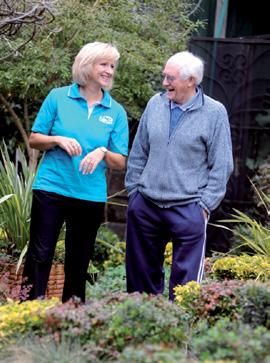
• Community based support services provided throughout metropolitan Melbourne.
• Maintaining independence and quality of life.
• Services including personal care, home care, respite, overnight care, 24 hour care and home and garden maintenance.
• Services available 24 hours per day, 7 days per week.
• Now offering Level 1-4 Home Care Packages.
Omni-Care Pty Ltd
Ground Flr, 110 Chifley Dr Preston, Victoria 3072
Ph: 03 9484 8102
Fax: 03 9484 8134
info@omni-care.com.au www.omni-care.com.au


Welcome to the 24 th edition of the Aged CareGuideVictoria . For over 20 years, the Aged Care Guide – previously known as the DPSGuidetoAgedCare – has provided seniors and their families with essential information about aged care in Australia.
Our print and online publications are essential tools to help you understand and access aged care services – from home and community care to residential accommodation.
We have created easy-to-follow flow charts to help you visualise and further your understanding of the aged care process.
You can follow along with this book as it breaks down the aged care journey into five distinct steps; from researching care to managing your services, you will find detailed descriptions of what is available to you and how to access it.
The ‘Finding providers’ chapter features a comprehensive list of government-subsidised residential accommodation and approved Home Care Package providers, along with in-home care, products and services you can access.
You can use the printed AgedCareGuide in conjunction with our website, AgedCareGuide.com.au , for more information about the services offered by individual aged care homes, home care providers, professional services and products. Simply type in the associated ‘DPS Web ID’ number from this book in the space provided on the website to link directly to a chosen home, service or product. Current bed vacancies, as well as home care availability and retirement units for sale or lease, are also listed on the website. Alternatively, you may wish to use our Compare & Connect tool to help you find and compare aged care providers that best meet your needs and search criteria in your preferred area to help with the decision-making process.
We are promoting transparency in the sector and opening up dialogue between consumers and providers through Ratings and Reviews on AgedCareGuide.com.au , which gives you the opportunity to share positive or negative stories about your aged care experience with a service and for providers to respond to this feedback and address any potential concerns.
We would like to wish you all the best as you embark on your journey in locating the home or services to suit your needs. When engaging a service, please advise the aged care home, retirement village, community care provider or product and service provider that you found their details in the Aged Care Guide. We welcome any suggestions on the information we can provide in the next edition of the AgedCareGuide or on AgedCareGuide.com.au . To further assist in your journey, simply email our Managing Editor David McManus at david.mcmanus@dps.com.au. We look forward to hearing from you.
– Brad Keighran
Information featured in this 24 th edition of the Aged Care Guide will help you to choose accommodation and care in Victoria.
The information in this guide will help you understand aged care, in-home and community care options in Australia.
The AgedCareGuide also includes a comprehensive directory of in-home care services (see pages 117–118); Home Care Package providers (see pages 126–134 for Metro Victoria, 135–140 for Regional VIC); residential aged care homes (see pages 142–181) and facilities or services specific to your cultural background (see pages 185–189 for homes, 190–195 for HCPs).
There’s a number of ways you can use the AgedCareGuide in order to find aged care homes, Home Care Packages, products or services.
The index on page 224 can help you to find the main information topics in the book and can direct you to the different directory tables for aged care homes, in-home care options or products/services in the back of the guide.
Each council district, also known as a ‘local government area’ or ‘LGA,’ on the referenced page includes a list of suburbs with homes or villages in each suburb listed in alphabetical order.
Locality search: If you know the council district, suburb or town, then use the cross-reference index on page 120. Each of these lists are in alphabetical order and you can then refer to the page referenced.
Cultural search: If you are of non-English speaking background or prefer to find a home or service specific to your cultural needs, refer to the multicultural listings on pages 185 –195.
If you are looking for centre-based care, day therapy centres or other products and services, you can find this in the directory section from page 196 onwards.
Visit AgedCareGuide.com.au for a complete list of services available near you



Accessing aged care can be complicated and confusing if you have not used support services before or don’t know where to start.
Whether you need support to remain living independently at home or you’re looking for alternative accommodation, it is important to know what options are available to you. Different types of care include:
Different care options that may be available to you include support at home through government-funded programs, such as the Commonwealth Home Support Programme (CHSP) or the Home Care Packages (HCP) program.
Home care products and services range from assistance with daily chores and personal care to providing meals, transport assistance and home maintenance.
Basic assistance is offered through the CHSP but if your needs exceed the level of support offered though this program, then a level 1– 4 Home Care Package can offer higher intensity support to help you stay at home.
Private providers can also deliver a range of home support services. They are not government funded and you will need to pay for services out of your own pocket.
Carewest Group has developed Allanvale Private Nursing Home into a leading family focused home. With highly skilled and professional staff, families will have peace-of-mind while residents retain their independence, freedom and choice.
Comfortablyathomewhere
• Registered Nurse On-site 24/7
• Government Funding
• Outings, Social Events & In-house Activities Program
• Nutritionally Balanced Meals, prepared
• Services Include Dietitian,
• Newly completed accommodation available
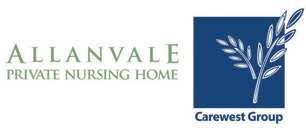
There’s a few different support options available if you only need support for a short period of time. These options include respite care, which can be delivered in the community or in a residential care home, offering the opportunity for both you and your carer to take a short break.
At the end of a hospital stay, the Transition Care Programme provides short-term assistance to help improve your independence and confidence.
If you have not been admitted to hospital, the Short-Term Restorative Care Programme is a flexible option that focuses on regaining wellbeing over a short period of time.
Moving into residential aged care can ensure quality of life and comfort if you are no longer able to remain living independently at home. Residential aged care facilities, also known as ‘nursing’ or ‘aged care homes,’ provide 24/7 care as well as a range of other support services and recreational activities. The cost of care in most Australian aged care homes is subsidised by the Australian Government.
There’s also a number of non-government-funded residential aged care homes, often referred to as ‘supported and assisted living complexes’ and you will need to cover the entire cost of accommodation and care delivered.
Retirement villages are not nursing homes; they are clusters of villas, units or apartments and you will need a reasonable level of independence to move into a retirement setting. The government does not fund retirement options and daily care is generally not included. However, some providers may offer support services at an additional charge or this can be accessed separately through government-funded home support options.
You can use assistive technology to enhance your quality of life and remain independent for longer. Older people may face increased mobility hazards and challenges as they age, so learning to adapt and stay safe is important.
Falls represent a significant injury and fatality risk, both at home and in the community, for those over the age of 65. Mobility equipment, assistive technology and aids can help you adapt as your body changes and take care of yourself.
Advocacy
CarerHelp carerhelp.com.au
Carers Australia
02 6122 9900 carersaustralia.com.au
Carers Victoria
1800 514 845 carersvictoria.org.au
COTA Information Service
1300 135 090 cotavic.org.au
COTA Victoria
03 9655 2100 cotavic.org.au
Elder Rights Advocacy
1800 700 600 elderrights.org.au
National Seniors
1300 765 050 nationalseniors.com.au
Older Person’s Advocacy Network (OPAN)
1800 700 600 opan.org.au
Seniors Rights Victoria
1300 368 821 seniorsrights.org.au
Cultural
Centre for Cultural Diversity in Ageing (PICAC)
03 8823 7979 culturaldiversity.com.au
Ethnic Communities Council of Victoria
03 9354 9555 eccv.org.au
Federation of Ethnic Communities’ Council of Australia
02 6282 5755 fecca.org.au
Translating and Interpreting Service
1800 131 450 tisnational.gov.au
Government
Aged Care Quality & Safety Commission
1800 951 822 agedcarequality.gov.au
Department of Veterans’ Affairs
1800 838 372 dva.gov.au
My Aged Care
1800 200 422 myagedcare.gov.au
Services Australia service.vic.gov.au
Services Australia - Aged Care Line 1800 227 475 servicesaustralia.gov.au/ageing
Services Australia - Carers & Disability
13 27 17 servicesaustralia.gov.au/carers
Services Australia - Medicare 13 20 11 servicesaustralia.gov.au/medicare
Services Australia - Older Australians
13 23 00 servicesaustralia.gov.au/ageing
Dementia Australia
1800 100 500 dementia.org.au
Dementia Behaviour Management Advisory
Services (DBMAS)
1800 699 799 dementia.com.au
Dementia Support Australia (DSA) 1800 699 799 dementia.com.au
National Continence Helpline
1800 330 066 continence.org.au
National Dementia Helpline
1800 100 500 dementia.org.au
Seniors Health Card 13 23 00 servicesaustralia.gov.au/ commonwealth-seniors-health-card
Office of the Public Advocate
1300 309 337 publicadvocate.vic.gov.au
State Trustees VIC 1300 138 672 statetrustees.com.au
Victoria Legal Aid 1300 792 387 legalaid.vic.gov.au
Victorian Civil and Administrative Tribunal (VCAT) 1300 018 228 vcat.vic.gov.au
Carer Gateway 1800 422 737 carergateway.gov.au
National Relay Service 1800 555 660 accesshub.gov.au
Open Arms - Veterans & Families Counselling 1800 011 046 openarms.gov.au
Relationships Australia 1300 364 277 relationships.org.au
Residents of Retirement Villages Victoria 03 9015 8402 rrvv.org.au
Seniors Card (VIC) 1300 797 210 seniorsonline.vic.gov.au
SWEP (Statewide Equipment Program) 1300 747 937 swep.bhs.org.au
Volunteering Victoria 03 9052 4524 volunteeringvictoria.org.au
Before you can access government-subsidised aged care supports, such as in-home care, community supports or moving into a nursing home, you need to register with My Aged Care and be assessed to work out exactly what level of support you need.
My Aged Care is the agency that looks after every governmentfunded aged care program. The service can help you find information about subsidised aged care options, including the different types of government-funded services available, eligibility for those services and the associated costs.
You, a family member, carer or client representative can register your details with My Aged Care so that you can be assessed to access any government-subsidised services.
When you first call the My Aged Care Contact Centre on 1800 200 422, an operator will register you and ask you a number of questions about your personal circumstances and care needs.
These questions will be quite basic and shouldn’t take too long. All you will need when you call is your Medicare card, as this information is stored with your other details on the My Aged Care database.
Examples of the questions you will be asked are:
Are you currently receiving aged care services?
Are you getting support from a carer or family member?
Can you prepare your own meals and do housework?
Do you need assistance taking a shower or bath and do you need help getting dressed?
Are there any health concerns or did you have a recent fall?
Do you feel lonely or isolated?
Are there any safety risks in the home?
The aim of this screening is to figure out what needs and support you require and whether you are eligible for a further assessment in person.
My Aged Care will assign you an aged care client number and will open a central client record. This record will include the information you have provided, as well as document your assessed needs and any government-funded care services you have been found eligible for.
If you are successful in your initial application with My Aged Care, the contact centre operator will refer you for an aged care assessment to determine what level of support you would benefit from the most.
If the operator decides that you are eligible for basic home support through the Commonwealth Home Support Programme (CHSP), you will be assessed by a Regional Assessment Service (RAS).










QLD: Arundel | Bardon | Boondall | Carina | Carseldine | Corinda | Enoggera | Gympie Kangaroo Point | Maroochydore | Mitchelton | Southport | Toowoomba
NSW: Auburn | Bronte | Edgecliff | Haberfield | Heathcote | Yennora
VIC: Eltham | Kew | Hawthorne | Werribee
Otherwise, if the operator believes you require higher care support, either through a Home Care Package (HCP) or moving into an aged care home, a member of Aged Care Assessment Services (ACAS) will visit you to assess you.
To access basic government-funded home support under the Commonwealth Home Support Programme (CHSP), you need to be assessed by the Regional Assessment Service (RAS). For more information about CHSP, go to page 16.
The RAS assessment helps to identify your needs for support and any goals for retaining or regaining skills that enable you to continue living independently in the community. It is conducted free of charge and independently from service provision which ensures assessors consider the full range of options when responding to you and your carers’ needs and goals.
Some of these needs may include assistive technology, therapeutic interventions, community care services or other support organisations. RAS assessors liaise with other service providers, GPs/specialists and community support networks to make sure desired outcomes are achieved. If your care needs have increased, the RAS can also plan and coordinate an exit from the CHSP and transfer you to other appropriate service systems, including Home Care Packages and/or residential care, if required.
The service also provides care coordination if you have multiple providers or more complex needs.
If you are no longer able to manage at home without basic assistance, the Aged Care Assessment Services (ACAS) help you and your carers determine what kind of care will best meet your needs.
This may be a Home Care Package (see page 22) provided to you in your own home or residential care in an aged care home (see page 52).
ACAS assessors are generally professionals with medical backgrounds, such as doctors, nurses, social workers, occupational therapists and other health experts.
There is no charge for the assessment as the ACAS is government-funded. Carers, relatives or close friends are encouraged to be involved in the discussion of your needs.
While an ACAS can’t make recommendations about individual homes or community services, they can provide you with information to assist you to make decisions.
To assist you in your search, an independent information source like the Aged Care Guide publications and the linked AgedCareGuide.com.au website can help. These resources give a comprehensive overview of all care options and care providers available.
You may be placed on a waitlist until a package becomes
You can find someone to help you:
Placement consultant
Aged care advisor
Social worker
Case manager
Hospital discharge planner
These professionals know the system really well and their help can make your search much easier.
Other useful people:
Financial advisor
Health fund
Veterans' Affairs
Local council
If your situation is urgent then the ACAS will assess you as quickly as possible
Remember, it takes anything from a few weeks up to more than a few months to find the care home that suits you
You can find someone to help you:
Placement consultant
Aged care advisor
Social worker
Case manager
Hospital discharge planner
Consult your DPS Guide to Aged Care for a list of choices for any of these options or visit AgedCareGuide.com.au
These professionals know the system really well and their help can make your search much easier.
Other useful people:
Financial advisor
Health fund
Veterans’ Affairs
Local council
To help you live independently in your own home and community for as long as possible, there are many home care products and services available.
Depending on your personal situation and the level of assistance you require, you may be entitled to some basic in-home support or more intensive support through a Home Care Package.
After a hospital stay, the Transition Care Programme might be able to assist in your recovery and to return home. Alternatively, you may need to access respite care to give your carer a short break from the caring role. There is a variety of support at home options available that can meet your specific needs.
The government prioritises your care needs to help you live comfortably in your own home.
Home care products and services range from assistance with daily chores to personal care, providing meals, transport assistance, as well as equipment, such as a ramp, walking frame or shower rail to help you live independently in your own home.

The government continues to significantly increase support for home and community-based aged care with particular integrated packages available. Private businesses also offer home care services.
Consumer-directed care (CDC) gives you and your carers greater say about the types of care services you receive and the delivery of those services.
All Home Care Packages are delivered on a CDC basis and the funding for a package is allocated directly to you instead of to the provider.
Providers are required to work in partnership with you to create a package of services that meets your goals/needs and gives you the information you require.
This information should assist in choosing the best provider for you, as well as changing providers if you need.
CDC allows you to determine how much involvement you wish to have when managing your package. It also allows for more transparency around how your package is funded and spent.
All home care services you receive should include ongoing monitoring and reviews from the provider to make sure your package is meeting your needs.
If you want to stay in your own home, but need some help with daily tasks or require entry-level care, the CHSP may be able to help.
The CHSP combines a number of home support options into one streamlined and simplified program. These options include short-term supports, such as respite, transition care and short-term restorative care. It also provides basic ongoing support both at home and in the community, as well as access to wellness programs, day options and centre-based services.
To determine if the CHSP is the right program for you, you will need to be assessed by a Regional Assessment Service (RAS). See page 12 for more information.
If you have more complex needs, a Home Care Package may be a better option. You can access similar services to the CHSP, coordinated and tailored to meet your specific needs (see page 22 for more details).
Contact My Aged Care on 1800 200 422 to find out how you can arrange a home support assessment.
The CHSP is an entry-level, government-subsidised, help program if you can live a somewhat independent lifestyle and don’t require intensive support at home.
The program can also help your carer. If your carer needs to attend to everyday activities, the CHSP can arrange for someone to help you while they are away.
CHSP services provided in the community may include:
social support – social activities in a community-based group setting; transport – help to get out and about for shopping or appointments. Services provided at home may include:
domestic assistance – household jobs such as cleaning, clothes washing and ironing;
personal care – help with bathing, showering, dressing or toileting; home maintenance – minor general repair and care of your house or yard, for example, changing light bulbs or replacing tap washers; home modification – minor installation of safety aids, such as alarms, ramps and support rails in your home;
nursing care – a qualified nurse comes to your home and may, for example, dress a wound or provide continence advice.
Some CHSP services can be provided either at a community centre or in your home, such as:
food services – may include providing meals at a community centre, help with shopping for food, preparing and storing food in your home and delivering meals to your home;
allied health support services – If you have particular health problems you may be able to access allied health services, such as physiotherapy, podiatry, speech therapy, occupational therapy and advice from a dietitian.
You can apply for home help services under the CHSP if you are 65 years or older, or 50 years or older and identify as an Aboriginal and/or Torres Strait Islander person, are still living at home and need help to continue living independently.
You or your carer should contact the My Aged Care contact centre on 1800 200 422 or visit myagedcare.gov.au to apply.
To determine exactly what help you need at home, you will need a home support assessment. The assessment will be done by a representative of the Regional Assessment Service (RAS).
A local RAS assessor will look at your ability to cope with various activities in your daily living.
For more information about assessments, go to page 12.
If you’re in a situation where you have an urgent need for home support services and your safety would be at risk if those needs are not immediately met, it may be possible to receive CHSP services before you have been assessed by a RAS.
This only happens in exceptional circumstances and is only for a limited time until an assessment can be organised to determine long-term care options.
Services generally considered to relieve an urgent need for care include nursing, personal care, meals and transport.
It will depend on your personal circumstances whether you’ll be able to receive interim services before an assessment. Call the My Aged Care contact centre on 1800 200 422 to find out more.
Supports delivered under CHSP are subsidised by the government, however, there generally is still a fee for each service. You are encouraged to contribute towards the cost of your care if you are able to do so.
The amount you contribute depends on the type and number of services you require and can differ from one service provider to the next. Some organisations may charge a set fee for their services, while others may ask for a voluntary donation, charge a membership or subscription fee.
How much you pay is discussed and agreed upon between you and your service provider. The rate is set before you begin receiving the relevant services.
If you are receiving multiple services from one or more service providers and these services overlap, it may be possible to ‘bundle’ the cost for these services.
To find out specific costs you should contact your service provider.
If you accessed Home and Community Care (HACC), National Respite for Carers Programme (NRCP), day therapy centres (DTC) or Assistance with Care and Housing for the Aged (ACHA) prior to 1 July 2015, you may retain access to these services or equivalent CHSP services until other suitable services become available or until the service is no longer required. You can find CHSP-funded services starting on page 117 of the directory section or online on AgedCareGuide.com.au .










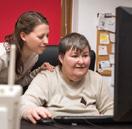


New South Wales
Illawarra 0242443470
Liverpool 0479070119
CentralCoast 0243269030
Queensland Cairns 0458720217
Western Australia
LowerNorthPerth 0893719115
SouthEastPerth 0416205819



Bayside&Peninsula 0395740924
Inner&SouthEastern
Central&NorthernMelb. 0396610499
NorthEast 0390018585
OuterSouthEastern 0406316334
Regional CntrlHghlnds&Djerriwarrh 0353418046
Geelong&Barwon 0352614808
GippslandSouth&West 0397994676
GoulburnValley 0357951635
LoddonMallee 0354860203
SouthWest 0353812076
We have news! BlueCross is now part of the Opal HealthCare family.
This is an exciting time for us, bringing the expert care and services BlueCross is known for together with Opal HealthCare’s reputation for excellence.
Same team, same excellent care.
Now in 53 locations across Victoria
Loving life never gets old


A Home Care Package (HCP) provides services that will help you to remain at home for as long as possible, as well as giving you choice and flexibility in the way that the care and support is provided.
There are four different levels of packages to support people with varying care needs, ranging from Level 1 support, if you have basic care needs, to Level 4, which can support you if you have high-level care needs.
The HCP is allocated to you personally, which gives you more control over the services you receive and who delivers those services.
Once you have been allocated a HCP, you can contact any preferred approved service provider to give you the care you need.
There are four types of packages delivering different levels of care:
1 Level 1 supports people with basic care needs
2 Level 2 supports people with low-level care needs
3 Level 3 supports people with intermediate care needs
4 Level 4 supports people with high-level care needs
The same type of care and services are provided under each HCP level, however, the amount of funding is different depending on what package is allocated to you.
The hours of care are increased at each level of care; more hours of care and services are delivered under Home Care Package Level 4 compared to Level 1.
The ACAS assess the types of care needs you may require. Someone eligible for Levels 3 and 4 HCPs would be eligible for higher levels of residential care if they were to apply for it.
If you are receiving care services through the previous Community Aged Care Package, Extended Aged Care at Home or Extended Aged Care at Home Dementia packages, you will continue to receive these services, but they will have a different name.
Package supplements are available with any of the four levels of Home Care Packages to help with the cost of meeting specific care needs. For example, the Z Dementia Supplement is for people with dementia and the R Veterans’ Supplement is for veterans with an accepted mental health condition.
Some packages can be specifically for people who are e financially or socially disadvantaged, people with Y housing needs or at risk of homelessness or for people who live in t rural, remote or isolated areas.
Some providers might cater to people with a certain g cultural background or have staff who speak a foreign language.
Your care provider will apply for these subsidies and ensure you meet the eligibility criteria.
For Metro HCP providers, see 125–134; for Regional VIC, see 135–140.
Home Care Package services are based on your individual needs. Your provider coordinates the care and services to support you at home and these are agreed between you and your provider. Services may include:
Personal assistance with bathing or showering, personal hygiene and grooming, dressing, toileting and mobility
Assistance with communication, including assistance to address difficulties arising from impaired hearing, sight, speech or lack of shared language. This can also include assistance with the fitting of sensory communication aids, checking hearing aid batteries and assistance in using the telephone
Domestic assistance for household jobs like cleaning, clothes washing and ironing
Food services, such as preparing meals or having meals delivered, assistance with using eating utensils and assistance with actual feeding and providing enteral feeding formula
Nursing services, including dressing wounds by providing bandages, dressings and skin creams, as well as continence management and assistance in using continence aids and appliances
Assistance in taking your medications
Providing mobility equipment, such as crutches, walking frames, wheelchairs and mechanical devices for lifting, bed rails, slide sheets and pressure-relieving mattresses, along with help using those aids
Home maintenance for care of your house or garden


Modifications to the home – installing safety aids, such as alarms, ramps and support rails; identifying risks in the house and proposing solutions
Transport and assistance for appointments or social activities
Encouragement to take part in social and community activities that promote and protect your lifestyle, interests and wellbeing
The following services or items are not included in a package in any of the four levels of home care:
Using the package money as a source of income for the consumer
Purchase of food, except for enteral feeding requirements
Paying for accommodation, such as assistance with home purchase, mortgage payments or rent
Payment of fees or charges for other types of care funded or jointly funded by the Australian Government
Home modifications or capital items that are not related to the consumer’s care needs
Travel and accommodation for holidays
Cost of entertainment activities, such as club memberships and tickets to sporting events
Payment for services and items covered by the Medicare Benefits
Schedule or the Pharmaceutical Benefits Scheme
Gambling activities
For more than 30 years, AccessCare has been empowering older Australians to continue living independently in their own homes.
We provide our clients with customised support, and o er everything from help around the house, transportation to medical appointments and social outings, through to comprehensive Home Care Packages and in-home nursing.
AccessCare is supported by the Kingston City Council, so our team can offer unmatched local knowledge, professional advice and care management.
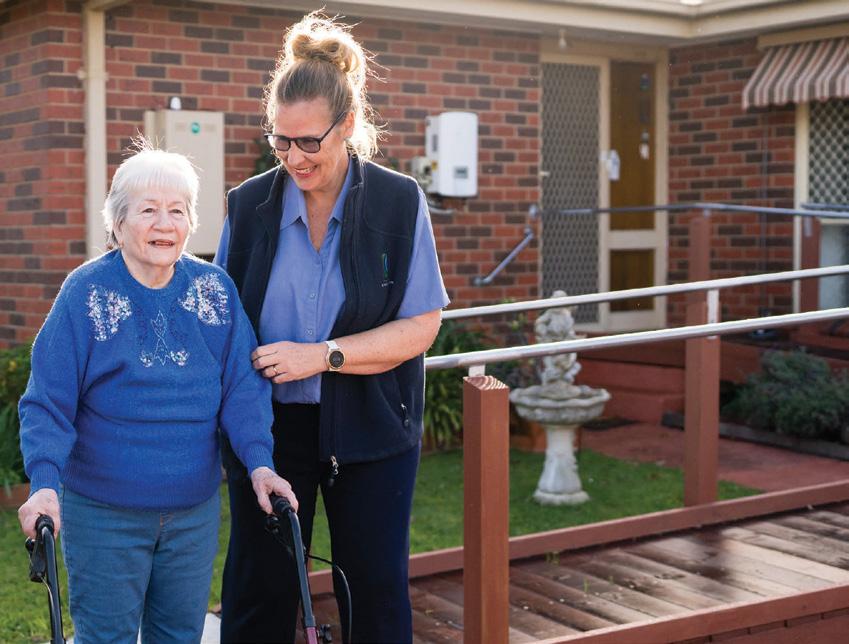
To find out how we can support you, please contact our team: 1300 819 200 accesscare.org.au
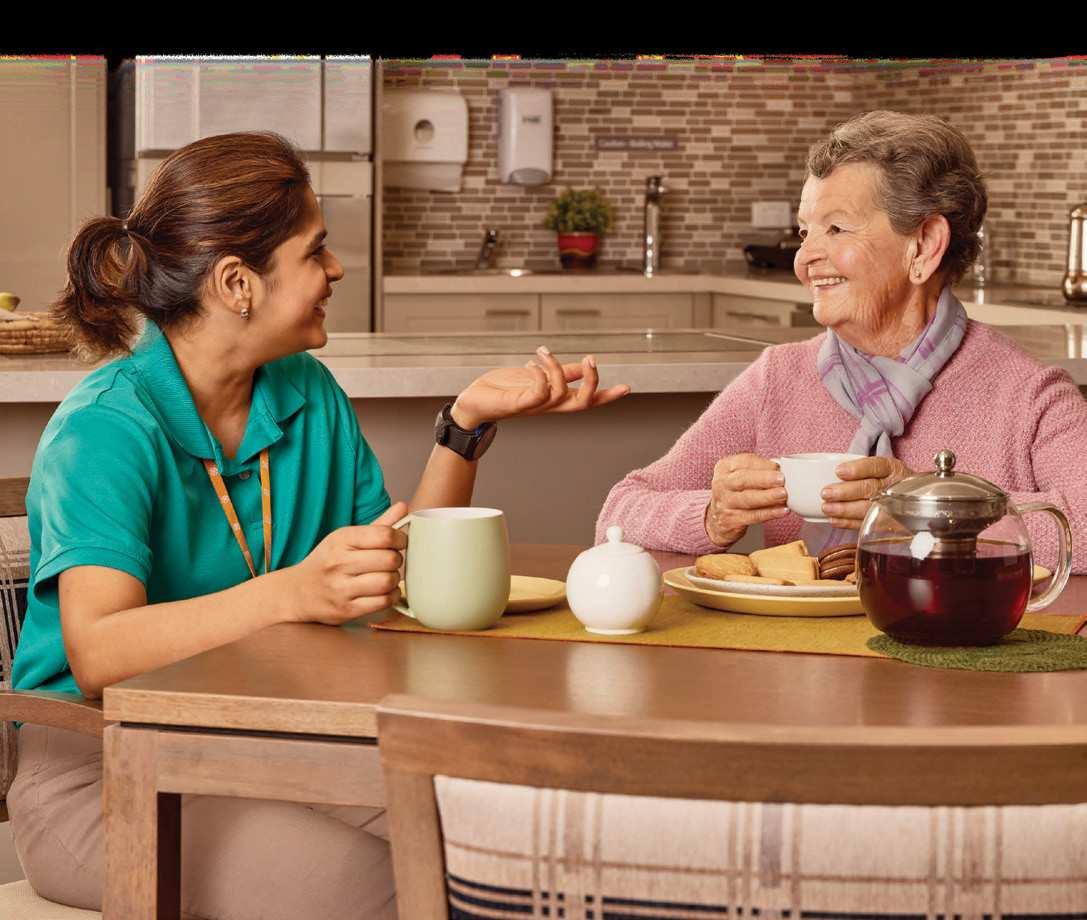
To receive a Home Care Package, you will need to be assessed by the Aged Care Assessment Services (ACAS).
ACAS help you and your carer determine what kind of care will best meet your needs when you are no longer able to manage on your own.
A member of the service, which may include a doctor, nurse, social worker and/or other health professional will meet with you to assess your care needs and how well you are managing at home.
They will identify the right services for your needs and the level of care you require.
ACAS will give you a letter stating the types of subsidised services you have been approved for and might also put you in contact with organisations in your area that can deliver these services.
For more details about assessments, go to page 101 or call 1800 200 422 to organise an assessment.
Access to Home Care Packages is managed through a national pool of all available packages. After approval for a HCP, you will be placed in a ‘queue’ until a suitable package becomes available. This may take a number of weeks or even months.
Your place in the queue will be determined by your personal needs, circumstances and the time you have been waiting for care since your assessment.
When you reach the front of the queue and a package is assigned to you, you can begin to receive care from the provider of your choice.
You have 56 days from the date you were assigned a package to find a provider and commence services.
You can request an extension, for example, if you have trouble finding a service provider. However, if you haven’t started receiving care within 84 days, the package will return to the queue and be assigned to the next person in line.
An organisation that has been approved by the government to provide aged care services is called an approved provider. The government will pay your approved provider your allocated funding so they can pay the carers and any other bills.
An approved provider can manage your care, liaise with you about your preferences, requirements and care plan, but it doesn’t have to be the provider delivering your care.
It is important to know that even though a HCP can only be managed by an approved provider, the care can be delivered by any provider, even one that is not supported by the government. This gives you more choice as to who delivers your care.
This agreement is made between you and your provider and covers information such as the care/services you will receive, along with how much they will cost.



Guided by Calvary’s 135 year history in health care, you will have peace of mind with access to quality care.
Calvary is recognised as a continuing source of healing, hope and nurturing to the people we serve. Our personalised approach ensures every person receives the attention and care that they need. All of our care is delivered with dignity and is designed to improve your health and wellbeing.


Help at home
Get assistance with personal and clinical care, household chores, assistive technology and transport
Community support and wellbeing
Remain connected with social groups, outings, individual support at home, respite and carer services
Strength and resilience
Restore and maintain independence and wellbeing with allied health services, specialist gyms and exercise programs*
Independent living
Maintain an independent lifestyle in one of our vibrant retirement living communities
With services across Victoria, Uniting AgeWell’s expert team can help you find the care and support to meet your needs.
Your provider will work with you to develop a care or service plan that is based on your needs.
The care plan you agree to should include:
The exact types of services you will receive
Who will provide which services
How much involvement the service provider will have in managing and coordinating your services
When your services are delivered
Any exit amount the provider will charge to cover administrative cost if you decide to take your package elsewhere or cease care
The government covers most of the cost of care but your provider may ask you to contribute towards the cost of delivering your services, if you can afford to do so.
Depending on the Home Care Package level you are eligible for, the government pays your approved provider a subsidy toward the cost of your care. This amount is calculated daily and paid monthly to the provider.
The government contributes the following amounts to each person receiving a Home Care Package (July 2024 rates):
Home Care Package Daily subsidy amount Annual amount
4
This amount may be supplemented with an additional payment for people with higher care and specialised support needs, such as a Dementia, Veterans’ or Housing Supplement.
Rates are reviewed generally in March and September each year in line with changes to the Age Pension. This applies to each person receiving a Home Care Package, even if you are part of a couple.
Any government funding you receive will be paid directly to the provider who can spend the funds on the items you both agreed to in the home care agreement.
After commencement of your package, you will receive a monthly statement of income, expenditure and the balance of funds enabling you to see how the money is being spent.
A provider may charge the maximum basic daily fee for a Home Care Package depending on what level you have been given. Maximum fees for each level currently are (July 2024 rates):
Home Care Package
1
2
11.43
12.08
12.42
12.75
There may be additional benefits available depending on your personal circumstances, contact My Aged Care on 1800 200 422 for more details.
If your income is higher than the Age Pension, you may be required to pay extra for your care.
How much extra depends on your income and unavoidable expenses, such as pharmaceutical bills, rent, utilities and other living expenses.
The current Age Pension amount is $1,020.60 per fortnight for a single person or $1,116.30 with the included maximum Pension Supplement and Energy Supplement.
You can negotiate with your provider on the costs of the services and care you receive.
These costs will be agreed upon and fixed in your agreement before you receive any aged care services. This is your legal agreement with your service provider.
No full pensioner will pay an income-tested care fee and no part pensioner will pay an income-tested care fee greater than $6,661.80 per annum.
If you have an income of more than $63,559.60 per year, you will pay an income-tested care fee on a sliding scale up to a total of $13,323.68 per annum.
However, no one will pay more than $79,942.44 in an income-tested care fee over their lifetime (March 2024 rates).


We provide tailored home care support for seniors, to live safely and independently at home. Our respite, support & community services are for all carers.



For over 40 years, our professional team have empowered the lives of senior Victorians. As a not-for-profit organisation, we recognise cultural diversity and the need for community support services. Home Care Support Packages • Domestic assistance
Transport
Social support • Personal care • Allied health & wellness checks Carer Support Services

• Respite & social connection groups & activities
• Program for carers & their loved one who has been diagnosed with dementia
• Education workshops, digital technology training & support







You will only pay an income-tested care fee if you can afford to do so. Your income assessment will determine if you can afford to contribute towards the cost of your care.
Your assets, including the family home, are excluded from the means testing arrangements for home care.
HCPs are portable which means that if you are moving to a different area or if you’re not happy with a provider’s services, you can simply take your package and any remaining funds with you to a new provider.
If you decide to change providers, the provider may charge you an exit fee to cover any administrative cost which will be deducted from any unspent funds.
This is the amount that is ‘left over’ in your HCP budget and it will move with you to a new provider.
If you no longer require your HCP, these unspent funds will be returned to the government.
Exit fees may vary between providers and the amount should be clearly stated in the home care agreement between you and the provider.
The Australian Aged Care Quality and Safety Commission is responsible for the review of aged care services, including government-subsidised home care services.
As an independent body, the Commission manages the accreditation of residential aged care services and the quality review of home care services across Australia.
It evaluates these services against the set Aged Care Quality Standards. The Commission is committed to promoting continuous improvement of aged care and ensures that quality and other reporting by service providers is streamlined while supporting accountability, information and confidence for consumers.
If you are concerned about the care or services you are receiving, it is recommended that you first try to resolve any issues with your service provider.
If you feel you are not being heard or need help to address the issue, you can contact an aged care advocacy service to help you.
If the matter is not resolved, you can make a complaint to the Aged Care Quality and Safety Commission on 1800 951 822 or visit agedcarequality.gov.au .
No matter who you are, where you live or the types of care you need, you have rights related to your home care that should be respected by providers.
You have a right to:
Be accepted as an individual and have your preferences respected
Be treated with dignity, with your privacy respected
Receive care that is respectful of you, your family and home
Receive care without being obliged to feel grateful to those providing the care
Full and effective use of all human, legal and consumer rights, including the right to freedom of speech regarding your care
Have access to advocates and other avenues of redress
Be treated without exploitation, abuse, discrimination, harassment or neglect


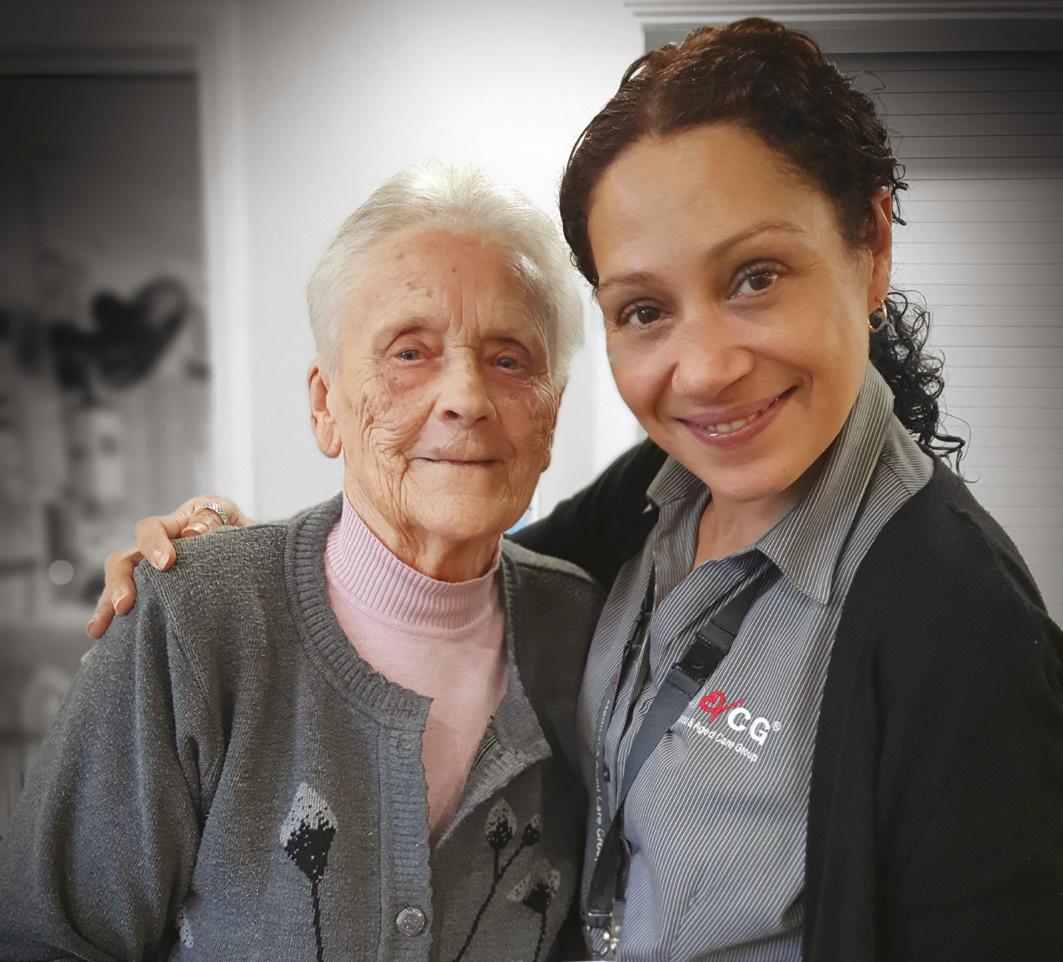
At MACG, everything we do is for our residents. As skilled and passionate professionals, family owned and operated for over 25 years, we specialise in providing high quality care in a welcoming, homelike environment.
Our residents enjoy a rich and varied lifestyle, one designed for socialising and emotional wellbeing.
Ashwood
Grand Cedar Aged Care (03) 9811 5600
Boronia
Boronia Residential Aged Care (03) 9762 1877
Carrum Downs
Carrum Downs Aged Care (03) 9784 2800
Coburg North Northern Gardens (03) 9350 5033
Our 24-hour care teams build strong, meaningful relationships with our residents. This enables us to provide high quality permanent, respite, palliative and complex care.
Family values proudly sit at the centre of everything we do. Afterall, home is where the heart is.
Enquiries are always welcome.
Hughesdale
Oaklea Hall (03) 9569 0988
Narre Warren
Casey Aged Care (03) 9705 4200
Narre Warren South
Casey Manor (03) 9703 0188
Parkdale
Parkdale Aged Care (03) 9580 0499
Traralgon
Traralgon Aged Care (03) 5176 0759
Just Better Care is an approved provider of Aged Care services and has been supporting thousands of older Australians since 2005. We deliver the highest quality care to enable individuals to live independently and confidently within their own homes and their local communities. Community participation Personal care Travel & transport


Under the consumer-directed care principles, you also have the right to:
Set your own goals for your supports
Determine the ongoing level of involvement and control you have over your home care
Make decisions in relation to your care
Maintain your independence as much as possible
Choose the care and services that best meet your goals and assessed needs, within the limits of the resources available
Have choice and flexibility in the way the care and services are provided in your home
Participate in making decisions that affect you
Have your representative – family member or close friend –participate in decisions relating to your care if you request it or need support to make decisions
These rights mean you can live the life you want to live for as long as possible.
If you think your rights are not being respected, you should talk to your provider about your concerns. If this does not solve the issue you can contact the Aged Care Quality and Safety Commission.
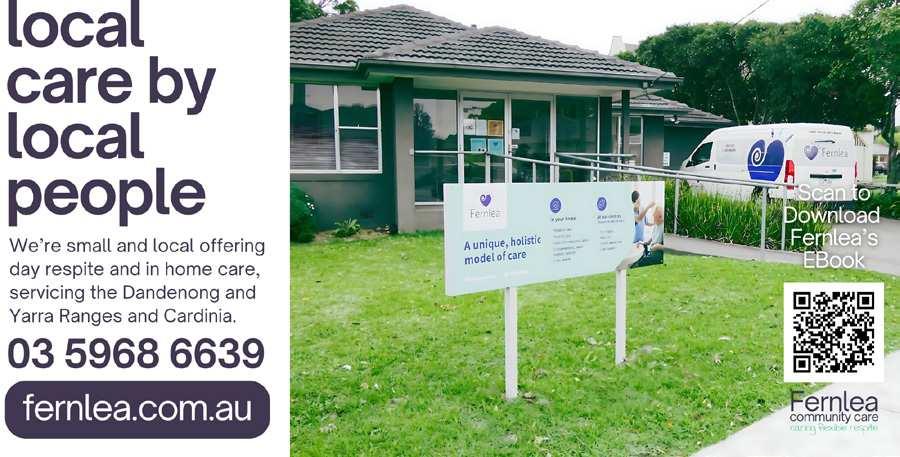
The Australian aged care sector is expected to undergo significant changes within twelve months.
In response to recommendations made by the Royal Commission into Aged Care Quality and Safety, the government has introduced a 24/7 nursing requirement for aged care facilities. This new provision is intended to improve the health and safety of residents through access to care, no matter the time.
However, some facilities – particularly those in regional or rural areas –may struggle to meet this staffing requirement and the government is actively working with providers to resolve shortages.
To see if an aged care home offers 24/7 registered nursing, visit the My Aged Care website and access the Find a Provider tool via the Staffing Star Rating tab.
In July, the government will introduce the Integrated Assessment Tool as part of the transition to a Single Assessment System Workforce in late 2024.
The Single Assessment System will replace the: Regional Assessment Service; Aged Care Assessment Services; and independent Australian National Aged Care Classification (AN-ACC) assessors.
According to the Department of Health and Aged Care, First Nations assessment organisations will be introduced progressively from July 2025.
Following delays announced in 2023, the new Support at Home program will be introduced in July 2025 to replace Home Care Packages and the Short-Term Restorative Care Programme. The Commonwealth Home Support Programme will also transition to the new program from 1 July 2027.
A new Aged Care Act will be introduced to parliament in 2025 to reform existing aged care laws, as per the: AgedCareAct1997; AgedCare(TransitionalProvisions)Act1997; and theAgedCareQualityandSafetyCommissionAct2018.
To stay up-to-date with reforms, please contact the Ageing and Aged Care Engagement Hub by email: agedcareenquiries@health.gov.au.
Rather than a government-funded service, you may choose a private home care provider and pay for services out of your own pocket.
Maybe this is more cost-effective for you or there is a waiting list for the government service you are trying to access.
Private home care services are arranged directly between you and the service provider. You pay for all the services provided and there is no government subsidy.
Private home care organisations provide a wide variety of services, including registered nurses for complex care needs and carers for companionship, personal care, housekeeping, cooking and outings.
They may also provide other types of staff, such as advisors, assistants, dietitians, drivers, personal trainers, physiotherapists and occupational therapists.
There is no limit to the number of hours of care provided each week and you can generally increase or decrease the time as your requirements change. With an agreed notice period, you are not required to pay for shifts you do not require.
While private home care may seem expensive, you may find that it is more cost-effective than other institutional alternatives. There is a wide variety in the level of quality and cost of home care companies.
When looking into home care services, here are some things to investigate and ask the provider you are considering:
Do they service your area?
Is the company Australian-owned?
Is it independent or part of a franchise?
Do the owners/operators have experience in home care?
Does the company have appropriate insurance?
Does the company comply with Australian Tax Law – for example, does it charge GST appropriately?
Do they provide documents about financial arrangements before service begins?
Do they have a Service Agreement? It is important, so that there’s no misunderstanding about the service and cost to be provided.
Are they flexible? After all, it is all about you.
What are their recruitment processes?
Is there a criminal background check performed prior to employment with an agency?
Does the company provide worker’s compensation for employees? This is important so that you are not responsible for any injuries that occur on the job.
How do they determine appropriate staff for your needs? If a company asks where you live and then offers you staff before even hearing about your needs, you can be reasonably assured they allocate based on location as a priority.
Is it possible to interview potential carers and make a selection after those interviews?
Do you get to decide what times and days suit your needs?
What is the minimum shift length?
Do they have male/female workers and can they cater for specific cultural backgrounds?
Who will be working in the home? Will there be regular staff providing continuity of care or do they change shifts around?
Is there a professional staff member, such as a registered nurse, who liaises with you to create a plan that meets your needs?
Who is the organisation’s main contact for you?
Do you meet a manager/owner and then never hear from them again?
What additional support is offered within the cost of your care? For example, are they available 24-hours a day, seven days a week?
If you do receive support from the government to access care, you may be able to access additional services through your provider if they have privately funded options.
This means you can ‘top up’ the government-funded services you receive with additional supports funded by you if you need it.
For example: if you are already receiving a Home Care Package (HCP) through the government, private home care can provide some extra hours of help which you may not be covered for in your HCP.
If you require a higher level of home care, private home care can even provide live-in or 24-hour care.
You’ll find a list of in-home care service providers from page 117 in this guide or visit AgedCareGuide.com.au to find providers servicing your location.
If you are a veteran, war widow or widower, you may be eligible to receive extra help in your home from the Department of Veterans’ Affairs.
If you are having a hard time doing the regular household chores, struggling to get in and out of the bathroom safely or if you just can’t manage the gardening or household maintenance, then the Veterans’ Home Care (VHC) program could organise people to help you.
The VHC program offers a range of services including domestic assistance, personal care, safety related home and garden maintenance or respite care in your own home or residential care facility.
If you have specific medical care needs or need more intensive assistance, a nurse from the Community Nursing program may be able to help you stay in your own home for longer. Services may include medication management, wound care or hygiene assistance.
To receive these services, you need to be referred for an assessment by an appropriate health professional. This could be your GP, a treating doctor in hospital, a hospital discharge planner or a VHC assessment agency.
Call the Veterans’ Home Care Assessment Agency on 1300 550 450 to find out what support services are available to you and how you can access them.
Taking some time off from caring is crucial and known as ‘respite.’ Respite can be provided in your own home, a community setting or an aged care home.
Respite care offers the opportunity for both you and your carer to take a break. This may be for a few hours, a day, a night or a few weeks.
Respite care is provided by residential aged care homes and by community care services under the Carer Gateway.
Accommodation and services include: day care centres that provide respite for a half or full day; in-home respite services, including overnight, home and personal care services; activity programs; a break away from home with a support worker; respite for carers of people with dementia and challenging behaviours; respite in an aged care home or overnight in a community setting; and respite for employed carers and for carers seeking to return to work.
Access to respite care is based on priority and need. For respite care in your home or in a day care centre, the respite service provider or the Carer Gateway will assess whether you and your carer are eligible.
The amount of care you receive will depend on your needs and the availability of respite care services.
Centre-based respite care (CBRC) can provide respite services to carers, offering individualised social and recreational activities.
Through CBRC, you can also attend day programs that may include excursions, outdoor/indoor activities or holiday programs.
Trained respite workers often undertake client assessments. Need-based programs are then developed with you and your carer to help enhance your quality of life.
There is no charge for assistance provided by Carer Gateway, however, individual service fees may apply.
Community-based respite services charge fees according to the type of service being used and your ability to pay.
For more information contact the Carer Gateway on 1800 422 737. Your call will automatically be directed to your nearest state or territory provider.
Your CHSP assessor will assess how much care you require over this respite period to make sure you are safe and well cared for while your carer is away.
Alternatively, you are able to pay privately for in-home respite care services.
In-home respite care differs from residential respite in the following ways:
You are able to receive carer support within your own home
You can feel comfortable in your own environment
Your carer will be reassured that someone is taking care of you while you remain independent at home
You don’t feel too displaced because you haven’t left your residence
You do not pay a daily fee like you would in residential respite; the amount is coming out of your Home Care Package or Commonwealth Home Support Programme funding* *With
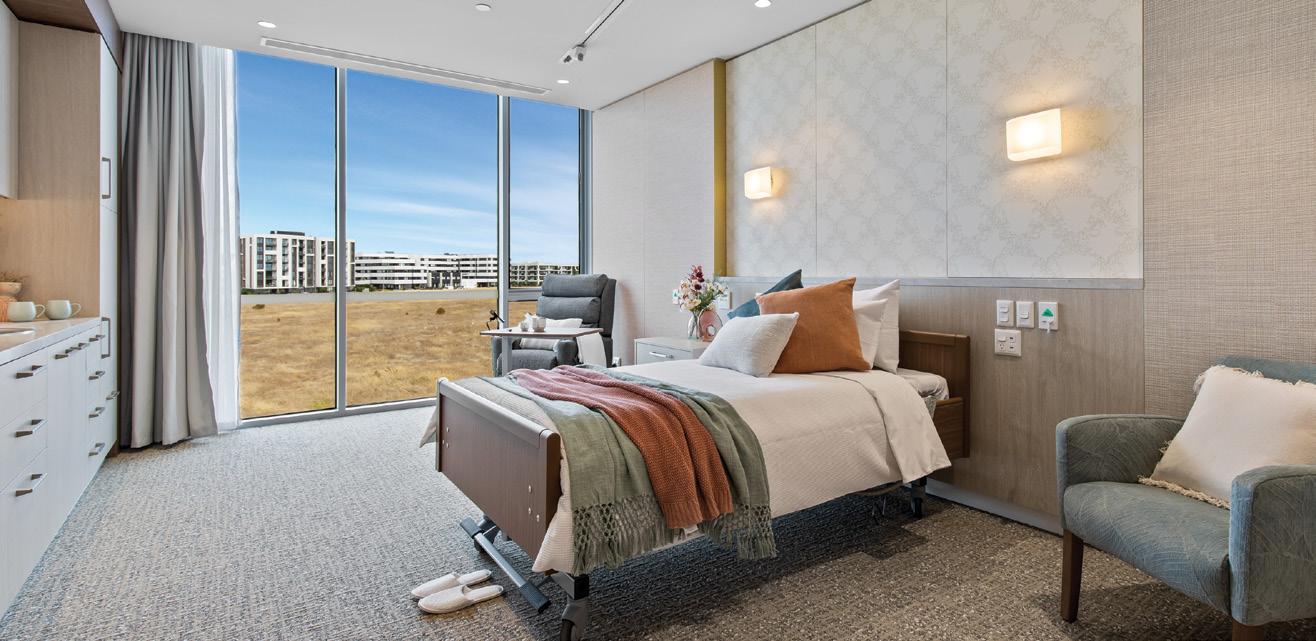




To help improve your independence and confidence at the end of a hospital stay, the Transition Care Programme provides short-term support and assistance.
The Transition Care Programme is goal-oriented, time-limited and therapyfocused care that can be delivered in your own home or in a home-like ‘live-in’ setting, which may be an aged care home.
To be eligible for transition care, you must be an in-patient of a hospital and have been assessed by Aged Care Assessment Services (ACAS).
Transition care can be provided for a period of up to 12 weeks, with a possibility to extend to 18 weeks if assessed as requiring an extra period of therapeutic care. Seven weeks is the expected average period of support.
Transition care is delivered by approved providers who will offer a package of services including a range of low-intensity therapy services and nursing support and/or personal care services.
Low-intensity therapy services may include:
counselling and social work
dietetics
occupational therapy
Personal care services may include:
help with showering and dressing
assistance with eating and eating aids
managing incontinence
physiotherapy
podiatry
speech therapy
transport to appointments
help with mobility and communication
You may be charged a contribution fee to cover the cost of your transition care. Talk to your provider about what fees apply and how much you need to pay.
For transition care received in your own home, the maximum amount is currently $12.75 per day (July 2024 rates).
For care delivered in a ‘live-in’ setting, such as a residential aged care facility, the maximum amount you can be asked to pay is $61.96 per day (July 2024 rates).
Access to transition care is decided on a needs basis and not on your ability to pay fees. Talk to your hospital social worker or discharge planner to find out more about how to access the Transition Care Programme.
Aged care homes offering transition care beds are listed in the residential aged care tables from page 142.
Have you wondered about the lasting effects of polio on your loved ones?
Here are the realities of post-polio conditions in Australia.
Many locally born and immigrant Australian residents who had polio in the past are now experiencing Post-Polio Syndrome (PPS).
This condition shows up decades later as: complex fatigue mixed weakness complex pain sleep difficulty breathing problems difficulty staying warm
Even if their childhood polio was mild (flu-like with no paralysis), they are still at risk for PPS. Watch for changes in their mobility or their energy levels indicating new challenges.
Managing PPS symptoms and ability changes can be difficult. Open, supportive conversations with your loved ones about post-polio can be empowering - it can help them to adjust and to plan for the future.
Encourage them to share their experiences and let them know they have your support.

PPS is a chronic and progressive health condition best addressed by a multidisciplinary care team.


Answers and resources at Community: www.polioaustralia.org.au Clinical: www.poliohealth.org.au contact@polioaustralia.org.au +61 3 9016 7678
To help regain your independence if you have not been admitted to hospital, the government has introduced a flexible care option.
You may benefit from the Short-Term Restorative Care (STRC) Programme if you have been sick or had a fall and your mobility is temporarily impaired.
The program focuses on regaining wellbeing over a short period of time, with a maximum of eight weeks.
The Federal Government created the program to reverse or slow functional decline in older people and help improve their health and wellbeing through the time-limited service.
The ultimate aim is to avoid you having to access ongoing in home care services or residential care.
The program is designed around improving your capabilities at performing everyday tasks you may be having difficulties with.
A team of professionals would provide the service to help you adjust to the differences in your abilities.
This could involve activities and exercises that will benefit your mobility or could result in home modifications to make everyday tasks more manageable.
You will be able to choose the services you want to be provided so the assistance you receive will be tailored to your specific needs.
Services can be delivered at your home, in a nursing home or a combination of both.
You may need to pay a small fee, although you won’t have to pay an accommodation payment if you receive STRC in a nursing home setting.
The daily fee is currently $12.75 for STRC received in a community setting or $61.96 if accessed in residential care or a hospital.
The STRC Programme is not linked to any other government-funded home support and you will be able to access the program even if you’re already receiving support through the CHSP.
You will not be eligible to receive the STRC Programme if you are currently: receiving a government-funded Home Care Package; have received transition care in the last six months; or live in residential aged care.
You will need to be assessed in order to access the STRC Programme. This assessment is done by the Aged Care Assessment Services (ACAS) and is only valid for six months. You can access the STRC Programme twice over a 12-month period.
Read more about assessments on page 101 or call My Aged Care on 1800 200 422 for more information about STRC.
Wellness centres offer a range of programs and services that focus on mobility, exercise, rehabilitation and relaxation. A well-equipped wellbeing centre also provides the opportunity to address areas of concern, enhance your mobility, reduce your pain levels and risk of falls or injury.
You can access a wide range of physically and emotionally rewarding activities with the guidance of allied health specialists in these centres, also known as ‘day therapy centres,’ ‘health & lifestyle centres’ or ‘allied health hubs.’
Most centres offer a range of stimulating and fun activities, one-on-one or in group settings, to help improve your memory, wellbeing and independence.
Some allied health and wellbeing services you may be able to access include:
Occupational therapy
Diversional therapy
Massage therapy to reduce pain and maintain overall wellbeing
Physiotherapists or exercise physiologists
Podiatry
Hydrotherapy
Dementia and cognitive support programs
Personal training
Exercise classes for all levels, including chair-based and dance classes
Nutrition information
Mat- and equipment-based Pilates classes
Specialised group classes for specific conditions, such as Parkinson’s disease, multiple sclerosis, diabetes, cardiac and pulmonary rehabilitation
These wellness or day therapy centres are sometimes combined with different centre-based care services focused more on social inclusion and community connection.
The programs and services offered through this centre-based care are all about encouraging healthy ageing and work to provide you with emotional, mental and physical stimulation.
Some programs may be tailored to specific groups such as people from a multicultural background or those living with certain chronic conditions such as dementia.


We are dedicated to Your Health and Goals. We provide In-Home services across Melbourne metro areas. Comprehensive treatments are available onsite.
Personalised recommendations based on your inhome safety requirements. Cognitive screening and Day Care Programs are available.
Music / Art Therapy is a form of psychotherapy that uses the creative process to improve your psychological and emotional well-being.
We provide a range of assessment services including diagnoses, treatment plans and prevention programs.
We support you to improve your health by providing expert nutrition and dietary advice. Weight loss programs and Chronic disease diet plans are available.

www.onetherapyhub.com.au
admin@onetherapyhub.com.au
You can enjoy a range of activities which may include daily exercise programs, arts, crafts, cooking, gardening, as well as education and learning services, group excursions and respite or overnight care.
Centre-based care offers numerous benefits, such as:
Improved social wellbeing through companionship and connection
Maintaining mental health, nutrition and exercise
Positive impacts on overall health and wellbeing, including reducing symptoms of pain
Support for carers and families
If you are over the age of 65 years, the services offered at a wellness centre may be the key to better physical health to help you stay strong and independent. A range of allied health specialists may be able to support your mental agility and keep you performing day-to-day tasks properly.
You may be able to claim the associated costs of a wellness centre through the Regional Assessment Services (RAS) or Aged Care Assessment Programs (ACAP). To receive an assessment, call My Aged Care at 1800 200 422 and then ask for a referral code.
Based on the outcome of your assessment and the package you are eligible for through the Commonwealth Home Support Programme (CHSP) or Home Care Package (HCP) program, health and wellness services may be subsidised by the government.
You can still access the services at a wellbeing or day therapy centre privately and pay for services as you go. To do so, you would need an initial consultation to identify which services you need and the amount you will pay to access them.
Improved mobility isn’t the only benefit of physical activity. Staying active through regular exercise helps reduce fractures by improving bone strength.
It also increases energy levels, helps you maintain a good weight, regulates blood pressure, prevents cancer, cardiovascular disease and diabetes, helps manage arthritis, reduces anxiety or depression, improves sleep and increases self-esteem.
Your local council will have information about activities and exercise groups in your community.
If you are overweight, have a chronic illness/disease or live a sedentary life, it might be a good idea to see your doctor or a health professional for advice on getting into an exercise routine.
Getting to appointments, the shops or social events can be challenging if you don’t have a car and even more challenging if you have mobility issues.
There may be times when friends, family and neighbours are unable to help out. While transport can be part of government-funded supports, there is also a range of free or subsidised transport options available through a variety of outlets.
In Victoria, there are many volunteer groups, such as local churches, clubs or Rotary groups, that support people over 65 years of age in many ways, including through transport services.
These community volunteer transport services provide either direct transport or assist older people in accessing public transport.
They can take you to appointments, out and about in your community, visit friends and family or go to the shops.
Most of these community schemes or groups are staffed by volunteer drivers. Depending on the organisation, the services may be free or you may have to pay a small contribution towards the organisation.
St John’s Ambulance Australia provides a community transport service and patient transport service in most states or territories.
These services can support older people who need to attend medical appointments or hospital, visit loved ones, attend events, family gatherings or for grocery shopping.
Victorian local councils frequently offer transport in two forms –community buses and personal transport.
Some councils operate community buses on a weekly basis with many offering the convenience of door-to-door pick-up and drop-off. There is usually a nominal minimal charge for using the community bus which may vary depending on where it is going and whether you require a return journey.
Additionally, some councils offer personal transport for medical, wellbeing and other essential appointments and are usually provided by council volunteers.
Contact your local council for information about transport in your area.
Suppose you are an older person aged 60 and over and hold a Pensioner Concession Card or a Victorian Seniors Card. In that case, you may be eligible to receive free weekend travel, concession fares or 50 percent discounts on trains, trams and buses.
For further information about public transport for seniors, visit the Public Transport Victoria website at ptv.vic.gov.au/tickets/myki/ concessions-and-free-travel/seniors or call 1800 800 007.
The changes that occur with ageing can lead to problems with mobility, such as unsteadiness while walking, difficulty getting in and out of a chair or falls.
These are reportedly the top mobility problems experienced by older people and a major cause of injury and death.
Creating a safe living space is critical to maintaining independence and preventing injuries. Whether it’s slippery floors or tripping over electrical cords, some of the most common causes of injury in people over 65 are in and around the home.
You can improve the safety of your home by making some basic changes:
Remove clutter around the home to reduce the risk of tripping over. Keep hallways and staircases clear and check outside areas for tripping hazards.
Install grab-bars and handrails to help you get down the stairs safely or step in and out of the shower or bathtub without injuring yourself.
Repair or remove tripping hazards such as loose carpet, slippery throw rugs or floorboards that stick up. Replace those items and use non-slip mats for more effective fall prevention.
Ensure stairways or narrow hallways are properly lit and make sure you have easy access to bedside lamps.
Consider non-slip strips to make stairs safer or installing a stair lift.
Buy personal alarms that can detect falls, call for help in an emergency or have a GPS tracker to help you feel safe and secure in your own home.
New products and technology are continually introduced to the market, such as:
Mobility aids – Aids that can help to prevent falls include walking sticks or frames, wheelie walkers, manual and motorised wheelchairs and scooters.
Personal care – Some of these aids may include shower stools or chairs, shower hoses, bath seats and boards, over-toilet frames, commodes, urinals, continence pads and supplies, aids to assist with dressing and aids to manage medications.
Home safety – Some of the aids that can assist you around the house during day-to-day living may include handrails, ramps, tap turners, non-slip mats, easy-grip utensils and easy-pour kettles.
To remain independent and in good health, it’s important that you can look after yourself, move, eat and drink well, stay connected and have fun.
In-home and
VitalCALL
Fortunately, there’s a range of assistive technology solutions that can help you:
Prepare your own meals and eat or drink independently
Communicate and stay connected
Move around your home and community
Manage your own personal care, such as bathing or dressing
Use your computer, tablet or phone
Participate in sports and other recreational activities
Control your appliances, such as your TV and lights
Undertake daily tasks safely
Be more independent in your own home and when out and about With over 25,000 assistive technology products on the market, it can be difficult to know what the best solutions for your needs are. Find out more at askned.com.au or call 1300 885 886.
Consider the products and equipment that would help you maintain your independence, such as:
Emergency call systems
Wheelchairs and scooters
Telephones
Showering, toileting and dressing aids
Kitchen equipment
Seating, beds and mattresses
Hoists and transfer aids
Vehicle modifications
Smart home technology


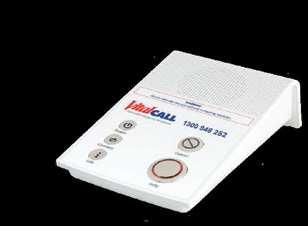

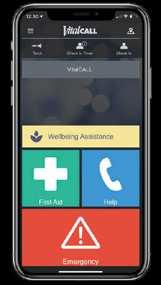



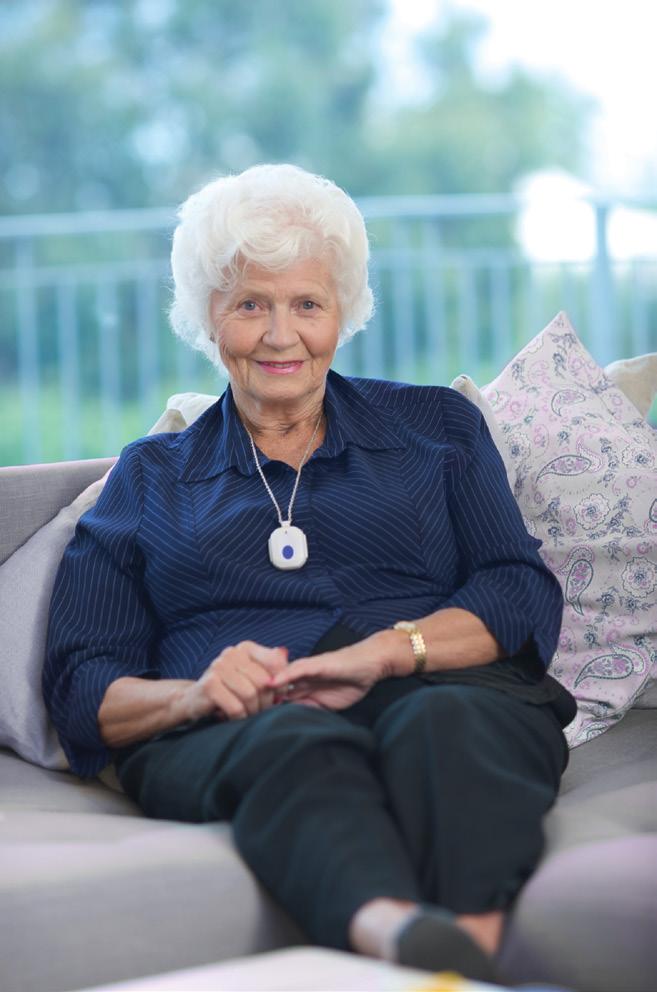

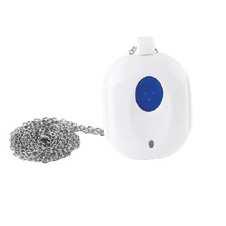

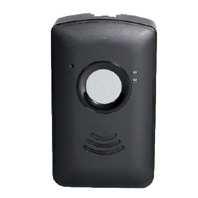





If you aren’t able to continue living independently at home, you may choose to move into an aged care home.
The Australian Government regulates and funds the provision of much of the aged care in Australia.
‘Aged care home’ is the term most commonly used, but you may also find this type of accommodation referred to as ‘nursing home,’ ‘aged care facility,’ ‘residential aged care’ or ‘high- and low-care facility.’ All of these terms can be used interchangeably to describe the same type of living arrangement.
Entry into a government-funded aged care home requires approval from Aged Care Assessment Services (ACAS).
There are also non-government-funded aged care homes that are called ‘supported- or assisted-living complexes.’ These do not require ACAS or government approval.
If you or someone close to you feel you are in need of some form of residential care, you can speak with your doctor who can make initial contact with My Aged Care.
A representative, like a family member or friend, can contact My Aged Care directly on your behalf. Alternatively, you can get in touch by calling 1800 200 422 to organise an ACAS assessment.
After being approved by ACAS for government-funded residential care, you may begin looking for your future home. You can do this yourself or you can hire a placement consultant who can make the job much easier for you.
It is important to know and understand the types of homes available in your area as this may affect the cost and services you receive.
It is also recommended that you visit as many homes as possible, just as you would when buying or renting a house, to gauge the feel and culture of the home.
Aged care homes provide accommodation ranging from single rooms with ensuites to rooms with shared bathroom facilities.
They must provide specified care and services to all residents at no additional cost.
Services that must be provided at no additional charge for all residents who need them, irrespective of their level of care needs, include:
Basic accommodation related services such as beds, mattresses, linen, bedside lockers and chairs
General laundry and cleaning services
Maintenance of buildings and grounds
Utilities, such as electricity and water
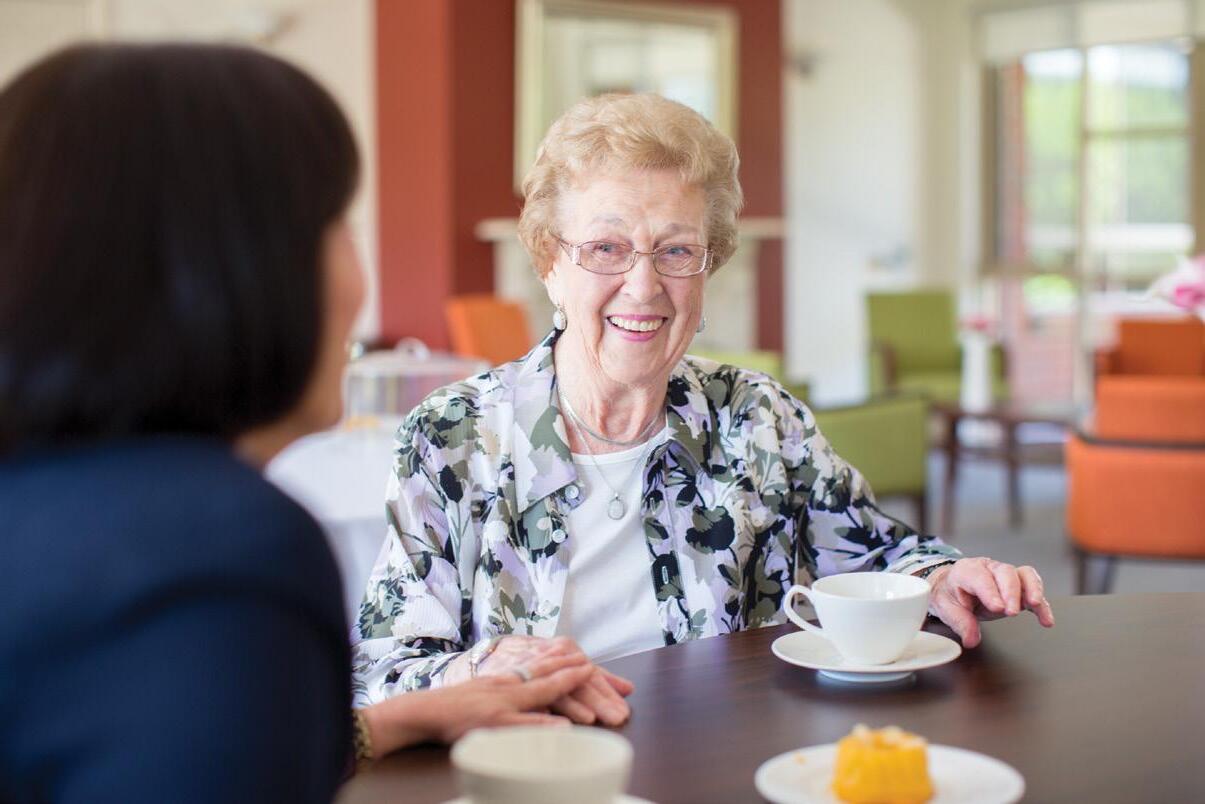
We believe in life’s little luxuries and pursuing the things you love. Each of our residents is accepted as an individual, treated with warmth and respect, and encouraged to express culture and custom.
Expect exemplary care tailored to your needs and expectations.
Our care choices include:
• respite care
• permanent residential care
• couple’s accommodation
• individualised and group activities supporting mobility, reablement, health and wellbeing
• menu options catering for individual and cultural needs.
The provision of staff continuously on call to provide emergency assistance
Assistance with personal care such as bathing, going to the toilet, eating and dressing
Assistance with mobility and communication
Assistance in obtaining specialised therapy services or a health practitioner service
Meals, including special diets
Toiletry goods such as towels, washers, soap and toilet paper
Support for people with cognitive impairment like dementia
Social and recreational activities
Rehabilitation support
A fee may apply for the following additional services:
Goods to assist with toileting and continence aids
Therapy services such as speech therapy, podiatry, occupational, recreational and physiotherapy
Registered nurses to assess, plan and manage care, including complex pain or wound management, palliative care program, special feeding, dialysis and oxygen therapy
For people with dementia, it is important to ask a home whether it offers separate or secure dementia-specific units/wings.
Some nursing homes may have a secure garden area specifically designed for people with dementia that is generally attached to the secure dementia unit.
There are homes that cater to a specific cultural and linguistic group or may offer culturally appropriate services. See pages 185–189 for a list of culturally appropriate care homes and services g .
Pets can help lessen feelings of loneliness or isolation and some homes are happy to accommodate you and your pet.
Some nursing homes even have live-in pets. You’ll find these C listed in the directory section of this guide, starting on page 142.
All government-funded care homes must meet required accreditation standards and demonstrate continuous improvement with regard to the quality of care and services provided to residents.
The standards that must be met cover areas such as management, staffing, health and personal care, resident lifestyle, living environment, catering, cleaning, continuous improvement, safety and security.
The Aged Care Quality and Safety Commission is responsible for the review of aged care homes.
It monitors residential aged care services to ensure their compliance with the accreditation standards.
You can ask the provider for the accreditation status of the home or access reports and find information about the process on the Commission’s website – agedcarequality.gov.au .


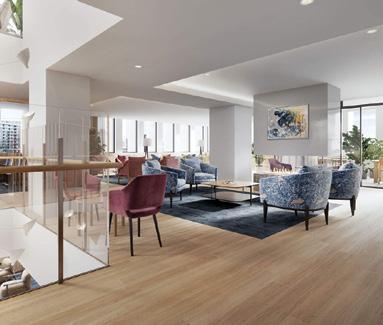
The Aged Care Quality Standards were introduced in 2019 as a new measure of quality in aged care.
The eight standards have a much stronger focus on consumers to help them make informed decisions about aged care services.
It gives consumers confidence that aged care providers will work in partnership with them and their families to deliver care that supports their health, wellbeing and quality of life.
The new Quality Standards include the following focus areas:
Consumer dignity and choice
Ongoing assessment and planning with consumers
Personal care and clinical care
Services and supports for daily living
Organisation’s service environment
Feedback and complaints
Human resources
Organisational governance
Each of the standards looks at three key aspects:
What is the outcome for the consumer?
What are the expectations of the organisation?
What are the organisational requirements to show that the standard has been met?
The standards revolve around consumers, their families and the staff providing care.
This partnership between the provider and consumer needs to work in order for the eight areas to succeed.
All government-funded aged care homes and home care services are measured against the new standards and organisations must be able to provide evidence of their compliance and performance with the Quality Standards.
Supporting the Aged Care Quality Standards is a single Charter of Aged Care Rights, protecting the rights of consumers receiving aged care services and their right to be properly looked after, treated well and given high-quality care and services.
All aged care providers have to provide a personally signed copy of the Charter of Rights to every one of their residents or care recipients.






The Charter covers 14 fundamental protections stating all older Australians receiving any type of government-funded aged care supports have the right to:
1. Safe and high-quality care and services;
2. Be treated with dignity and respect;
3. Have your identity, culture and diversity valued and supported;
4. Live without abuse and neglect;
5. Be informed about your care and services in a way you understand;
6. Access all information about yourself, including information about your rights, care and services;
7. Have control over and make choice about your care and personal and social life, including where the choices involve personal risk;
8. Have control over and make decisions about the personal aspects of your daily life, financial affairs and possessions;
9. Your independence;
10. Be listened to and understood;
11. Have a person of your choice, including an aged care advocate, support you or speak on your behalf;
12. Complain free from reprisal and to have your complaints dealt with fairly and promptly;
13. Personal privacy and to have your personal information protected; and
14. Exercise your rights without it adversely affecting the way you are treated.
You should receive a copy of the Charter signed by your provider and you or your representative will be asked to sign the Charter to acknowledge that your provider has given you information about your rights.
As a consumer, you have the option of signing the Charter of Aged Care Rights. However, you can still access care and services if you choose not to sign the document.
Call the Aged Care Quality and Safety Commission on 1800 951 822 or visit agedcarequality.gov.au for more information.
If you have concerns or are unhappy about the standard of care you are receiving, you or your representatives are strongly encouraged to firstly take all complaints to the facility management for resolution.
It’s always best to address concerns rather than leaving it to escalate. If you don’t feel comfortable to deal with it yourself, you can ask an advocacy service to help you.
If the matter is not resolved, you can then make complaints to the Aged Care Quality and Safety Commission on 1800 951 822 or visit agedcarequality.gov.au
Anyone can make a complaint about anything that may constitute a breach of the service provider’s responsibilities to past or present residents.
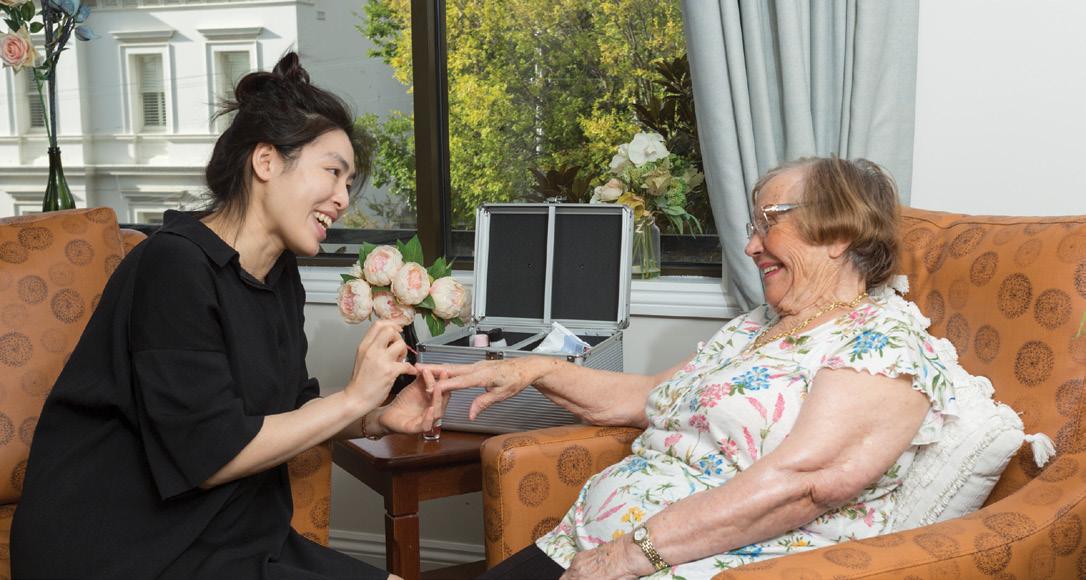
As soon as you have been approved by Aged Care Assessment Services (ACAS) for government-funded residential care, you can begin looking for your future home.
You can do this yourself or you can hire a placement consultant to do this for you.
When searching for nursing homes, decide what features are important to you. Are you looking for an extra service facility, a specific cultural environment or a facility with pets?
It is important to know and understand the types of homes that are available in your area because this may affect the cost and services you receive.
It is recommended that you visit as many homes as possible, just as you would when buying or renting a house, to get a feel for the culture of the home and its surroundings.
You can also use residential respite as a way of finding out about the quality of care at a nursing home before deciding if the home is a good place for you to move into.
When you have narrowed down which homes would suit your needs and wants, it is best to apply to a number of homes to increase your chances of finding a place quickly.

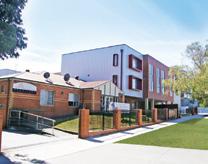


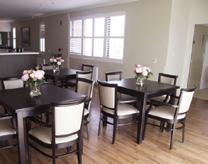

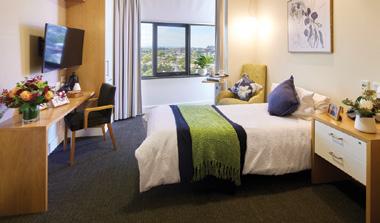

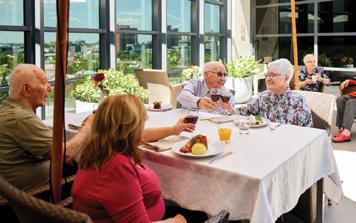
Nursing homes don’t always have bed vacancies available, so it is likely that you will have to wait for a period of time for a bed to become available.
Some aged care homes may have waiting lists and the length of these varies between homes. If your situation is urgent, please inform the staff at the home.
Generally, bed places are offered to people on the waitlist who have a health priority or have been waiting for a place and have risen to the top of the waiting list.
You can be on as many waiting lists for facilities as you would like, but once you accept a vacancy offer, you will be removed from all other nursing home waiting lists.
If you require a bed urgently, you may not have as much choice with the facility you move into. You may have to accept the first offer that is made to you, no matter if it is your first facility choice or not.
Aged care home operators can’t predict when a vacancy will occur, so it is important to keep in regular contact to let them know you are still interested.
If you’ve engaged the services of a placement consultant, they will monitor vacancies for you.
It is ideal to plan ahead and take the time to choose the facilities that you want to live in. This means no matter who offers you a bed first, you will be satisfied with the placement.
The person in charge of the aged care home will either ring you, your carer or family directly or phone the social worker if you are in hospital, to let you know they have a spot available for you.
You may be asked to make a decision within hours because there are usually other people also waiting.
You, or the relevant hospital worker, will need to arrange for your transfer to the home as soon as is practicable.
If you are unable to move into a home straight away, you will be given seven days after you have agreed to accept the place to move in. This is called pre-entry leave.
From the date of acceptance, you may be charged for your care and be eligible to receive financial assistance from the government.
Once your place in the aged care home has been confirmed, you will be provided with two or three important documents that will address all the information and details you need to know. This information should also include the Resident Agreement, the Accommodation Agreement or an Extra Services Agreement if applicable.
It is not acceptable to be charged any fees or be expected to make any donation before you formally accept a place in an aged care home.



























Trinity Manor is a unique, family owned aged community that offers Quality Permanent and Respite care.
The Trinity team are available to assist 24 hours a day in a comfortable and relaxed environment. Our core purpose is to promote an Elder-Centred Community where variety, spontaneity and companionship are used to promote an enriched life for every person at Trinity Manor.
BALWYN
A 77 bed home with newly refurbished rooms situated in the leafy suburbs of Deepdene and Balwyn. We offer Ageing in Place and have a designated memory support area. Trinity Balwyn has single rooms with ensuites as well as large apartment style suites. We offer quality nursing care, regular, permanent staff, choices of meals/ beverages and an extensive lifestyle program. This site is pet friendly and offers Additional Services.
An elegant and contemporary 112 bed home with large rooms, beautiful views, Ageing in Place and a designated memory support area. Trinity Greensborough has single rooms with ensuites as well as large apartment style suites with sweeping skyline views. We offer quality nursing care, reliable permanent, regular staff, choices of meals/beverages and an extensive lifestyle program. This site is pet friendly and offers Additional Services. Also caters for Supported residents.





There’s a lot to consider when deciding which aged care home will best suit your needs.
Deciding to move into a home can be a really big decision, so you want to make sure you choose a nursing home that suits your needs and feels like home.
Making a list of your personal preferences and requirements can make it easier to shortlist aged care facilities. This list could include the care you require and lifestyle options.
One of the best ways to gauge the environment and atmosphere of a nursing home is by visiting it.
Contact the home you are considering to organise a tour of the facility; in most cases, your family should be able to come with you.
By visiting the facility, you will be able to assess whether the nursing home meets your needs and if it is a place you would be happy to live.
Any questions you have can be answered by your tour guide from the aged care home.
Additionally, you can have a talk with the site manager to understand how the aged care facility runs and have all of your questions answered.

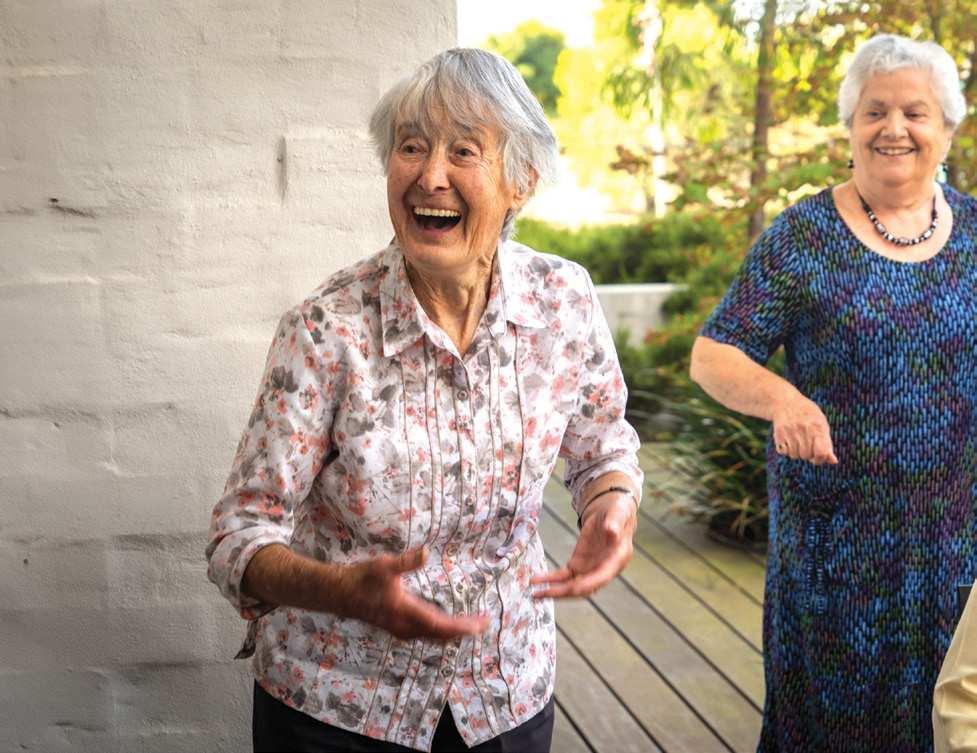
For over 80 years the Brotherhood of St. Laurence (BSL) has worked in the community supporting people of all ages to live the life they choose. At BSL Aged Care we take the time to get to know you and your loved ones and work with you to tailor a plan to suit your individual needs. Whether you’re looking for in-home support, quality residential care, or day and overnight respite care, we’ll help you find a solution that works for you.

The following is a brief checklist of things you should consider before deciding to move in:
Is the home clean, fresh and in good repair?
Are the staff warm and friendly? You want to be able to feel at ease and comfortable communicating with the staff.
How many staff work at the home and what is the night time ratio of staff to residents?
Is the home secure, particularly at night?
Are there keypad locks on the doors or are CCTV cameras installed?
Does the home have the provision for you to age in place and remain as your care needs increase?
Do they offer single rooms with ensuites?
If you are looking to move into a home with your spouse, is this provision available?
Are clothes laundered on or off site?
Does the room have access to a private phone line, internet connection, NBN or pay-TV?
Are the floor coverings clean and fresh or is there an odour throughout the home?
Is the room temperature comfortable for you and are you able to control your own room temperature?
What personal items and furnishings can you bring into the home and what provisions are there for storage of personal items?
Inspect the kitchen if possible and find out if meals are cooked on site or are delivered.
Are the meals flexible and will they meet your special requirements?
Are there spaces for you to meet with family and friends to celebrate special events?
If you like pets, find out if the home is pet friendly and whether they have pets at the home or a visiting pet program.
Be sure to enquire about the range of activities available and entertainment programs. These are vital for your ongoing wellbeing.
Any additional services or amenities that are provided by aged care homes can really enhance your experience living in a facility.
Beneficial services and amenities could include:
Outdoor areas or gardens – if relevant, check whether they are secure
A hairdressing salon or day spa
An on-site café
A chapel or provision for religious services
Pastoral care services
Scenic views
Music therapy

You may be interested in other services and amenities, such as:
A Men’s Shed
An on-site kitchen
A gymnasium
Allied health services
It is important to have all your queries answered, as it can really help you gauge whether a facility is the right fit for you.
You should refer to the ‘Find a provider’ tool on the My Aged Care website to determine your care options. The tool has the latest information about each facility and its Star Rating, factoring in 24/7 registered nursing data and residents’ experiences.
Here’s what you need to know about each Star Rating:
One Star – needs significant improvement
Two Stars – needs improvement
Three Stars – satisfactory quality of care
Four Stars – positive quality of care
Five Stars – the highest quality of care
Whether you’re looking for a loved one or for yourself, we can answer your needs!


Parkglen Retirement Community is a friendly, well established retirement village situated in Keysborough, near Dandenong, Melbourne. With stylish independent living units, you’ll find a home here to suit your every need. Set on over eight acres of superbly landscaped gardens, residents can enjoy the scenery, all with exterior home maintenance and gardening taken care of. A grand Oak tree, originally planted when Parkglen was built stands at the centre offering shade with dappled sunlight and is surrounded by sunny private spaces where residents can relax.
Residents can join in a host of activities on offer in the community centre, as well as having their privacy respected. With everything taken care of, new friendships and hobbies have time to flourish and grow.
At the entrance to the Village, and surrounded by all the facilities within the community centre, are our bright and relaxing apartments supporting assisted care living.
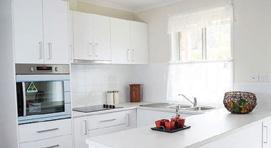
All apartments are spacious, feature private ensuites and have pleasant garden views. You live privately in your apartment but receive the benefit of hotel-style services including 3 nutritious daily meals prepared by our in-house chef and weekly house-keeping.
At Parkglen we offer Respite and Short-term accommodation with a number of recently renovated single and double room apartments available. Respite accommodation is available for a minimum stay of 7 days. 24 hours notice is required for cancellation of bookings. We do not offer weekend only or emergency respite. Services include housekeeping, laundry, meals and 24/7 monitored medical alarm. Additional services are available on a fee for service basis, and can include shopping assistance and transport. Our services are considered low supported care whilst promoting independence.
The process of moving in is often referred to as the ‘admission process’ and starts with an initial introduction, orientation and assessment.
During the assessment, a staff member will gather information including medical conditions, family history, food preferences, social and recreational likes, dislikes and interests.
This information will be used to create a care plan. The care plan is updated regularly and you can request to see a copy at any time.
The care plan will be an overview of your care needs, wishes and outcomes you want to achieve while living in the facility.
Family members and carers are welcome to assist in identifying social and care needs.
Your aged care home will already have most of the furniture and furnishings, such as beds, chairs, wardrobe, curtains and floor coverings, so it may be helpful to directly ask the home what you can bring with you.
Below, you’ll find an overview of some of the main things to consider when moving in.
Having personal belongings around you may help you to feel at home in your new environment.
Some people may like to bring family photographs, their favourite films, books, music or other treasured items.
It is important to ensure that personal clothing is properly labelled. Most nursing homes will launder your clothing either on site or through a laundry service.
Bring enough clothing to allow for items being washed as it might take a couple of days before clean laundry is returned to you.
Because of the large volume of washing, nursing home laundries often use commercial washing and drying machines, so make sure your clothes are machine-washable and labelled with your full name.
Residents with higher level care needs, who require products for the management of continence, will have these provided by the aged care home. Other residents may be required to purchase these items.
Residents can bring with them their preferred electrical and electronic items. Each item will be checked, tested and tagged by the home prior to use.
Deloraine is in the heart of Greensborough.
Features:
Extensive leisure/lifestyle program and facility bus
Lovely gardens, balconies and courtyards
Meals cooked on-site by a Chef
On-site hairdressing
On-site laundry
Qualified Nurses 24 hours a day


It is quite common to have space available for some items like a favourite chair, small table, dresser and bedside light, but it’s best to check with the aged care home what and how many items you can bring.
It is important that you bring all prescription medication you’re currently taking with you on admission.
Care staff will manage and administer the medication to ensure safe and quality use of your medicines.
Non-prescription items, such as topical creams, herbal remedies and vitamins, should be declared to the staff.
The aged care home supplies basic necessities such as toothpaste, soap and toilet tissue. Specific items or particular brands need to be purchased at your own expense.
Wheelchairs, scooters, walking frames and other mobility aids will be assessed to ensure that these are appropriate to your current situation. The maintenance and upkeep of scooters and wheelchairs is your responsibility.
Once you have been offered a place in an aged care home, it is also important to organise your medical and financial matters and who you will need to tell about your move.
If you have not done so already, this is a good time to talk to your loved ones about your wishes for your future medical care.
Writing your wishes in a letter or statement can help guide health professionals and those close to you if you become seriously ill or injured and are unable to make decisions about your own care.
This is called an ‘Advance Care Directive’ and it should include clear and specific details about treatments you would accept or refuse.
Keep your Advance Care Directive in a place that is easily accessible and share the document with your doctor and loved ones.
It is recommended that you tell your family, carer, friends, neighbours, community centre or council and any health professionals, such as your doctor or pharmacist, that you’re leaving your home to enter an aged care home.
If you need to change doctors, you can ask to have your medical history sent to your new doctor.
It is also a good idea to keep track of any health professionals you see and make a note of your current medical treatments and medication so you can discuss this with your new aged care home as part of your care plan.

◼

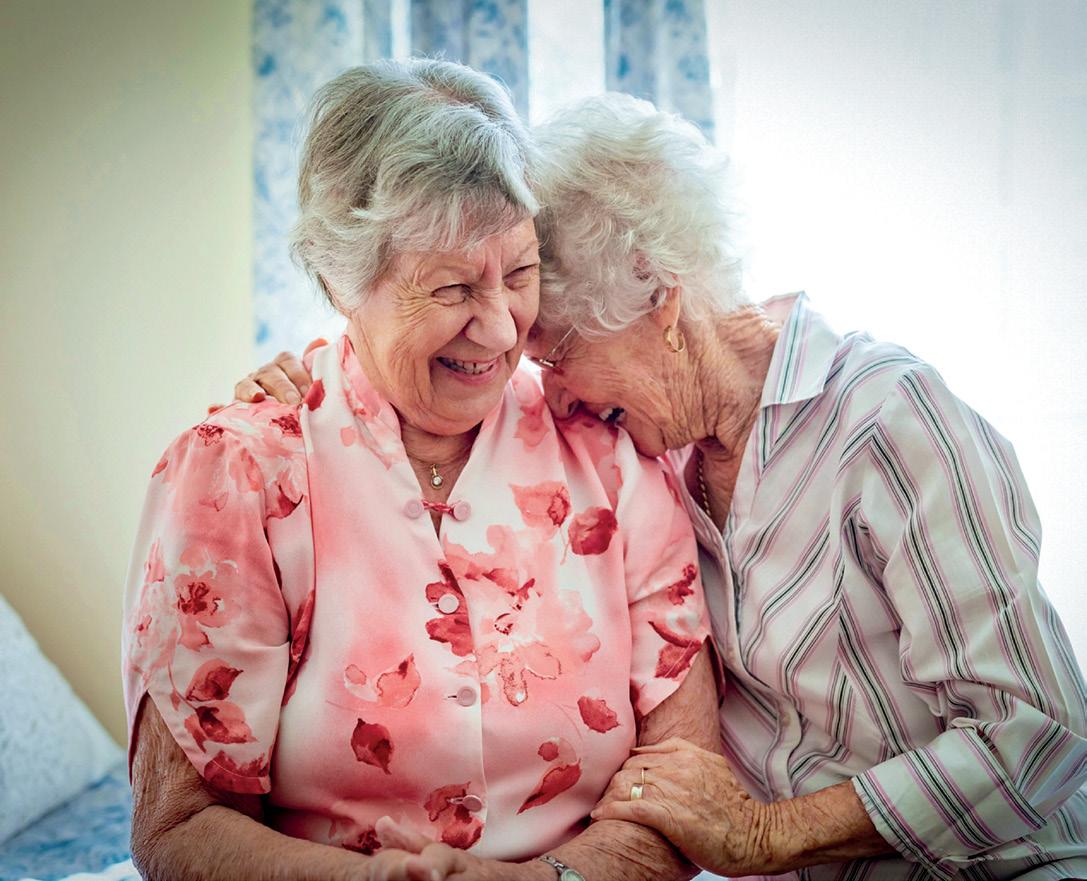

It may be hard for family members to adjust to the change and establish a visitation schedule when you first enter an aged care facility. The transition to a care home may impact the person entering into care, along with others who are used to staying at their home –e.g.grandchildren
Entering a family member into an aged care home against their will is illegal unless they have lost the capacity to make that decision or take care of themselves. An enduring power of attorney or an appointed guardian can decide on behalf of a person deemed incapable of making the transition themselves if it is in their best interest. Generally, however, the decision to receive care and enter a new environment should be made by the person it affects most.
It is important to establish a sense of autonomy for a person entering a care facility and reaffirm their decision to make the switch. Care facilities may carry a stigma for an older person that makes them feel like they are surrendering their freedom when they are, in fact, using their decisionmaking abilities to improve their quality of life.
Requesting the support of experienced and skilled care workers to assist with difficult tasks can ensure that they are done properly, timely and with the right assistance. Additionally, the care sector is an ever-changing landscape evolving to support people in a considerate and calculated manner.
Regardless of a person’s background and their sense of physical or mental agility, no one can be a jack-of-all-trades in every life skill. To account for this, the government has introduced a 24/7 registered nursing requirement to ensure that at least one RN is always on site and on duty. Please refer to page 35 for information about new reforms to the aged care system in Australia that will ensure older people and their families feel a sense of safety and security during their transition.
For family members who may be concerned about the transition to residential care and how their role as a carer has changed, please contact the Carer Gateway for more information. To learn more about the Carer Gateway, please refer to page 39.
If you are struggling with the emotional weight of a loved one’s aged care journey, please refer to the ‘Useful numbers and websites’ contact directory on page 9.
If someone has applied to be your guardian or administrator through the Victorian Civil & Administrative Tribunal and you have concerns about your decision-making capacity, please contact the VCAT by phone at 1300 018 228.

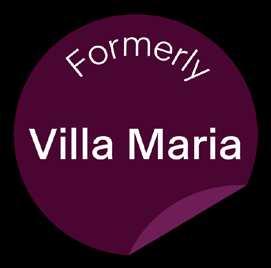
Moving house is often stressful and it may take time to settle into your new environment. Here’s what you can expect from life in a nursing home:
If you are thinking about moving into a nursing home, you’re likely to experience a massive range of emotions that vary from relief and excitement to uncertainty and apprehension.
Living in a nursing home will be different and it may take a little bit for you to settle into your new life.
There may be some ‘common’ areas that are shared with other residents, such as the dining room and lounge room, but your room is your own.
Nursing homes positively encourage you to bring personal items for your room, such as pictures, photos, ornaments, furniture throws and smaller pieces of furniture.
Find out what you are allowed to bring before moving into an aged care facility.
The chances are you’ve moved from living in a house on your own or with a partner, so you’ll need to get used to a few more people being around. However, the choice is yours as to how social you want to be.
You can choose to be social in the communal areas and spend time with other residents or simply find a quiet corner or remain in your room to enjoy your own company.
Many nursing homes have strong links to the local community. You can choose to get involved with activities, such as meeting local school children or other people from other groups.
As well as adjusting to new people, there may be some changes to your daily routines, such as slightly different meal and shower times.
Nursing homes offer many social aspects and multiple activities, such as exercise classes, religious services/classes, bingo, arts and crafts, concerts and outings. It doesn’t mean you have to take part – you still decide what you want to do.
You can continue to enjoy your usual activities outside the nursing home, such as attending any regular classes or meeting friends in your favourite coffee shop.
Whether it’s reading or watching TV in your room, chatting with other residents or going to the cinema with friends, the choice of how you spend your time is yours.
Some homes offer rooms for couples in the form of adjoining rooms, double rooms or even a single unit for couples. This means couples can continue living together even if they have different care and support needs.
While most homes do not allow residents to have their personal pets, many homes now have ‘live-in’ animals such as cats, rabbits, dogs and birds. Some nursing homes also arrange for a variety of animals to visit regularly.
Your family and friends are always encouraged to visit and depending on your health, you will be able to come and go as you please.
You can visit friends, enjoy family celebrations, go shopping and even go on holiday.
Many nursing homes also have special areas available for private functions. This means you can still hold special events for family and friends in your nursing home.
When you live in an aged care home, you can still go on a holiday. You can leave the aged care home for up to 52 nights in a financial year, which is called ‘social leave.’
The government will continue to pay subsidies on your behalf to the aged care home and you still have to pay your daily fees and income-tested fees.
If you are away for longer than 52 nights, the government will stop paying subsidies and you may be asked to pay any owing amounts to the aged care home.
The 52-night rule can’t be extended.
Social leave only counts if you stay overnight at a place that isn’t your aged care facility.
For instance, if you decided to, you could spend your social leave by going away from the facility every weekend of the year.
Your holiday leave will be reset every year on 1 July and this balance will move with you from provider to provider.
If you become sick and have to be transferred to the hospital, it will not impact your planned holiday leave.
The government allows aged care residents to have unlimited hospital leave, so you do not have to worry that a hospital stay will impact your other leave. However, you must continue to pay your fees and accommodation costs during this time.













































At Bupa Aged Care, whether for respite short-stay care or as a new home, our experienced registered nurses and carers aim to provide the care each resident needs, in the way they prefer.
Care is first and foremost.
We embrace and support residents to live their day their way, with teams dedicated to their wellbeing.
People rarely expect to need aged care, but if your family does, we’ll guide you through the steps.
To book a visit with one of our 22 homes throughout Melbourne and Regional Victoria, call us on 1800 718 357 or visit bupaagedcare.com.au/contact-us
Admission to one of our Bupa Aged Care homes is subject to you meeting the eligibility criteria, home availability and your care needs.
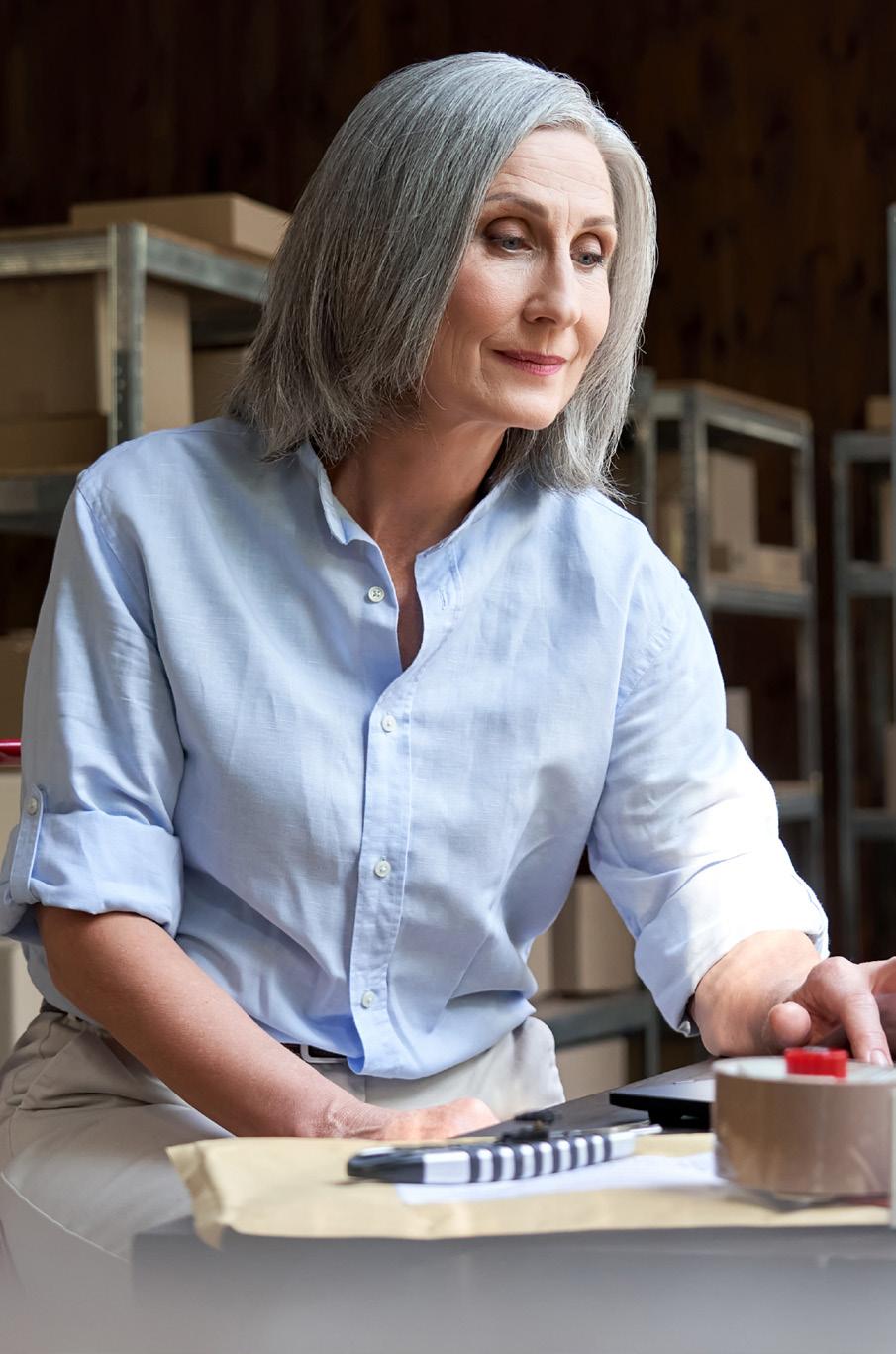
Identify the support you currently receive, specify your needs and determine the key factors for a care provider that align with your wishes and interests before seeking aged care services.
If you’re wanting to access government-funded supports, the first step in starting your aged care journey is to register with My Aged Care. This can be done online or via a phone call to the My Aged Care contact centre on 1800 200 422.
An operator will ask you a number of questions about your personal circumstances and care needs and set up a central client record. Examples of the questions you may be asked are:
Are you currently receiving aged care services?
Are you getting support from a carer or family member?
Can you prepare your own meals and do housework?
Do you need assistance taking a shower or bath and do you need help getting dressed?
Are there any health concerns or did you have a recent fall?
Do you feel lonely or isolated?
Are there any safety risks in the home?
The aim of this screening is to figure out what needs and support you require and whether you are eligible for a further assessment in person. Following this conversation, you will be contacted by someone from either the Regional Assessment Service (RAS) or a local Aged Care Assessment Service (ACAS) for an assessment to determine your abilities and what level of care you require.
Here is a list of documents and information you should prepare for the assessment:
Medicare card and a form of identification, for instance, Department of Veterans’ Affairs (DVA) card, driver’s licence, passport or healthcare card
Notes or referrals from your doctor
Information about previous home- or aged-care services you have received
Details about support you receive from family, friends or the community
Questions and information about aged care that you wish to discuss with the assessor, so you have a better understanding of services

Dorothy Impey Home is known for providing high qualitycare services to the senior citizens of the local area for over 53 years.
The home is surrounded by beautiful landscaped gardens with some rooms taking advantage of the skyline views of Pascoe Vale South.
A 24-hour nurse-call system throughout our home allows for easy access to nursing and care staff. Resident personal clothing is also laundered on-site by our staff.
Meals are cooked on the premises, using locally sourced produce and catering to the needs of residents.

Our daily activities program offers a variety of activities including daily exercises, games, arts and crafts, music, outings, church services and barbecues.
Residents can enjoy the convenience of local businesses and public transport nearby. The Pascoe Vale RSL is just 110 metres away!
Home features
• Undercover BBQ area
• Raised vegetable gardens
• Movie projection screen
• Café
• Pet therapy with birds, chickens & dogs
• In-house library services
• Internet, Foxtel & Telephone connection (additional fees and charges apply to use these services)
All rooms are large single rooms measuring 31m2 (inc. ensuite) with floor to ceiling cupboard storage. Your private ensuite consists of a shower, toilet, wash basin, large vanity cabinet with mirror and light, small radiator and motion sensor lighting for safety and convenience.
Home services
• General practitioners
• Geriatrician
• Physiotherapist
• Podiatrist
• Nutritionist
• Dietitian
• Dentist
• Optometrist
• Hearing Australia
• Hairdresser & beautician • Speech Pathologist

Contact details of your doctor and any other health professionals you see regularly
Translator or Auslan interpreter if needed
Support person to be present for the assessment if you want Other factors in preparing ahead of starting aged care services include organising your finances and getting advice about how you can pay for any support at home or a place in an aged care facility. It’s also worth making sure you collect medical records, have details about medication handy, have an Advance Care Directive in place and ensure your will is up to date.
When trying to decide which aged care home or service best suits your needs, a checklist is an excellent evaluation method.
Take note of your first impressions when you initially call the nursing home or service. Are staff friendly and willing to answer your questions? When considering a nursing home, ask to tour the facility and speak to people already living in the care home. You may know someone who lives there or has a loved one at the facility – ask them about their experience.
You may want to consider a short-term respite stay at the home. That way, you can experience what it is like to live in the facility before you make the final decision as to whether it is a place you would like to move into permanently.
The following page includes a series of questions to ask a provider when assessing the suitability of an aged care home, supported living facility or other service, to assist you in making your decision.





Park Lane Croydon is committed to providing quality care in a supportive, safe and homelike environment while maintaining individual privacy, dignity, choice and independence.
295-299 Maroondah Hwy Croydon, Vic 3136 (03) 9726 1100 www.parklaneagedcare.com.au

COMFORT, DIGNITY, PRIVACY
Willowbrae Melton is committed to providing quality care in a supportive, safe and homelike environment while maintaining individual privacy, dignity, choice and independence. 116 Centenary Ave, Melton Vic 3337 (03) 8746 3000 www.willowbrae.com.au
Is the provider for-profit or not-for-profit, church- or charity-based?
Do the owners/directors of the company have a health and/or aged care background?
When was the last time a complaint was made to the provider, what was it about and how was it dealt with?
Are residents and their families encouraged to have input into services offered and the quality of care?
Does the home look and smell fresh and appear sanitary?
Are the carpets and floor coverings clean?
Is the inside temperature comfortable?
Does the home meet safety regulations?
Is there good and clear signage throughout the facility?
Are there secure and interesting outdoor areas?
Are there spaces and activities to support people living with special needs, such as dementia?
Do the residents appear clean and neat?
Can you stay in the facility if your needs change?
Are the staff friendly and welcoming?
Do staff provide clear answers to your questions?
What is the mood of interaction between staff and residents?
Do staff look like they take their time with residents to give them personal attention?
What is the ratio of nurses/care workers to residents on weekdays, weekends and at nighttime?
Is it a single or shared room?
Is the room you’re shown the actual room you’ll be moving into or is it for display only?
Does the room have an ensuite or are the bathrooms shared?
Are there provisions for married couples?
How is the room allocation determined?
Is there access to a private phone line, internet connection or pay-TV?
How is the heating/cooling controlled?
What personal items and furnishings can you bring to the home?
Are there provisions for safe storage of personal items?
Can you access the alarm button(s) in the room?
Are staff respecting residents’ privacy – do they knock before entering a resident’s room?
Are there areas for families and friends to meet and celebrate special events?
Can family and friends take part in activities?
Are meals cooked on site or delivered?
Are menus flexible and able to meet special requirements?
What types of individual and group activities are offered and how often?
Are there activities that include cultural and spiritual preferences?
Are there any activities organised together with the local community?
What special events are celebrated?
Does the facility have pets on site or offer a pet visitation program?
Is there a GP on site or can you continue to see a physician of your choice?
How do staff administer and monitor residents’ medicine intake?
How are medical emergencies handled?
What other services, such as speech therapy and occupational therapy, are available on site?
Is there a dietitian or nutritionist as part of the care team?
Does the facility have a wellness program?
How does the facility deal with end-of-life/palliative care?
Are any provisions, such as continence pads, rationed?
What are my payment options?
What is the breakdown of the payable fees?
Can you negotiate on the fees and how they are paid?
Aged care homes charge a range of fees to cover the cost of care, accommodation and living expenses and these can vary enormously between facilities, from resident to resident.
Understanding the rules and seeking specialist advice from an aged care financial advisor to minimise costs is recommended. See page 91 for more information on financial advice.
Both your income and financial assets affect your entitlements. The income and asset tests are combined to ensure a consistent fees policy. This will address the issue of asset-rich, income-poor residents paying for all of their accommodation and nothing for care/the income-rich, assetpoor residents paying for their care, but not for accommodation.
The cost of care is divided into three parts – daily care fees, accommodation payments and a means-tested care fee.
AdventCare is a caring and well-respected Community based Aged Care Organisation that is guided by Christian values of the Seventh-day Adventist Church, catering for people from all backgrounds. We provide excellent care and outstanding services within a homely environment.

Our home sits within beautiful natural bushland with our own bubbling creek. Stroll along our boardwalk and enjoy the scenery and tranquil sounds of birds and other wildlife.
We are conveniently located within close proximity to Blackburn Lake, local cafés and major shopping centre and bus and on-site parking is available.
At our Whitehorse home we have a dedicated Memory Support Unit for specialised Dementia Care.
Enjoy a coffee, cake, or lunch in our new in- house café, book the private dining room for special family occasions or utilise our outdoor BBQ area.


Our Yarra Ranges home is located in picturesque Warburton in the Yarra Ranges, minutes from local cafes and tourist attractions. Surrounded by abundant flora and fauna the Home backs onto the Yarra River and has direct access to the Yarra River Walk.
Residents have the choice of many activities organised on a weekly basis. There is always something happening, whether it is shopping trips, excursions to places of interest or clubs.
AdventCare is a place to truly be yourself and to call home.
As a resident in an aged care home, you are asked to pay a daily fee as a contribution towards the cost of care and living expenses, such as meals and refreshments, cleaning, laundry, heating and cooling, as well as social activities.
In addition, the daily fee contributes to the costs for personal care, including assistance with daily living such as bathing, dressing and toileting, assistance with mobility aids, therapy and certain medical and pharmaceutical services.
The maximum basic daily fee for all permanent residents who enter an aged care home is 85 percent of the maximum base rate of the Age Pension for a single person.
This is the same amount you will be charged if you’re staying in a nursing home for a temporary stay as a respite resident. It is generally adjusted each March and September at the same time as the Age Pension.
As of July 2024, the maximum basic daily fee is $61.96 per day for all full pensioners and some part pensioners.
Depending on your income and level of care, you may also be asked to pay an income-tested fee as part of the daily fees. However, this does not apply to respite residents in aged care.
If you do receive income other than your pension, you will be assessed by Centrelink or Veterans’ Affairs if you are a veteran, to determine how much extra you can be asked to pay as an income-tested fee.
If you were a permanent resident in an aged care home prior to 1 July 2014, you will continue to be subject to the pre-1 July 2014 rules governing the basic daily fee unless you opt into the new fee arrangements.
Accommodation payments are different from daily care fees. They are used by the aged care home as capital funding to improve the quality of the buildings and services they provide.
Not everyone pays an accommodation payment. It depends on the value of your assets and income at the time of entry into care.
If you have more than $59,500 in assets and income, you can be asked to pay an accommodation payment, but you must be left with at least $59,500 in assets after your payment (rates as of July 2024).
The means-tested care fee is an extra contribution on top of the other residential aged care payments and the amount can differ from person to person.
The means-tested care fee will incorporate your financial assets and your income to determine how much you will be contributing to the cost of your personal and clinical care services.
This contribution amount can fluctuate depending on if your income or assets change.
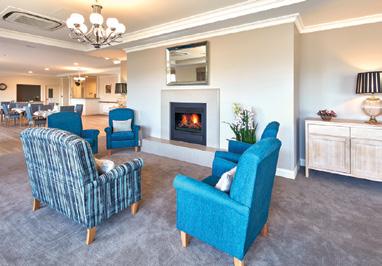

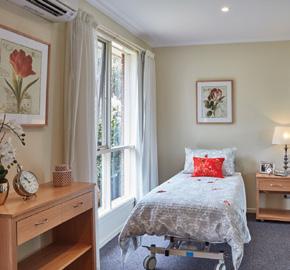
•We are a family owned business
• We have proudly set the standard delivering premium care and comfort to Victorian families for over 30 years
•We absolutely love what we do
• We are aged care specialists who appreciate and understand the needs of the elderly
• We invest in highly trained staff to ensure your loved ones have the support, certainty and comfort they need
• We pride ourselves on our quality of food, fresh produce and menu diversity
Why you would enjoy living with us
• You will appreciate belonging to a caring community
• You can pursue your passions, with a wide range of activities to compliment your new lifestyle
• You will feel confident and secure all your needs are being met
• For your social enrichment we welcome your family and friends to visit anytime
BOOK
BOOK A TOUR SO WE CAN
• Fully Accredited
• 24 Hour Nursing Services
• Large Rooms and Couples Apartments
• Quality Menu Choices
• Diverse Lifestyle Program
• Café Cheltenham
• Physio Program
• Theatre
• Hair Salon
• Facility Bus
617 Lower Dandenong Road, Dingley VIC 3172
617 Lower Dandenong Road, Dingley VIC 3172
Contact Sherrin (03) 9551 5676
Contact Sherrin (03) 9551 5676
office@greenwoodmanor.com.au
office@greenwoodmanor.com.au
DPS ID 16132
www.greenwoodmanor.com.au
10–12
10-12
Bendigo Street, Cheltenham VIC 3192
Bendigo Street, Cheltenham VIC 3192
Contact Tina (03) 9584 1111
Contact Tina (03) 9584 1111
office@cheltenhammanor.com.au
admissions@cheltenhammanor.com.au
DPS ID 15569
www.cheltenhammanor.com.au
There are annual and lifetime caps on the means-tested care fee. There is an annual cap of $33,309.29 that will apply to the means-tested contribution to your care costs, together with a lifetime cap of $79,942.44 (July 2024 rates).
Depending on your personal financial situation, you may not have to pay this contribution towards the cost of your care.
If you can afford to, you will pay a basic fee of up to 85 percent of the maximum base rate of the Age Pension for a single person, a means-tested (your income and assets combined) contribution to your accommodation and a means-tested contribution to your care.
The maximum means-tested contribution will be allocated toward your accommodation payment until the full cost is paid and then toward your care fee.
Any income-tested contributions you may have made as a recipient of Home Care Packages will be taken into account in calculating lifetime care expenditure.
The family home will continue to be exempt from the aged care assets test if occupied by a spouse or other protected person.
Even when the value of your former home is included as an assessable asset, its value will be capped at $201,231.20 (July 2024 prices). It is only counted in determining your ability to pay for your accommodation.
When you enter Nazareth Care, you enter a uniqu and belonging. We have been providing community for over one hundred years. understand the needs of the elderly –dignity and cared for with comfort and love.
Our experienced team deliver exception and support to their families. We prov a team focus to support care needs, li
• Permanent and respite care
• Individual care plans, unique to the n
• Clinical, social, emotional & spiritua
• Dedicated memory support unit in Ballarat
• Mass held daily & regular services for
• Our sisters are available to provide








Feel the warmth of personalised care, share moments with friends and family, and enjoy a vibrant lifestyle doing things that are meaningful to you
That’s what you can expect at every one of our Residential Aged Care homes. Bolton Clarke has purposefully designed homes located across Victoria. Each offers a wide variety of choice, quality care, and fulfilling experiences that support your health and happiness.
Where to find us
Avonlea Mentone
03 9545 4800
3-7 Patty Street, Mentone VIC 3194
Bayside Mordialloc 03 8543 3100
5 McDonald Street, Mordialloc VIC 3195
Medina Manor Thornbury 03 9290 6400
200A Smith Street, Thornbury VIC 3071
Montclaire Brighton 03 9596 8858
18 Montclair Avenue, Brighton VIC 3186

Camberwell Green Camberwell 03 9888 6133
12-14 Hunter Road, Camberwell VIC 3124
Charlesbrook Templestowe 03 9814 8200
1 Innisfallen Avenue, Templestowe VIC 3106
Claremont Terrace McKinnon 03 9964 9000
231 McKinnon Road, McKinnon VIC 3204
Glendale Werribee 03 8742 8888
265 Heaths Road, Werribee VIC 3030
Greenview Donvale 03 8841 0800
33-37 Mitcham Road, Donvale VIC 3111
Highwood Court Burwood 03 8831 0500
359 Warrigal Road, Burwood VIC 3125
Lexington Gardens Springvale 03 8513 5510
18 Villa Road, Springvale VIC 3171
Lilydale Lilydale 03 9739 3300
475 Swansea Road, Lilydale VIC 3140
Lynbrook Park Lynbrook 03 8903 3200
42 Olive Road, Lynbrook VIC 3975
We’re here to help
Newmans on the Park Templestowe 03 9814 8100
33 Newmans Road, Templestowe VIC 3106
Princeton View Brighton East 03 8591 0200
29 Heathfield Road, Brighton East VIC 3187
Riddell Gardens Sunbury 03 9218 5200
Cnr Spavin Drive and Riddell Road, Sunbury VIC 3429
Rosebrook Rosebud 03 5982 6200 441 Waterfall Gully Road, Rosebud VIC 3939
Sutton Park Melton South 03 8099 7700
126-134 Exford Road, Melton South VIC 3338
Tannoch Brae St Albans Park 03 5248 5814
46 Aldershot Road, St Albans Park VIC 3219
Templestowe Manor Lower Templestowe 03 9850 8877
410-418 Thompsons Road, Lower Templestowe VIC 3107
The Ashley Reservoir 03 9469 1600 17-21 Ashley Street, Reservoir VIC 3073
Trevi Court Essendon 03 9374 3500
95 Bulla Road, Essendon VIC 3040
If you’re considering residential aged care, we’d love to help you find your ideal home. Chat to our friendly team today.
1300 22 11 22

boltonclarke.com.au
When moving into an aged care home, if you have the capacity to contribute to the cost of your accommodation, you can now choose how you pay for it.
You have a choice of three options, however, if you start with one option and change your mind, you have up to 28 days from the date you move into the care home to decide how you wish to pay.
This is a single payment made to the care home and works similar to an interest-free loan.
The balance of the deposit is guaranteed to be refunded when you leave the home, but only after any amounts which have been used to pay for agreed services have been deducted.
In this option, you pay a periodic payment (usually on a monthly basis) for your accommodation; it is calculated based on the daily rate of the RAD.
To calculate the daily payment equivalent of the refundable deposit, the RAD is multiplied by the maximum permissible interest rate (MPIR) and divided by 365 days.
The MPIR is set by the government and is updated every three months –as of 1 July 2024, it is 8.36 percent.
The daily payment amount must be equivalent to the refundable deposit amount and is the maximum you can be charged per day for the room.
These periodical payments are not refunded when you leave the home.
If you wish, you can also choose to pay a combination of both a RAD and a DAP. For example, let’s assume the RAD is $400,000 but you want to only pay half of a deposit ($200,000) and the other as a DAP.
Use this formula to calculate the DAP:
(Balance of price x MPIR) / 365 = ($400,000 - $200,000) x 8.36% / 365 = $45.80 per day (MPIR from 1 July 2024).
Alternatively, you can use our easy fee estimator calculator on agedcareguide.com.au/nursing-home-fee-estimator .
For further information, call My Aged Care on 1800 200 422, Centrelink on 13 23 00 or discuss with a placement consultant or financial advisor.
Disclaimer-Thisinformationisasummaryofthemainprovisionsrelatingtoagedcarecostsandwhilecarehas beentakentoensurethatitiscurrentondateofpublication,itshouldnotbetakenasanauthoritative source. Pleasephone1800200422formorecomplete,up-to-dateinformation.
Many older Australians take up an aged care bed within one month of being assessed for residential aged care. This is often triggered by an unexpected event, such as a fall or a decline in health.
The financial decisions surrounding aged care may be overwhelming due to the different funding mechanisms that apply.
You may want to know more about your options, the associated costs, how your Age Pension may be affected and whether you need to sell your home.
These can be further complicated by the impact that a move to care has in terms of the pension paid by Centrelink and the fact that the family home is treated differently for pension purposes than for aged care purposes.
Throw in the payment/deposit system – refundable accommodation deposit (RAD) or a daily accommodation payment (DAP) – negotiating various fees with a facility, filling in Centrelink forms and things can quickly become overwhelming.

• Low flat fee
• Minimise your means tested care
• Explore all options to maximise your pension
• Explain the fees, charges and entry and exit costs
• Explore options to retain the family home
• Illustrate the most affordable accommodation options
• Complete and lodge Centrelink forms – to save you time
• Explain all the savings available for self-funded retirees
• Make all information clear and easy to understand
Just getting a basic understanding of what forms you need to complete, when to complete them and where to send them can be difficult. By understanding the rules and being able to apply them to individual circumstances, financial advisors are able to save their clients thousands of dollars.
Decide to sell your property before understanding the Age Pension and aged care fee impact.
Choose how you will pay the aged care fees before understanding all of your options.
Make untested or inaccurate assumptions about your ability to meet the aged care costs.
Allow or enable the dominant family member to influence the decisions.
Incorrectly assume that all decisions must be made before you can get the care needed.
Instead, seek help from a certified financial planner who is experienced in aged care.
The best financial strategies and options will depend on your specific circumstances, objectives and situation.
A financial advisor can help you focus on the information and issues that are important to you and your specific financial situation.
While every situation is different, there are some common elements of aged care financial advice which professional consultants often provide to their clients, including:
Strategies to fund accommodation payments
Financial modelling of multiple care options
Review and planning of tax implications
Maximising government pensions
Minimising nursing home fees
Negotiating with aged care facilities
Some important questions you should ask before engaging the services of a financial advisor include:
Do they specialise or have experience with aged care?
What licences, credentials or other certifications do they have?
Will they provide their advice in ‘plain English’ and in writing?
Will they deal with the Department of Veterans’ Affairs or Centrelink?
How much do they charge?
Is the service a once-off or an ongoing service?
You should be open with your financial advisor about your financial situation and what assets are available so your advisor can provide the best advice for your situation.
That is why, when choosing a financial advisor, you should also consider whether their decisions are considerate and measured as opposed to emotional or impulsive and actively listen.
Fees will vary and it pays to contact a number of experts for a quote on their services so you can compare.
While financial advisory services do cost money, the amount they can save you in the long run can make the advice and services worthwhile.
Seeking help from an expert means they will be able to access all the benefits and schemes available for your situation that you may not have known about.
If you’re experiencing financial difficulties and have little income, you may be able to receive free financial counselling services.
Operating from community organisations, financial counsellors can provide independent and confidential information, support and advice on a range of areas including consumer credit law, bankruptcy and debt collection laws, industry hardship policies and government concession frameworks.
A financial counsellor may also be able to assist in negotiations with financial groups and creditors or budgeting and referrals.
• 15 minute phone call complimentary – provides a brief understanding of aged care rules
• Choices in relation to the family home and other investments
• Analyse affordability
• Maximise DVA/Centrelink pension
• Provide assistance with Centrelink paperwork
• Provide analysis of estate planning matters

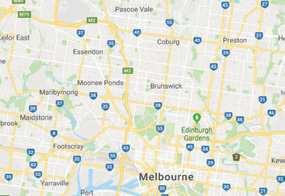

Financial counsellors offer practical advice to people facing economic hardship, unlike financial planners who focus on wealth creation strategies. You can find free and confidential services from a financial counsellor near you through the government’s MoneySmart website, along with dedicated financial counselling services for Aboriginal and Torres Strait Islander peoples from anywhere in Australia. Financial counselling is also available for farmers and rural or regional businesses at risk of fiscal hardship.
Find out more about financial counselling services in your state or territory on financialcounsellingaustralia.org.au or call the National Debt Helpline on 1800 007 007 to speak to a financial counsellor over the phone.
Financial Counselling Victoria Inc. is the peak body and professional association for financial counsellors in Victoria. Although FCVic does not provide advocacy services for individuals directly, the online platform can help vulnerable people throughout the state and facilitate contact with counsellors. Visit fcvic.org.au/get-help to learn more.
Disclaimer:Theinformationinthisbookisgeneralinnatureanddoesnotconstitutelegalorfinancialadvice. Readersshouldseektheirownpersonallegalandfinancialadvicefromasuitablyqualifiedpractitioner.

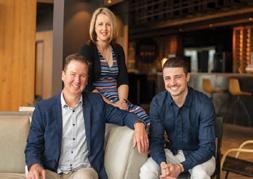
You can speak to a Financial Information Service (FIS) Officer about savings, investments and how changes to the Age Pension system may impact you, along with:
the Commonwealth Seniors Health Card; payments, information and help following the death of a loved one; financial information services; the Pensioner Concession Card; and the Home Equity Access Scheme.
To contact a FIS Officer, please call 13 23 00 between the hours of 8am to 8pm (local time) and request ‘Financial Information Service’ when prompted.
FIS Officers differ from Aged Care Specialist Officers (ACSO), as ACSO officers can offer you specific information and insight about aged care costs and services. To contact an ACSO, please phone the Services Australia Aged Care Line on 1800 227 475 from Monday to Friday — 8am to 5pm (local time).
You can book a face-to-face appointment with an ACSO, free of charge, via video call if you have an existing MyGov account or in person at the following service areas in Victoria:
Airport West
Bairnsdale and surrounding areas (including Sale)
Ballarat
Bendigo
Cheltenham
Echuca and surrounding areas (including Deniliquin, NSW)
Geelong
Glen Waverley
Hamilton
Heidelberg
Mildura
Mornington
Morwell
Ringwood
Seymour
Shepparton
Wangaratta
Warrnambool
Werribee

NEED HELP?

Has your loved one been advised to move into full-time care at an Aged Care facility? Are you uncertain about Aged Care charges and worried about fees? Need help understanding how to cover the “RAD” for Aged Care entry?
Want to make sure Centrelink or DVA benefits are preserved or optimised?
Let me guide you through Aged Care with clarity and compassion, creating a tailored plan to meet all your needs.
Plan for Aged Care entry and future strategies. Minimise facility fees and charges. Maximise Centrelink/ DVA entitlements. Provide options to make an informed decision.

People who are downsizing, moving into a smaller unit or having to move into a nursing home often have 50 years or more of accumulated goods and belongings.
Many people who are moving need packers, removalists, unpackers, sorters/de-clutterers, assistants, confidants, coordinators, cleaners and gardeners all rolled up into one.
If you need help, the best avenue is to speak to a case manager, social worker, placement consultant or contact a business that specialises in practical assistance with all aspects of relocating.
Services often include:
De-cluttering and sorting through household contents
Sorting the saleable items, identifying valuables, determining items to be discarded and compiling all documents
Compiling an inventory of the contents and arranging valuations
Assisting people to relocate into alternative accommodation
Clearing the home or unit prior to sale or tenancy termination
Gathering bequeathed items, photographs and memorabilia
Delivering valuables and important documents to the appropriate person
Delivering unsaleable goods to charities and removing rubbish
Coordinating real estate agents, auction houses, cleaners, gardeners, repairs and all other services
Unpacking your belongings in your new home
Installing electronic devices, like a TV or computer and hanging pictures
A professional relocation business may help alleviate all the emotional and physical work involved in relocating yourself, a loved one or friend into an aged care facility.
A well prepared and executed estate plan can not only save your estate unnecessary costs in the future but can also save your loved ones from unnecessary stress after your death.
Estate planning involves speaking with a legal practitioner to decide what will happen to your estate, also known as your assets, when you die. You should consider who you want to be in charge of your will, who you want to benefit from your estate, your funeral wishes and who you want to look after your financial and personal/health matters if you lose decisionmaking capacity during your lifetime.
Effective estate planning ensures your assets are protected and distributed to the right people according to your wishes.
A properly drafted, up-to-date will is the only way that you can be sure your assets will be dealt with as you wish when you die.
In Victoria, the executor of the will generally needs to apply for a Grant of Representation through the Supreme Court for permission to take control of the estate.
If you don’t have a will, a next of kin or relative can make an application for Letters of Administration to the Supreme Court to receive control of the estate.
In Victoria, if you die without a valid will, your estate will be treated as ‘dying intestate’ and your assets will be distributed under the Victorian intestacy law to your surviving relatives.
The only way to ensure that your loved ones are protected is to obtain proper legal advice regarding your estate planning.
To find out more information, visit the State Trustees VIC website, statetrustees.com.au or contact the Office of the Public Advocate on publicadvocate.vic.gov.au.
Most people know you should write a will to make sure your loved ones are provided for when you die, but what happens if you are left unable to make decisions for yourself due to accident, illness or other circumstances?
By creating an enduring power of attorney and nominating a trusted friend, family member or organisation, you put in place an effective plan to enable someone of your choosing to step in on your behalf when you are unable to make your own decisions . . . Think of it as a ‘living will.’
In Victoria, an enduring power of attorney can manage your financial, lifestyle and personal affairs. Medical decisions can only be made for you if they are also your medical treatment decision maker.
An Advance Care Directive should also be created to outline your medical wishes and this should be provided to your medical treatment decision-maker.
The best time to create an enduring power of attorney is while you are healthy and still capable of managing your affairs.
It is important to understand what a difference it can make to have a well-chosen attorney. If you lose the ability to make important decisions –whether they be medical, lifestyle, financial or personal – and you do not have an enduring power of attorney or Advance Care Directive, there may be conflict over who should make these decisions on your behalf.
Looking after your affairs requires responsibility, experience and the ability to deal with such matters; a spouse or family friend is often appointed. Once an enduring power of attorney has been executed, people or organisations nominated should be made aware of the document. It is advisable that people closely involved with your affairs should also be notified.
Having made the decision to leave the family home to enter an aged care home or retirement village, how and where do you begin with selling what may be your biggest asset?
Most people use a real estate agent to sell their property. This means you can take advantage of the experience and expertise of a professional to achieve the best selling price.
The agent will manage the sales process for you, from marketing your property, to holding open inspection days and managing enquiries from potential buyers.
They often have access to more potential buyers through their own database and can also negotiate the sales price on your behalf.
Some of the stress of the sales process can be removed by engaging the services of a seller advocate to deal with the real estate agent.
The seller advocate assesses your property’s worth, selects an appropriate target market and advises on the sale method.
The advocate then interviews and selects an agent based on your requirements. This ensures your budget is not exceeded and that your expectations are met. The seller advocate can also negotiate the agent’s fee and sale price.
This service reduces the contact between the seller and the real estate agent and ensures that the property’s set price range is attained with no nasty, unexpected surprises at any stage.
The seller advocate’s fee is a percentage taken from the real estate agent’s fee, so there is no direct cost to the seller.
Here is some advice for selling ‘stress-free;’ common ‘selling mistakes’ and the benefits of ‘downsizing’ the home to maximise your quality of life.
Do your research – what is the house really worth?
Think about the presentation of the home – are you going to sell it furnished or empty?
What methods of sale and marketing will you employ? Will the home be auctioned or will you accept expressions of interest?
Will the sale of your home impact on pensions?
Seek professional advice from a seller advocate, as well as a financial and legal advisor.
Research capital gains tax (CGT) to ensure that you are complying with Australian tax laws.
What is your area like and what is the going rate for rent?
Are you emotionally prepared to let go of your property?
Consider the impact of selling your home on those in your family –whether it’s their housing security or their ability to visit you.
Remove any unpleasant odours, such as a cigarette or pet stench.
Conduct a pest inspection and fix any hazards.
Contact a painter or get a family member to help you paint the property.
Ask potential buyers or agents about why people may be interested in the property and whether they are just after the land value.
Seek out legitimate removalists with insurance and policies to protect your goods.
Research Consumer Affairs Victoria guidelines about selling, including material facts and honest presentation of your property.
Consider whether the home is ‘owner-built’ and whether you need to meet specific legal requirements.



At Real Estate Care Service, there is absolutely no extra cost to use our vendor advocacy services and we keep you informed through the entire process
We work with our vendors every step of the way, from preparing the property for saleright through to settlement
Our hands on approach includes sourcing the right agent within the agency and handling all negotiations on your behalf, to ensure a stress-free and great result for your property
Real Estate professionals, with over 10 years of experience, working within the aged care industry





The aged care assessment will help decide what level of support you require. Your assessor will best be able to help you if you provide lots of information about yourself and what day-to-day tasks you struggle with.
The assessment will be done by a social worker, nurse, doctor or other health professional and can take an hour or so.
If the My Aged Care contact centre believes that you are eligible for basic home support, you will be assessed by a professional from the Regional Assessment Service (RAS).
If you require higher care support, a member of Aged Care Assessment Services (ACAS) will visit you at home to assess you for a higher level of support to meet your needs.
Some of the documents and information you should collect before your assessment include:
Medicare card and a form of identification, for instance, Department of Veterans’ Affairs (DVA) card, driver’s licence, passport or healthcare card
Notes or referrals from your doctor
Information about previous community, home- or aged-care services you have received
Details about support you receive from family, friends or the community
Prepared questions and information about aged care that you wish to discuss with the assessor so you have a better understanding about services
The contact details of your doctor and any other health professionals you see regularly
A translator or Auslan interpreter arranged if you require one
A support person to be present for the assessment if you want one
During a face-to-face assessment, an ACAS assessor will visit you in your home to get to know you and your circumstances and determine the types of support you need.
The assessor will ask you a number of questions about any supports you receive, your current lifestyle, any health concerns or chronic illnesses, how you deal with tasks at home and if you are struggling with any cognitive issues or memory loss.
Topics that might be covered or that you may want to bring up during your assessment include your:
medical history;
living arrangements;
support network;
existing forms of support and services;
cognitive and behavioural functions;
ability to perform daily tasks;
health and lifestyle concerns.
Be open and transparent about your wishes and what you believe will be of assistance around the home. They might also ask for your permission to talk with your doctor or specialist about the impact of any health conditions on your day-to-day life.
The assessment is also an opportunity for you to ask questions – if you don’t understand something, make sure you clarify with your assessor. You shouldn’t be leaving your assessment confused or stressed.
Some of the questions you may want to ask are:
What are my rights and responsibilities during this assessment process?
What services are available in my area?
Are there support options available for my carer?
What financial assistance am I eligible to receive?
Are there culturally appropriate services in the area?
Who can I contact if I have any questions after the assessment?
If you don’t want to receive government-funded home care or go into government-funded aged care, that is perfectly fine. There are private providers who don’t require any assessment to receive care or enter their facilities. However, you can’t receive government funding to pay for your stay in a private nursing home.
The ACAS assessment will take around an hour and at the end of the meeting the assessor will discuss the results of the assessment with you. They will review the information you have provided to determine what support option best suits you.
You will receive a letter within two weeks of your assessment to let you know if you have been found eligible for aged care services. This letter will also detail the types of services you will be able to access and any further information about how to access these supports.
If your situation is urgent, it may only take a couple of days before you get confirmation of approval for aged care.
You’ll be given a referral code linked to the type of service you are eligible to access. The service provider or aged care home of your choice will need this referral code to access your information with My Aged Care and manage the referral. They’ll also be able to access the funding allocated to you.
When you’re ready to start looking for providers to deliver the support services you have been found eligible for, you can use our online directory at AgedCareGuide.com.au for a comprehensive overview of the care options and care providers available near you.
Being approved for funded supports doesn’t always mean you will be able to access services straight away. You may need to wait until a suitable package or place in an aged care home becomes available; wait times can range from a few weeks to a number of months.
You have the final decision to accept or reject an ACAS recommendation. If you are unhappy with the recommendations, talk with the person in charge of the ACAS first because most concerns can be resolved this way.
If you can’t come to an agreement, you can appeal the decision and have the assessment reviewed.
To have the decision reviewed, you must write to the Secretary of the Australian Department of Health within 28 days of your assessment letter arriving. The request should be answered within 90 days with a decision.
The postal address of the Secretary of the Australian Department of Health is:
The Secretary Department of Health and Aged Care
Attn: Aged Care Assessment Program Reconsiderations
GPO Box 9848
ADELAIDE SA 5001
If you do not agree with the secretary’s review, you can escalate the matter further by contacting the Administrative Appeals Tribunal.
While asking for a review by the secretary is free, the Administrative Appeals Tribunal does incur a charge.
From 14 October, all cases before the Administrative Appeals Tribunal will be transferred to the new Administrative Review Tribunal. If you have questions about your case, please call 1800 228 333.

Once you have been assessed and approved for government-funded aged care, either for services in your own home or a place in an aged care home, you can start the process of finding a provider that suits your needs.
Your letter from My Aged Care confirming you are ready to start accessing services will include a referral code linked to the type of service you are eligible to access. If you need the support of multiple services, you will be given multiple referral codes – one for each service.
The service provider or aged care home of your choice will need this referral code to access your information with My Aged Care and manage the referral. They’ll also be able to access the funding allocated to you.
Choosing which provider to trust with providing support is an important and personal decision – one that you want to think carefully about and shouldn’t rush.
You may want to start by writing down what you are looking for in a provider and what is important to you. Are low fees important to you or would you like a provider who can support your cultural needs? If accessing home care, do you want the same support worker to assist you each time and do you want to receive support on specific days or are you more flexible with time?
It’s a good idea to discuss your wishes and options with your family and support network, as they may be able to help you research, provide independent opinions on providers or share personal experiences.
It’s useful to create a shortlist of providers in your local area that may help narrow down your search.
When considering a potential provider, take your time to do some research:
Look at the provider’s website, social media pages and online reviews.
Check out their credentials, such as quality certifications and industry awards.
Do they have any past or present sanctions or notices of non-compliance?
You can ask them directly or check the government’s non-compliance finder tool at myagedcare.gov.au/ non-compliance-checker.
You can use this Guide or the AgedCareGuide.com.au directory online to search for service providers in your area that meet your requirements.
If you aren’t comfortable finding or choosing a provider by yourself, there are experts who can help you find a nursing home that suits your needs and preferences. A placement consultant has knowledge of local aged care facilities and can make the process of entering aged care smoother. Find a placement consultant on AgedCareGuide.com.au or call 1300 606 781 to access placement services.
Once you have chosen a provider, you will need to contact them to start the home care services you need or to be placed on their waiting list for a bed vacancy. During this conversation, it is also essential to discuss fees and services with your new provider so you know how much the support or aged care bed is going to cost.
When looking into home care services, here are some things to investigate and ask the provider you are considering:
Do they service your area?
Is the company Australian-owned?
Is it independent or part of a franchise?
Do the owners/operators have experience in home care?
Does the company have appropriate insurance?
Does the company comply with Australian tax law? For example, does it charge GST appropriately?
Do they provide documents about financial arrangements before service begins?
Do they have a service agreement? It is important so that there’s no misunderstanding about the service and cost to be provided.
Are they flexible? After all, it is all about you.
What are their recruitment processes?
Is there a criminal background check performed prior to employment with an agency?
Does the company provide workers compensation for employees? This is important so that you are not responsible for any injuries that occur on the job.
How do they determine appropriate staff for your needs? If a company asks where you live and then offers you staff before even hearing about your needs, you can be reasonably assured they allocate based on location as a priority.
Is it possible to interview potential carers and make a selection after those interviews?
Do you get to decide what times and days suit your needs?
What is the minimum shift length?
Do they have male/female workers and can they cater for specific cultural backgrounds?
Who will be working in the home? Will there be regular staff providing continuity of care or do they change shifts around?

For over 30 years we have been providing quality care in a safe and supportive environment.
We have 10 homes conveniently located in Melbourne & Geelong all offering our core philosophy of promoting independence while fostering a caring environment.
If you or your loved one are looking for care, our admissions team can discuss your individual situation and advise on the many options available.

Book a tour today. Call 1300 104 663 or scan the QR code for more info.
> Permanent & Respite
> 24/7 Registered Nurses
> Specialised Dementia Care
> Tailored Leisure Programs
> Onsite Chef Prepared Meals
Bayswater, Bayswater North, Berwick, Cranbourne, Point Cook, Rowville, Tarneit Geelong Grovedale, Leopold, Ocean Grove
Is there a professional staff member, such as a registered nurse, who liaises with you to create a plan that meets your needs?
Who is the organisation’s main contact for you?
Do you meet a manager/owner and then never hear from them again? What additional support is offered within the cost of your care? For example, are they available 24/7?
You’ll find a list of in-home care service providers from page 117 in this guide or visit AgedCareGuide.com.au to find providers servicing your location.
Needing to place a loved one into an aged care home can be a highly stressful event for families and carers.
You might think it’s a lack of information or understanding, but it’s because you are both the carer and the person emotionally involved, as well as the decision maker.
This process can be eased significantly with the help of an aged care placement consultant who can take control of the running around, paperwork and planning.
Moving into residential care is a situation most people postpone for as long as possible until the point of necessity, often leaving little time to organise everything.
If some initial planning were to be undertaken, it could soothe the transition and reduce the stress at what is a critical turning point in people’s lives.
Planning should include obtaining information on the financial implications of entering residential care, gaining information on the facilities available in your area and ensuring wills, powers of attorney and guardianship are up-to-date.
A placement consultant can take over a lot of the stress of searching for and transitioning into an aged care home.
These professionals can also assist you in finding a bed placement more promptly because of their connections with aged care providers and services.
Every single transition to aged care is unique and a placement consultant will take several things in consideration to make sure the advice is right for your circumstances.
Are you looking for care options for a single person or a couple?
Is there a physical condition that is deteriorating, are mental faculties and awareness impaired?
Is there acceptance or understanding of this part of the journey?
What are the family dynamics around the placement decision and the impact on everyone involved?
Having extensive knowledge of facilities in their area, as well as the placement process, an aged care placement consultant can often find a home faster and one that is specially suited to your requirements. Through their established relationships with aged care homes, they are familiar with the culture of each home and, most importantly, they have advanced knowledge when vacancies become available. By knowing the culture of each facility and getting to know you, placement consultants can determine which homes would best suit your needs and preferences and make prior applications to these homes. Without the assistance of an aged care placement consultant, you or your carer would need to constantly phone the facilities of your choice to demonstrate your eagerness and commitment to obtaining a bed in that home.
The aged care placement consultant advocates on behalf of you and your family and is able to assist with the whole assessment process. They also complete all the necessary paperwork and application forms for entry into an aged care home which is helpful, as the applications can be quite daunting. They may suggest seeking financial advice where required. An aged care placement consultant helps share the load at this crucial time, can significantly speed up the time it usually takes to find a placement at a suitable home, thereby easing the transition into residential care.

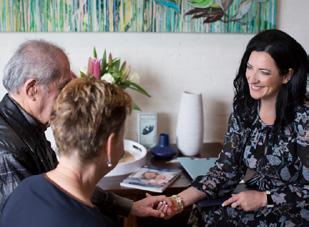


“We care about the people you love.”
Judy and Georgie focus on WHO YOU ARE and WHO you have been in your LIFE! That is why we meet and spend time with all clients. Providing personalised care, support, advice and information to navigate the aged care system, in a truly client centred way. Our skill lies in helping to minimise stress and anxiety in the placement process about the people you love.”
• orsomeoneyoulovefindsuitablehousingsolutions • reducetheanxietyassociatedwiththemove • minimisethestressonfamilyrelationships
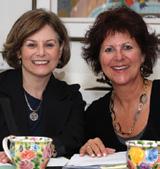
orsomeoneyoulovefindsuitablehousingsolutions reducetheanxietyassociatedwiththemove minimisethestressonfamilyrelationships move
Be sure about your expectations of service and what the placement consultant is able to provide, including:
Face-to-face family meetings to discuss your situation and a respect for the emotions of all the family members involved
Support and recommendations that cater for the specific requirements of your family and loved one
Counsel that prioritises family sensitivities, needs and special requests, before asking how much money is available and getting the status of the financial situation
Practical assistance with urgent placement situations – which they often are – where reducing the typical waiting times or arranging respite care is a necessity
There are many qualified placement consultants within Victoria who can help you in your aged care journey.
When you’re choosing a placement consultant to support you through the aged care transition, look for someone who is an expert in building and nurturing relationships, who is unbiased and independent and has no business investment or alignment with any aged care facility.
An independent professional is able to provide guidance based entirely on your individual circumstances, not biased by commission or kickbacks from any particular facility or provider.
Choose an advocate who will ease your concerns, supporting your family with all aspects of this transition, allowing you to focus on your loved one.
Placement consultants are most happy for you to call them for a chat and understand you may talk to a number of them before making your choice.
You can be open in your discussions because, as health professionals, they have a policy of confidentiality. Their professional fees may differ and it is reasonable to advise them if you are working to a budget.
“We care about the people you love.”
Initial enquiry Judy Warren: 0411 757 185 or judy@moveubytlc.com.au www.moveubytlc.com.au
transitioning life changes agedcaresupport,informationand advocacy

Some placement consultants charge by the hour, whilst others offer a package of services for one fixed price. Ensure that you are advised of all the possible fees and costs up front.
Finally, make sure you feel comfortable talking with the placement consultant, because your professional relationship will rely on them understanding what you want and organising the appropriate care services to meet those needs.
Placing a family member into care can be life-changing. There are many factors – physical, social, psychological and financial – that may arise which families sometimes find too difficult to cope with by themselves.
Each family member may want their opinion to be considered when it comes to making important decisions. There are specialist health professionals who offer independent, non-judgmental services, which can explore the subtleties of each situation and offer caring support in addition to counselling and conflict resolution.
The journey into aged care is often a challenging and emotional time. Not only for you, the person going into care, but also for family members who have sometimes cared for their loved one for a long time.
You may feel rejected and unloved, scared to take the step of going into care and worry you’ll lose your independence.
At the same time, many family members feel guilty about not being able to look after their loved one anymore. They feel overwhelmed by the aged care system and can’t give the assistance that is required.
Finding professional support may relieve you from negative beliefs and provide you with coping skills which can ease the difficult journey towards placing a loved one in care.
Some placement consultants offer counselling as part of their services or may be able to refer you to a counsellor.
You can find placement consultants in the products and services directory on page 199–200 or search on AgedCareGuide.com.au.
The case management process uses a comprehensive approach to identify and implement health and social care services to optimise your health, quality of life and active participation in the community.
Case management may be short- or long-term or episodic. It plans for both current situations and your long-term needs.
Case managers work in partnership with you, your carer and family, as well as other service providers to develop and implement individualised care plans and strategies best suited to your needs and goals.
Health-based case managers are usually a nurse, social worker or allied health professional.
Community-based case managers generally have skills from a range of disciplines such as social workers, behavioural science, allied health or nursing.
If you are eligible for a government-funded care package, case managers are often assigned through your service provider as part of your Home Care Package or home care services.
However, If you have complex and multiple needs and you’re looking at different care options or you would prefer not to use a government-funded package, you may choose to use the services of a private case manager.
Private case management services are supplied by experienced, tertiary-qualified case managers, to provide support services and coordination across a wide range of community and supportive health services.
Waiting periods for private case management are generally reduced compared to some government-subsidised services.
The duration of private case management is flexible and may be short-term or ongoing, depending on your needs.
The service of a private case management is not government-subsidised in any way, so you will be charged for all services.
Hourly rates vary between private case management organisations, so always ask for a breakdown of costs before employing them.
Generally, an invoice for all care services purchased on your behalf will be provided to you each month.
Many case managers offer no-lock-in contracts, meaning care can be arranged for one, several or many ongoing visits and you only pay for what you use.
The aim of care planning is to provide appropriate and coordinated care that you have control over. Care plans are person-centred and prioritise the needs identified in the comprehensive assessment.
The case manager implements the care plan and this may include identifying support services that other community care agencies will provide.
Services may include the purchase or hire of equipment or installation of assistive aids, such as bathroom rails, and negotiating with support agencies for delivery of services.
The case manager also monitors each individual to ensure the service provision is effective and financially accountable, to identify changes and make adjustments to the care plan if needed.
Lifeview is a family focused community, providing care and wellness in a supportive, social environment. Residents enjoy peace of mind and live well through engagement, warm hospitality and lifestyle choices.
Australian owned and operated we offer permanent, and respite care in the eastern and south eastern suburbs of Melbourne.

A Rainbow Tick accredited organistation, Lifeview is Lesbian, Gay, Bisexual, Transgender, Intersex and Queer friendly for residents, staff and volunteers. We are committed to ensuring older Australians are able to age with grace, dignity, choice and without fear of prejudice.
Lifeview homes feature Home2Home, our exclusive small‑house, relationship‑based model of care, where multi‑skilled staff (housemates), work with the same group of residents all the time. Home2Home enables staff to spend more meaningful time within their household, creating better continuity of care and building on already established relationships.
Home2Home also assists residents to remain as independent as they desire, to have a say in how the home is run, what meals they would like to see on the menu, and what activities they wish to participate in.
Lifeview focuses on promoting resident wellbeing and quality of life through best practice lifestyle programming, intergenerational engagement and a culture of inclusion, fun and positivity.
Lifeview’s residences are designed to help people live active lives with plenty of social activities and community involvement. This, coupled with our exceptional care and warm, welcoming environment, is what Lifeview is all about.
All rooms in Lifeview’s homes are single with en suite, giving residents their own secure private space. Pets are also welcome at Lifeview.


We believe in making laughter and fun a priority, you are never too old to have fun. Our energetic and creative social support team organise a monthly calendar of events, with meaningful activities scheduled seven days a week, designed to capture the interests of all residents. The program also features special events and theme days, tailored exclusively to each home. Our social activities program is diverse and inclusive.
We encourage you to book a private tour with us at a time that suits you, Monday to Saturday, to see the Lifeview difference for yourself.

provide
with
List
List of respite, services and activities for social/recreational support in a ‘centre-setting’
List of allied health/therapy services for physical or psychological support in a ‘centre setting’
& services (advertisers only)
List of organisations that provide aged-care-related services & products for consumers and industry users
& business index (advertisers only)
List of organisations advertising in this guide with contact details and the products/services they provide
DISCLAIMER: The information listed in the following pages were compiled by DPS Publishing using a range of sources including Government departments, Aged Care Assessment Service, Aged Care Providers, publicly available information, the DPS Publishing database and checked via telephone and online questionnaires. You can visit AgedCareGuide.com.au for the most up to date details. For further information contact the individual provider. The information contained in the Location and Information Guide should be used as a guide only. DPS Publishing takes no responsibility for the accuracy of the information contained within the Aged Care Guide.
24-Hour On-site Supervision – A person(s) who is/are employed to live in or in close vicinity of a retirement village and will respond to requests for assistance when regular staff are off duty.
Aged Care Assessment Services (ACAS) – Assess and approve older people for Australian Government-subsidised aged care services.
Aged Care On Site – The retirement village has an aged care facility at the same location.
ATSI – Services offered to Aboriginal and Torres Strait Islander older aged people and their carers.
Booked Respite Beds – At least one bed at the facility is allocated to respite and eligible people can contact the facility to book a respite stay in advance. Prior assessment by an Aged Care Assessment Team required.
CALD – Services offered to Culturally and Linguistically Diverse aged people and their carers.
Care Community (CC) – Private self-contained accommodation run by approved providers where you can access additional care or support packages as a genuine alternative to a nursing home.
Care Plan – Developed by the service providing your care and outlines care needs and instructions on how these needs will be met.
Centre-based Care (CBC) – Services, respite, and activities for social and recreational independence in a ‘centre setting’ for aged/frail clients and their carers.
CHSP Funded – An in-home or centre-based care service funded by the Commonwealth Home Support Programme government initiative.
Communal facilities – Shared facilities for residents such as community hall, swimming pool or bowling green.
Consumer-directed Care (CDC) – Allows you to control the types of care you access, how it is delivered, and who provides that care. All home care packages are delivered on a CDC basis.
Daily Accommodation Payment (DAP) – This is a daily payment to a government-funded aged care facility, paid periodically i.e.monthly . This is not a refundable payment.
Day Therapy Centre (DTC) – Allied health/therapy services to develop or maintain physical and psychological independence in a ‘centre setting’, provided to aged/frail clients and their carers. Includes clients with dementia and disabilities.
Dementia Services – Services offered to clients with dementia and/or challenging behaviours, as well as their carers.
Domestic Assistance – Help washing of clothes, dishes, floors, wet areas, ironing, minor meal preparation, vacuuming, changing bed linen, dusting, cleaning living areas.
Donor Funded – The purchase price, or entry contribution, of a dwelling by a resident in a retirement village, may be subsidised by a not-for-profit organisation.
DVA Services – Programs and services that can be accessed with funding from the Department of Veterans' Affairs.
Extra Services Beds/Places – Places at an aged care facility for which residents receive a higher standard of accommodation, food, and services for an additional charge.
Health Services – Can include dental, exercise therapy, medical practitioners, nutrition, occupational therapy, optical, podiatry, physiotherapy or speech therapy services that are delivered on site.
Home Maintenance/Gardening – Assistance with replacement of tap washers, light globes, minor weeding/ pruning, sweeping of outdoor areas, minor carpentry repairs, and gutter cleaning.
Independent Living Unit (ILU) – Sometimes referred to as a villa or apartment and located in a retirement village.
LGBTIQ – Some aged care services offer specific care to Lesbian, Gay, Bisexual, Transgender, Intersex, and Questioning residents.
Licence to Occupy – A form of retirement living tenure that gives residents the right to occupy a residence without having ownership of it.
Meals &/or Shopping – Delivery of daily cooked or frozen ready-to-eat meals, or transport to the shops and assistance provided, or having someone to do the shopping. In a CBC setting this refers to meals or light refreshments provided at the centres.
Medication Supervision – Service provider attends the client’s home daily to assist in dispensing medication.
Multi-purpose Service (MPS) – Located in centre settings and some residential aged care facilities. They deliver a mix of aged care, health and community services.
NESB – Services offered to Non-English Speaking Background older aged people and their carers.
Non-dedicated Respite – The residential aged care facility does not have a dedicated room for respite. These facilities only offer respite when they have accommodation available.
Palliative Care – Providing care to patients living with a life limiting illness, supporting and improving patients quality of life by addressing medication and pain management. Can be provided at home, in a residential care setting or in a specialist palliative care service like a hospice.
Personal Care – Assistance with personal hygiene, washing, showering, bathing, dressing, feeding, and toileting. In a CBC setting personal care is offered while the client is at the centre.
Pharmaceutical Deliveries – The delivery of medications by a service provider directly to the client or older person's home.
Privately Funded – Non-government-funded residential aged care facilities known as supported or assisted living complexes, independent living units and serviced apartments. No ACAS is needed prior to a person entering the home.
Purchase – Residents buy a loan/licence agreement for a dwelling in a retirement village or purchase on a freehold basis.
RAD/DAP Combination – This includes both partial lump sum and daily payments for aged care accommodation.
Refundable Accommodation Deposit (RAD) – This is paid as a lump sum when entering a government-funded aged care facility and refunded, minus agreed deductions, when leaving the facility.
Registered Nurse – Senior nurses who care for the sick and injured in hospitals and other health care facilities, doctors’ surgeries, and private homes.
Regional Assessment Service (RAS) – In-home assessments of new and existing clients/carers for CHSP services.
Rental Accommodation (RA) – Villas, units or ILUs available for rent in a retirement village.
Resident Funded/Purchase – Residents purchase a loan/ licence agreement for a dwelling in a retirement village or purchase on a freehold basis.
Respite Care – Services provided so a client or their carer can take a break from their daily routine. Includes care in the client’s home, at a day centre, or in an aged care facility.
Retirement Living (RL) – The site has retirement living accommodation.
Secure Dementia Unit – Secure specialised ward, wing, or unit for people with dementia and/or challenging behaviours.
Service Fee – A fee to cover the services offered by a retirement village, including maintenance, improvements, utilities, and council rates etc.
Serviced Apartment – Usually one or two bedrooms and provides residents with some domestic and ‘hotel-like’ services such as cleaning, laundry, and personal care. Services may be provided on a fee for service basis.
Single Bedrooms with Ensuites – This facility offers a number of single bedrooms with an attached bathroom. Might not be every room in the home.
Small Pets Welcome – The site has a policy for residents enabling them to have small pets but it's dependent on the type, size, and care needs.
Social &/or Recreational Support – The client participates in social or recreational activities either in their home or at a community, day, or recreational centre.
Supported Residential Services (SRS) – Privately run aged care facility that provides similar accommodation and care to that of a government-funded facility but without the funding support.
Supported & Assisted Living (SL) – Supported & assisted living communities offer accommodation and care to residents on a fee for service basis without government funding.
Transport – Organising or providing transport services such as bus, taxi, private car etc. In a CBC setting this refers to transport to and from the centre.
VHC Services – Programs and services for veterans that can be accessed through the Veterans' Home Care program.
See


A list of suburbs and the page references where all the aged care homes in that suburb are listed. If a suburb/town is not listed, please refer to the next closest suburb.
Suburb / Town Page
Albert Park 162
Alexandra 178
Alphington 149
Altona Meadows 151
Altona North 151
Anglesea 179
Apollo Bay 171
Ararat 168
Ardeer 146
Armadale 162
Armstrong Creek 172
Ascot Vale 159
Ashburton 144
Ashwood 158
Aspendale 152
Avoca 178
Avondale Heights 159
Bacchus Marsh 177
Bairnsdale 172
Ballan 177
Ballarat 168
Ballarat East 168
Ballarat North 168
Balnarring 161
Balwyn 144
Balwyn North 144
Bannockburn 174
Baranduda 181
Bayswater 154
Bayswater North 156
Beaconsfield Upper 147
Beaufort 178
Beechworth 175
Bell Park 172
Belmont 173
Benalla 170
Bendigo 170
Bentleigh 150
Bentleigh East 150
Berwick 147
Birchip 170
Blackburn 163
Blackburn South 163
Suburb
Suburb / Town Page
Horsham 175
Hughesdale 158
Inglewood 176
Inverloch 169
Ironbark 170
Irymple 176
Ivanhoe 142
Jacana 152
Jeparit 174
Junction Village 148
Kangaroo Flat 170
Kaniva 181
Keilor Downs 146
Keilor East 159
Kensington 157
Kerang 172
Kew 145
Keysborough 148
Kialla 178
Kilmore 176
Kilsyth 157
Kingsville 156
Knoxfield 154
Koo Wee Rup 147
Korumburra 179
Kyabram 171
Kyneton 176
Lake Wendouree 168
Lakes Entrance 172
Lalor 164
Langwarrin 150
Lara 173
Leongatha 179
Leopold 173
Lilydale 166
Lorne 179
Lower Plenty 142
Lynbrook 148
Lysterfield 154
Macleod 142
Maffra 181
Maidstone 156
Maldon 177
Malvern 162
Malvern East 163
Manangatang 180
Mansfield 176
Suburb / Town Page
Violet Town 179
Wallington 174
Wangaratta 180
Wantirna 155
Wantirna South 155
Warburton 166
Warracknabeal 181
Warragul 170
Warrnambool 180
Suburb / Town Page
Wattle Glen 162
Wendouree 169
Werribee 165
West Wodonga 181
Westmeadows 152
Wheelers Hill 159
Whittington 174
Whittlesea 165
Willaura 168
Aged Care Guide
Suburb / Town Page
Williams Landing 165 Williamstown 151 Winchelsea 180
Windsor 162 Wodonga 181 Wonthaggi 169 Woodend 176 Wycheproof 171 Wyndham Vale 165
VICTORIA Edition 24
The tables below provide you with an alphabetised list of LGAs and the page reference where you can find details about Home Care Packages and aged care homes in that local government area (commonly referred to as a Council District).
Council District
Page Reference Home CareResidential
Alpine 136-140168
Ararat 136-140168
Ballarat 136-140168-169
Banyule 126-134142
Bass Coast 136-140169
Baw Baw 136-140169-170
Bayside 126-134143-144
Benalla 136-140170
Boroondara 126-134144-146
Brimbank 126-134146
Buloke 136-140170-171
Campaspe 136-140171
Cardinia 126-134147
Casey 126-134147-148
Central Goldfields 136-140171
Colac-Otway 136-140171
Corangamite 136-140172
Darebin 126-134149
East Gippsland 136-140172
Frankston 126-134150
Gannawarra 136-140172
Glen Eira 126-134150-151
Glenelg 136-140174
Golden Plains 136-140174
Greater Bendigo 136-140170
Greater Dandenong 126-134148-149
Greater Geelong 136-140172-174
Council District
Page Reference Home CareResidential
Greater Shepparton 136-140178-179
Hepburn 136-140174
Hindmarsh 136-140174-175
Hobsons Bay 126-134151
Horsham 136-140175
Hume 126-134152
Indigo 136-140175
Kingston 126-134152-154
Knox 126-134154-155
Latrobe 136-140175
Loddon 136-140175-176
Macedon Ranges 136-140176
Manningham 126-134155-156
Mansfield 136-140176
Maribyrnong 126-134156
Maroondah 126-134156-157
Melbourne 126-134157
Melton 126-134157
Mildura 136-140176
Mitchell 136-140176
Moira 136-140177
Monash 126-134158-159
Moonee Valley 126-134159
Moorabool 136-140177
Moreland 126-134160
Mornington Peninsula 126-134161
Mount Alexander 136-140177
Council District Page Reference Home CareResidential
Moyne
136-140177
Murrindindi 136-140178
Nillumbik 126-134162
Northern Grampians 136-140178
Port Phillip 126-134162
Pyrenees 136-140178
Queenscliffe 136-140178
South Gippsland 136-140179
Southern Grampians 136-140179
Stonnington 126-134162-163
Strathbogie 136-140179
Surf Coast 136-140179-180
Swan Hill 136-140180
Towong 136-140180
Wangaratta 136-140180
Warrnambool 136-140180
Wellington 136-140181
West Wimmera 136-140181
Whitehorse 126-134163-164
Whittlesea 126-134164-165
Wodonga 136-140181
Wyndham 126-134165
Yarra 126-134165
Yarra Ranges 126-134166
Yarriambiack 136-140181
This map provides you with a geographical reference to the LGA regions in the wider Metropolitan area of

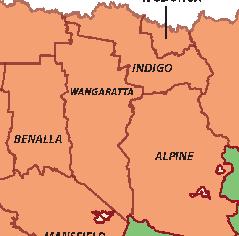
Approved Home Care Package providers deliver home care and support services to members of the community who live at home.
If you’ve been approved for a government-funded Home Care Package of any type, you may approach any approved Home Care Package provider to provide the services you need.
Some providers may only provide services in one region while others can service multiple areas.
On the following pages, you’ll find alphabetical lists of approved providers in Greater Metropolitan Melbourne.
To help you know which approved providers offer services in a certain region, we’ve included coloured bars down the left-hand side of the directory pages.
The reference tables are organised in five regions: Melbourne city, Eastern metro, Northern metro, Southern metro and Western metro.
The list below is a quick reference guide to help you find in which group council districts are listed. For example: Whitehorse LGA is grouped under Eastern metro.
Page 123 is a colour-coded map of Greater Metropolitan Melbourne to show you which council districts are grouped together.
Council District Region
BanyuleNorthern
BaysideSouthern
BoroondaraEastern
BrimbankWestern
CardiniaSouthern
CaseySouthern
DarebinNorthern
FrankstonSouthern
Glen Eira Southern
Greater Dandenong Southern
Hobsons Bay Western
HumeWestern
KingstonSouthern
Knox Eastern
ManninghamEastern
MaribyrnongWestern
MaroondahEastern MelbourneMelbourne
MeltonWestern MonashEastern
Moonee Valley Western
MorelandWestern
Mornington Peninsula Southern NillumbikNorthern
Port Phillip Southern
StonningtonSouthern
WhitehorseEastern
WhittleseaNorthern
WyndhamWestern
Yarra Northern
Yarra Ranges Eastern
H O M E C A R E P A C K A G E S
The table on the next few pages lists approved HCP providers in alphabetical order, detailing the HCP levels they offer and if they offer any package supplements.
Ethnicity, country or cultural groups listed under ‘Notes’ applies to all package levels in that row. If service providers have an advertisement in this guide, then the page number of the advert is listed in red under 'Advert Page.' The ‘DPS Web ID’ number can be used as a unique identifier to find out more information on AgedCareGuide.com.au
The same type of care and services are provided under each HCP level of care and these may include transport, domestic assistance, social support, personal care, home maintenance, home modification, nursing care, food services and medication assistance.
The hours of care are increased at each level of care, i.e.morehoursofcareandservicesareprovidedunderHCPLevel4andthe leastunderHCPLevel1.
Package supplements, like the Dementia Supplement Z and the Veterans’ Supplement R , are offered to eligible persons only. Some packages are specifically for people who are financially or socially disadvantaged e , people with housing needs or at risk of homelessness Y or for people who live in rural or remote areas t . The cultural environment g indicates providers offering services for people from culturally diverse backgrounds.
Based on your care needs, an ACAS assessment will determine what level of care you are eligible for and if any supplements apply to you.
These icons help you find the packages that are most suitable for you.
eGeneral packages suitable for all eligible clients
Packages for people with dementia
Packages for people who are financially or socially disadvantaged
Packages for people with housing needs and at risk of homelessness
Packages for people who live in rural, remote or isolated areas
Packages for veterans
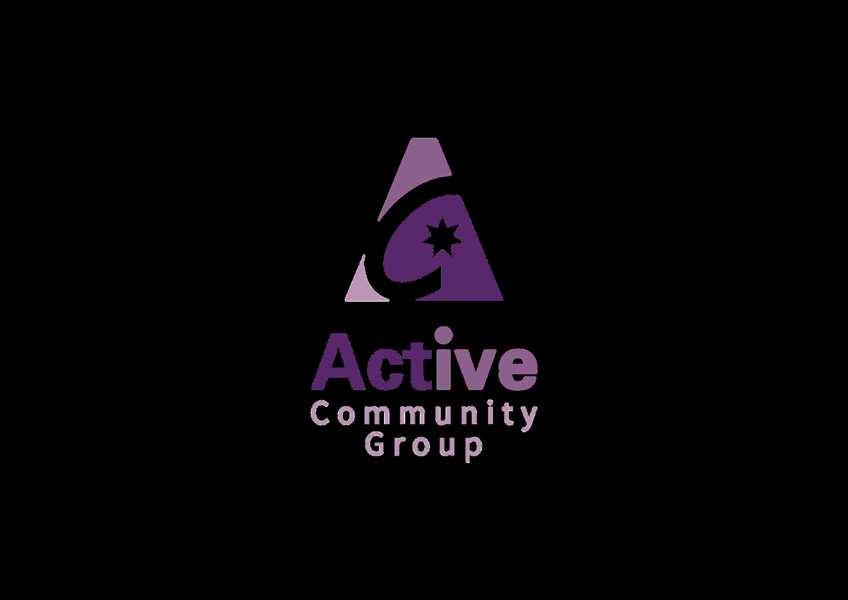





















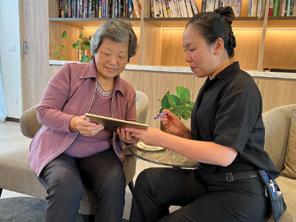

Packages for people who
Packages
Packages
Packages for veterans

nnnnn
General packages suitable for all eligible clients
Packages for people with dementia
These
Packages for people who are financially or socially disadvantaged Y
Packages for people with housing needs and at risk of homelessness
Packages for people who live in rural, remote or isolated areas
Packages for veterans
General packages suitable for all eligible clients
Packages for people with dementia
Packages for people who are financially or socially disadvantaged
Packages
Packages for people who
Packages for veterans

General packages
clients
A
Packages for people with dementia
These
Packages for people who are financially or socially disadvantaged
Packages for people with housing needs and at risk of homelessness
Packages for people who live in rural, remote or isolated areas
Packages for veterans

Approved Home Care Package providers deliver home care and support services to members of the community who live at home.
If you’ve been approved for a government-funded Home Care Package of any type you may approach any approved Home Care Package provider to provide the services you need.
Some providers may only provide services in one region while others can service multiple areas.
On the following pages you’ll find alphabetical lists of approved providers delivering aged care services in rural and regional Victoria.
To help you know which approved providers offer services in a certain region, we’ve included coloured bars down the left hand side of the directory pages.
The reference tables are organised in five regions: North East region, North West region, South East region, South West region and West region.
The list below is a quick reference guide to help you find in which group council districts are listed. For example Latrobe is listed under South East region.
Page 124 is a colour-coded map of the Victorian rural and regional areas to show you which council districts are grouped together.
Alpine North East
Ararat West
Ballarat West
Bass Coast
South East
Baw Baw South East
Benalla North East
Buloke North West
Campaspe North West
Central Goldfields North West
Colac-Otway South West
Corangamite South West
East Gippsland South East
Gannawarra North West
Glenelg South West
Golden Plains West
Greater Bendigo North West
Greater Geelong
South West
Greater Shepparton North East
Hepburn West
Hindmarsh West
Horsham West
Indigo North East
Latrobe South East
Loddon North West
Macedon Ranges
Mansfield
Mildura
Mitchell
Moira
North West
North East
North West
North East
North East
Moorabool West
Mount Alexander
Moyne
North West
South West
Murrindindi North East
Northern Grampians West
Pyrenees West
Queenscliffe
South Gippsland
Southern Grampians
Strathbogie
Surf Coast
Swan Hill
Towong
Wangaratta
Warrnambool
Wellington
South West
South East
South West
North East
South West
North West
North East
North East
South West
South East
West Wimmera West
Wodonga
North East
Yarriambiack West
H O M E C A R E P A C K A G E S
The table on the next few pages lists Home Care Packages approved providers in alphabetical order, detailing the Home Care Packages level they offer and if they offer any package supplements.
Ethnicity, country or cultural groups listed under ‘Notes’ applies to all package levels in that row. If service providers have an advertisement in this Guide, then the page number of the advert is listed in red under 'Advert Page.' The ‘DPS Web ID’ number can be used as a unique identifier to find out more information on AgedCareGuide.com.au
The same type of care and services are provided under each Home Care Package level of care, and these may include transport, domestic assistance, social support, personal care, home maintenance, home modification, nursing care, food services, and medication assistance.
The hours of care are increased at each level of care i.e.morehoursofcareandservicesareprovidedunderHomeCare PackageLevel4andtheleastunderHomeCarePackageLevel1.
Package supplements, like the Dementia Supplement Z and the Veterans’ Supplement R , are offered to eligible persons only.
Some packages are specifically for people who are financially or socially disadvantaged e , people with housing needs or at risk of homelessness Y , or for people who live in rural, remote or isolated areas t . The Cultural Environment g indicates providers offering services for people from culturally diverse backgrounds. Based on your care needs, an ACAS assessment will determine what level of care you are eligible for and if any supplements apply to you.
General packages suitable for all eligible clients
Packages for people with dementia 8
These icons help you find the packages that are most suitable for you. e
Packages for people who are financially or socially disadvantaged Y
Packages for people with housing needs and at risk of homelessness t
Packages for people who live in rural, remote or isolated areas R
Packages for veterans Z
Cultural environment
General packages suitable for all eligible clients
Packages for people with dementia
These icons help you find the packages that are most suitable for you.
Packages for people who are financially or socially disadvantaged
Packages for people with housing needs and at risk of homelessness
Packages for people who live in rural, remote or isolated areas
Packages for veterans
General packages suitable for all eligible clients
Packages for people with dementia
These icons help you find the packages that are most suitable for you.
Packages for people who are financially or socially disadvantaged
Packages for people with housing needs and at risk of homelessness
Packages for people who live in rural, remote or isolated areas
Packages for veterans
Icons in the residential listings represent various types of services available in aged care facilities.
Booked Respite Beds — Dedicated respite beds that should be booked in advance. Prior assessment by an Aged Care Assessment Service (ACAS) is required.
Extra Services — A service offering a ‘higher’ standard of accommodation, including increased entertainment and food choices at an additional cost to the resident.
Pets on Premises — The facility owns dogs or cats that are able to interact freely with residents. Some facilities may consider you bringing your small pets.
Secure Dementia Unit — Safe and secure wing or unit of the aged care facility offering specialised care to those living with dementia.
Secure Garden — An onsite secure gated garden for residents (especially those with dementia) to enjoy for recreation or therapy.
Specialist Palliative Care — Specialised care services for those nearing the end of their life in an aged care facility. Staff are trained in pain management and other palliative care measures. Transition Care Beds — A bed-based service allowing older people more time and support post-hospitalisation in a ‘non-hospital’ environment to optimise their functional capacity.
Culturally Specific — Care services catering to the needs of those from non-English speaking or culturally and linguistically diverse backgrounds. Seldom exclusive, for example, all people are welcome. The home has special knowledge of the referenced culture or group.
Retirement Living Onsite — Retirement living services/village co-located on the same geographic site as the aged care facility.



Council
3147

BOROONDARA Council continued
Camberwell 3124
3126
3146
3122
East 3123


BOROONDARA Council continued Mont Albert 3127
Surrey Hills 3127
Council
Ardeer 3022
Cairnlea 3023
3037
Downs 3038
Sydenham 3037

Council
Beacons eld Upper 3808 Menarock LIFE Upper
Bunyip 3815
Hillview Bunyip Aged Care 22
Emerald 3782
Koo Wee Rup 3981
Doyle
O cer 3809
Cardinia Community Aged
Pakenham 3810 Menarock LIFE Pakenham 11 McGregor Rd

CASEY Council
Berwick 3806
Clyde North 3978
Cranbourne 3977
Cranbourne East 3977
Doveton 3177 Chestnut
Endeavour Hills 3802
Hallam 3803
Because Lifeview knows pets are family, too! Lifeview homes are proudly pet-friendly, allowing you to keep your special bond with your beloved pet in aged care. Learn more about the Lifeview way today at www.lifeview.com.au
Junction Village 3977
Lynbrook 3975
Narre Warren 3805
Narre Warren North 3804
Narre Warren South 3805

(Greater) Council
Dandenong 3175
3173
METROPOLITAN Aged Care Homes listed by Councils (LGAs) and then Suburbs
continued to
DANDENONG (Greater) Council continued Springvale 3171
Springvale South 3172
DAREBIN Council
Alphington 3078
Macleod 3085
Northcote 3070
Preston 3072
AgeWell Preston
Reservoir 3073

3910

Home Locations: Hughesdale | Narre Warren | Narre Warren South | Carrum Downs Coburg North | Parkdale | Traralgon | Boronia | Ashwood Enquiries Welcome (03) 9428 2800 or visit www.maacg.com.au

Bentleigh 3204
3165
3187
GLEN EIRA Council continued Carnegie 3163
Arcare Carnegie 47 Rosanna St 1300 272 273
Finchley Court 1168 Dandenong Rd 9569 6699 P 20
Caul eld 3162
Caul
Caul eld North 3161
Arcare Caul eld 141 Kooyong Rd
Monash Aged Care 518-526
Caul eld South 3162
Elsternwick 3185
3185 Caul eld House SRS
3204
3163
HOBSONS BAY Council
Altona Meadows 3028
St
Newport 3015
Broadmeadows 3047
3060
Park 3043
3059
3047
3048
Park 3064
Sunbury 3429
3049
Council
Aspendale 3195
3196
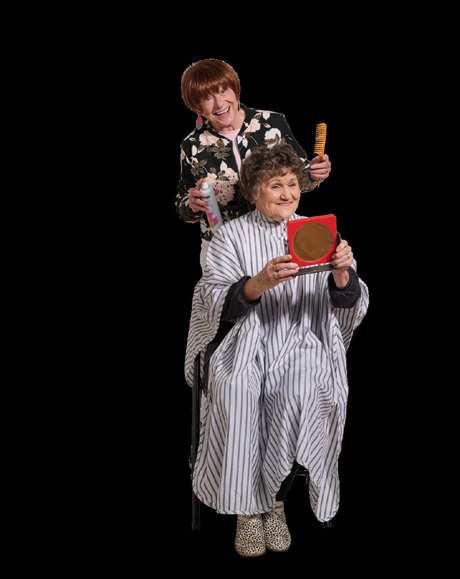
Chelsea 3196
Chelsea
Cheltenham 3192 Allambee Nursing
3169
South 3169
Dingley Village 3172
Edithvale 3196
3190


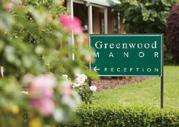
Parkdale 3195
KNOX Council
Bayswater 3153
3155
Ferntree Gully 3156
3180
eld 3156
Ferntree Gully 3156
Note: 1. CALD; dementia care available
2. Austrian, CALD, Croatian, Dutch, Eastern European, European, German, Hungarian, Latvian, Northern European, Polish, Russian, Scandinavian, Southern European, Swiss, Ukrainian,Western European
3. Italian, Maltese; allied & mental health available

CALD, European, Filipino, Italian, Polish
Arabic, Bengali, Fijian, Greek, Hindi, Italian, Muslim, Polish,Turkish
Austrian, European, German, Swiss
Welcome to a caring community
Home Locations: Hughesdale | Narre Warren | Narre Warren South | Carrum Downs Coburg North | Parkdale | Traralgon | Boronia | Ashwood
Enquiries Welcome (03) 9428 2800 or visit www.maacg.com.au
3131
Ringwood North 3134
Templestowe 3106
Aged Care Homes listed by Councils (LGAs) and then Suburbs
Footscray 3011
Council
3012
3013
Council Bayswater North 3153


continued to MELTON
MAROONDAH Council continued
Kilsyth 3137
Gracevale Grange SRS 48 Liverpool Rd 9723 9444 P
Kirkbrae Presbyterian Homes Aged Care 794 Mount Dandenong Rd 9724 5200
Manor 722
Overbeek Lodge 736 Mount Dandenong Rd 9728 7450
Ringwood 3134
Ringwood North 3134
Della dale Aged Care
Vermont 3133
Carlton 3053
East Melbourne 3002
Flemington 3031
Kensington 3031
Melbourne 3004
Parkville 3052
MELTON Council
Burnside 3023
Melton 3337
Aged Care Homes listed by Councils (LGAs) and then Suburbs
continued to MONASH
Council continued Melton South 3338
3149

Oakleigh East 3166
Oakleigh South 3167
(BlueCross)
Wheelers Hill 3150
Nellie Melba RetirementVillage
Waverley Hill SRS 946-952
Weary Dunlop
MOONEE VALLEY Council
Ascot Vale 3032
Avondale Heights 3034
Keilor East 3033 Cyril Jewell
Moonee Ponds 3039
Coburg North 3058
Fawkner 3060
Fitzroy North 3068

Rosebud 3939
3941
Safety Beach 3936
Shoreham 3916
Somerville 3912
Tyabb 3913
3090
3096
3206
3004
3207
3205
3181
Council
Armadale 3143
Iris 3146
3144
Malvern
3181
3130
Blackburn South 3130
Box Hill 3128
Burwood 3125
Burwood East 3151 Burwood
Forest Hill 3131
Mont Albert 3127 Mont
Mont Albert North 3129 mecwacare
Nunawading 3131
METROPOLITAN Aged Care Homes listed by Councils (LGAs) and then Suburbs
WHITEHORSE Council continued
Surrey Hills 3127 Arcare Surrey Hills
Broughtonlea (BlueCross)
Vermont 3133
Vermont Aged Care
Vermont South 3133
Livingstone Gardens (BlueCross)
Victoria Grange Aged Care
Bundoora 3083
Ian Brand Nursing Home
Merv Irvine Nursing Home
Vasey RSL Care Bundoora
VMCH Bundoora Aged Care Residence
Epping 3076
Aeralife Northpoint

Lalor 3075
Mill Park 3082
Whittlesea 3757
WYNDHAM Council
Hoppers Crossing 3029
Point Cook 3030
3029
Werribee 3030
Vale 3024
Council
Alphington 3078
Clifton Hill 3068
3066
3068
Richmond 3121
Healesville 3777
3137
3140
3156
3799
Gully 3156

If you also use www.AgedCareGuide.com.au then this number is the unique identifier
There are also special notes for some service providers
Icons in the residential listings represent various types of services available in aged care facilities.
Booked Respite Beds — Dedicated respite beds that should be booked in advance. Prior assessment by an Aged Care Assessment Service (ACAS) is required.
Extra Services — A service offering a ‘higher’ standard of accommodation, including increased entertainment and food choices at an additional cost to the resident.
Pets on Premises — The facility owns dogs or cats that are able to interact freely with residents. Some facilities may consider you bringing your small pets.
Secure Dementia Unit — Safe and secure wing or unit of the aged care facility offering specialised care to those living with dementia.
Secure Garden — An onsite secure gated garden for residents (especially those with dementia) to enjoy for recreation or therapy.
Retirement Living Onsite
Specialist Palliative Care — Specialised care services for those nearing the end of their life in an aged care facility. Staff are trained in pain management and other palliative care measures. Transition Care Beds — A bed-based service allowing older people more time and support post-hospitalisation in a ‘non-hospital’ environment to optimise their functional capacity.
Culturally Specific — Care services catering to the needs of those from non-English speaking, or culturally and linguistically diverse backgrounds. Seldom exclusive, for example, all people are welcome. The home has special knowledge of the referenced culture or group.
Retirement Living Onsite — Retirement living services/village co-located on the same geographic site as the aged care facility.
3737
3356
Lake Wendouree 3350
3350
3356
REGIONAL Aged Care Homes listed by Councils (LGAs) and then Suburbs
BALLARAT Council continued
Wendouree 3355
BASS COAST Council
Cowes 3922
Inverloch 3996
San Remo 3925
3995
BAW BAW Council
Drouin 3818
Neerim South 3831
3824

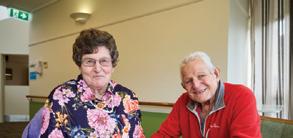

Flora Hill 3550
Heathcote 3523
Ironbark 3550
Estia HealthVictoria Heights
Kangaroo Flat 3555
Estia
North Bendigo 3550
Pinder -
BULOKE Council
Birchip 3483 Birchip
Charlton 3525
Charlton
Note: 1. Interconnecting
Council
Donald 3480
Sea Lake 3533
Nursing
Wycheproof 3527
Echuca 3564
Kyabram 3620
Rochester 3561
& Elmore
Rushworth 3612
Tongala 3621
CENTRAL GOLDFIELDS Council
Dunolly 3472
Maryborough 3465
COLAC-OTWAY Council
Apollo Bay 3233
Colac 3250
Mercy Place Colac83-99
CORANGAMITE Council
Camperdown 3260
Cobden 3266
Skipton 3361
Terang 3264
Timboon 3268
GIPPSLAND Council
Bairnsdale 3875
Eastwood 3875
Omeo 3898
Orbost 3888
GANNAWARRA Council
Cohuna 3568
Kerang 3579
Armstrong Creek 3217
Bell Park 3215
REGIONAL Aged Care Homes listed by Councils (LGAs) and then Suburbs
(GREATER) continued
GEELONG (GREATER) Council continued Belmont 3216
Bupa Barrabool55 Barrabool
Uniting AgeWell Kalkee Com'ty, Murray 9 Spring St 5243 9566
Uniting AgeWell Kalkee Com'ty, Nangatta 206 High St 5243 6688 5151
Charlemont 3217
Alan David Lodge 382Torquay Rd 4215 5217 10812
Drysdale 3222
Drysdale Grove Aged Care Facility 33-37Wyndham St via East St 5251 1230
Geelong 3220
Kardinia Parkside Care Community 299 LatrobeTce
Grovedale 3216
Grange34-36 Church St 1300 104 663 8583
Calvary Balmoral Grove24-34 Smith St 1800
Hamlyn Heights 3215
Highton 3216
Highton Gardens Care Community209
Lara 3212
Leopold 3224 Estia Health Leopold52-60
Marshall 3216
Moolap 3224 Bupa Bellarine Lakes30 Resort Blvd
Newcomb 3219
Whitehaven Assisted Care Facility15
Norlane 3214
North Geelong 3215
Lodge/Blakiston
Ocean Grove 3226
3225
3223
3222
3219
Casterton 3311
3304
3305
3331
Creswick 3363
3460
Trentham 3458
Trentham
Dimboola 3414
Jeparit 3423 Jeparit
Nhill 3418
Avonlea68-72
Natimuk 3409
3747
Rutherglen 3685
Council
Moe 3825
Council
Boort 3537
REGIONAL Aged Care Homes listed by Councils (LGAs) and then Suburbs
continued
LODDON Council continued
Dunolly 3472
Inglewood 3517
Gisborne 3437
Kyneton 3444
Kyneton2
RM Begg Kyneton Aged
3438
Woodend 3442
3722
3498
3505
3500
Ouyen 3490
s 3496
Kilmore 3764
3660
MOIRA Council
Cobram 3644
Cobram Regional Care16 Campbell Rd
Irvin House1 O'Dwyer Ave 5871 0852
Nathalia 3638
Banawah Nursing Home36-44 McDonell
Numurkah 3636
Pioneers Memorial Lodge13 Katamatite
Yarrawonga 3730
Council
Bacchus Marsh 3340
Ballan 3342
Darley 3340
MOUNT ALEXANDER Council
Castlemaine 3450
Dhelkaya Health: Castlemaine Hlth RC142 Cornish
Maldon 3463
McKenzie Hill 3451
Council
Mortlake 3272
Penshurst 3289
Port Fairy 3284
MURRINDINDI Council
Alexandra 3714
Eildon 3713
Yea 3717
3478
3467
Skipton 3361
3631
3620
3629
3630
SHEPPARTON (GREATER) Council continued
Tatura 3616
GIPPSLAND Council
Foster 3960
Korumburra 3950
Leongatha 3953
GRAMPIANS Council
Coleraine 3315
Hamilton 3300 Eventide Lutheran
Penshurst 3289
Euroa 3666
Nagambie 3608
Violet Town 3669 Honeysuckle
SURF COAST Council
Anglesea 3230
Lorne 3232
Torquay 3228
Winchelsea 3241
Manangatang 3546
3595
Corryong 3707


WELLINGTON Council
Hey eld 3858
Ma ra 3860
ParkCnr
Sale 3850
Yarram 3971
Council
Edenhope 3318
3419
Council
Baranduda 3691
West Wodonga 3690
Wodonga 3690 Estia
YARRIAMBIACK Council
Hopetoun 3396
Minyip 3392
Rainbow 3424
Rupanyup 3388
Warracknabeal 3393
eld House SRS509 Kooyong Rd Gardenvale

Table of aged care homes/residential care facilities offering culturally appropriate services
The following table is a guide only: the information should not be interpreted that these homes are exclusive to the noted cultural group nor the only homes that offer quality services to these cultural groups. All aged care homes should care for all people regardless of sexuality, race, or religious characteristics. The homes listed below have directly indicated to DPS that they have specific training, expertise, funding or heightened understanding of the special needs of the cultural group.
Cultural Group Aged Care Home Name
African Serenity Individualised Support ServicesPakenham 0439 582 656 69096
Arabic CopticVillage Hostel Hallam 9796 3018 16395
Arabic Hope Aged Care BrunswickBrunswick 9380 8028 16485
Arabic Isomer Aged CareLyster eld 9752 9455 15561
Arabic St Basil's Homes for the AgedFawkner 9358 4444 16491
Armenian Acacia GardensRingwood East 9870 0982 15707
Asian Acacia GardensRingwood East 9870 0982 15707
Asian Allbright ManorCroydon North 9726 0588 18279
Asian On Luck Chinese Nursing HomeDonvale 9844 6000 15967
Asian Serenity Individualised Support ServicesPakenham 0439 582 656 69096
Asian Sunnyhurst GardensBrighton East 9596 4040 16129
Asian The Alexander Aged Care CentreClayton 9548 7366 16582
ATSI Aboriginal Community Elders ServicesBrunswick East 9383 4244 16498
ATSI Heywood Rural Health RACHeywood 5527 0555 17962
ATSI Holmwood Aged CareHealesville 5962 4321 16588
ATSI Lyndoch LivingWarrnambool 5561 9300 15834
ATSI Rumbalara Elders Facility Shepparton North 5820 6200 20416
Auslan Serenity Individualised Support ServicesPakenham 0439 582 656 69096
Australian Sunnyhurst GardensBrighton East 9596 4040 16129
Austrian Martin Luther Homes Care Apartments© The Basin 9760 2100 21894
Austrian Tabulam &Templer Homes for the AgedBayswater 8720 1333 16361
Bengali Isomer Aged CareLyster eld 9752 9455 15561
CALD AdventCareWhitehorse Nunawading 9259 2000 15555
CALD AdventCareYarra Ranges Warburton 5966 4400 16574
CALD Aurrum Aged Care Brunswick BrunswickWest 8378 5400 16476
CALD Aurrum Aged Care HealesvilleHealesville 5962 6628 19899
CALD Avondrust LodgeCarrum Downs 9788 9020 16399
CALD Bethel Aged CareMill Park 8467 2222 18829
CALD Bethel Aged Care - Anzac LodgeCoburg North 9353 5000 16484
CALD Boronia Residential Aged CareBoronia 9428 2800 16601
CALD Box Hill (BlueCross)Box Hill 1300 964 392 22295
CALD Calvary BayviewCarrum Downs 1800 527 272 16468
CALD Calvary BonbeachBonbeach 1800 527 272 16465
CALD Calvary Capel SandsCapel Sound 1800 527 272 16613
CALD Calvary GeorgeVowell Mount Eliza 1800 527 272 16415
CALD Calvary HallamHallam 1800 527 272 16414
CALD Calvary Kingston Gardens Springvale South 1800 527 272 15525 Cultural Group Aged Care Home Name
CALD Calvary SandhurstCarrum Downs 1800 527 272 15679
CALD Calvary ScottvaleDandenong 1800 527 272 15979
CALD Calvary SpringvaleSpringvale 1800 527 272 16404
CALD Calvary St Jude’s NarreWarren North 1800 527 272 17965
CALD CalvaryViewhills Manor Endeavour Hills 1800 527 272 16208
CALD Casey Aged Care NarreWarren 9705 4200 18610
CALD Casey Manor NarreWarren South 9428 2800 15946 CALD Cobden HealthCobden
CALD Mercy Place DandenongDandenong 1300 096 428 16466
CALD Mercy PlaceTemplestowe Templestowe Lower 1300 096 428 16583
CALD Monda Lodge HostelHealesville 5969 9968 16621
CALD Mooroolbark RAC FacilityMooroolbark 9723 9650 18654
CALD Northern GardensCoburg North 9428 2800 17966
CALD Northside RAC FacilityForest Hill 8804 2732 18653
CALD Oaklea HallHughesdale 9428 2800 16628
CALD Overbeek LodgeKilsyth 9728 7450 19013
CALD Parkdale Aged CareParkdale 9428 2800 16460
CALD Rosewood Gardens Aged & Dis CareAshburton 9886 0005 16125
CALD Royal Freemasons Footscray Aged CareFootscray 1300 176 925 16561
CALD Royal Freemasons Monash GardensMulgrave 1300 176 925 16618
Cultural Group Aged Care Home Name PHONE (03) DPS Web ID
CALD Royal Freemasons Springtime SydenhamSydenham 1300 176 925 16566
CALD Serenity Individualised Support ServicesPakenham 0439 582 656 69096
CALD Tabulam &Templer Homes for the AgedBayswater 8720 1333 16361
CALD Twin Parks Aged Care CentreReservoir 8470 9888 16301
CALD Waverley Hill SRSWheelers Hill 9590 0510 19009
Cambodian Calvary SpringvaleSpringvale 1800 527 272 16404
Chinese Adare CareWantirna South 9801 7110 20581
Chinese Allbright ManorCroydon North 9726 0588 18279
Chinese BaptcareThe Orchards CommunityDoncaster East 13 22 78 21820
Chinese BaptcareWesthaven Community Footscray 13 22 78 16529
Chinese Bethel Aged CareMill Park 8467 2222 18829
Chinese Bethel Aged Care - Anzac LodgeCoburg North 9353 5000 16484
Chinese BupaTemplestowe Templestowe 1800 718 348 20561
Chinese Burwood Lodge SRSBurwood East 9886 8777 18979
Chinese Calvary SpringvaleSpringvale 1800 527 272 16404
Chinese Elderly Chinese HomeParkville 9328 4558 16507
Chinese Estia Health Kangaroo FlatKangaroo Flat 1300 682 833 21124
Chinese Hope Aged Care BrunswickBrunswick 9380 8028 16485
Chinese LifeviewTheWillows Wheelers Hill 1800 543 384 16024
Chinese mecwacare Gregory LodgeFlemington 9371 3700 16497
Chinese Menarock LIFE CamberwellCamberwell 1300 096 971 18304
Chinese On Luck Chinese Nursing HomeDonvale 9844 6000 15967
Chinese Regis Alawarra Lodge Blackburn South 1300 998 100 19113
Chinese Regis Inala Lodge Blackburn South 1300 998 100 16599
Chinese Royal Freemasons Footscray ACFootscray 1300 176 925 16561
Chinese The Alexander Aged Care CentreClayton 9548 7366 16582
Chinese Victorian Elderly Chinese Hostel AscotVale 9370 8288 16519
Croatian Arcare BurnsideBurnside 1300 272 273 16094
Croatian Arcare Civic ManorEpping 1300 272 273 18282
Croatian Arcare MaidstoneMaidstone 1300 272 273 18636
Croatian Arcare ReservoirReservoir 1300 272 273 16358
Croatian Arcare SydenhamSydenham 1300 272 273 16168
Croatian CalvaryVonlea Manor Norlane 1800 527 272 16409
Croatian Cumberland Manor RACSunshine North 9311 7079 16560
Croatian Estia Health ArdeerArdeer 1300 682 833 16557
Croatian St Basil's Homes for the AgedFawkner 9358 4444 16491
Croatian Tabulam &Templer Homes for the AgedBayswater 8720 1333 16361
Dutch Acacia GardensRingwood East 9870 0982 15707
Dutch Arcare HillsideSydenham 1300 272 273 15682
Dutch Arcare KnoxWantirna South 1300 272 273 16593
Dutch Drysdale Grove Aged Care FacilityDrysdale 5251 1230 18621
Dutch Lifeview Argyle CourtChelsea 1800 543 384 16431
Cultural Group Aged Care Home Name PHONE (03) DPS Web ID
Dutch Lifeview Emerald GladesEmerald 1800 543 384 16428
Dutch Tabulam &Templer Homes for the AgedBayswater 8720 1333 16361
Egyptian Arcare Civic ManorEpping 1300 272 273 18282
Egyptian Arcare SydenhamSydenham 1300 272 273 16168
Egyptian ArcareWaterview Craigieburn 1300 272 273 20251
Egyptian Bethel Aged Care - Anzac LodgeCoburg North 9353 5000 16484
Estn European Martin Luther Homes AC FacilityThe Basin 9760 2100 16619
Estn European Martin Luther Homes Care Apartments© The Basin 9760 2100 21894
Estn European May ower Reservoir Aged CareReservoir 9460 2480 16449
Estn European Tabulam &Templer Homes for the AgedBayswater 8720 1333 16361
Estn European The Alexander Aged Care CentreClayton 9548 7366 16582
European Acacia GardensRingwood East 9870 0982 15707
European
European
European Caul eld Manor SRSCaul eld 9569 2600 16034
European Embracia MooneeValley
European
European
European Grace of Mary Aged CareEpping 9408 8169 16304
European
European
European Lifeview Argyle
European
European Martin Luther Homes AC FacilityThe
European
European
European St Andrew's Aged
European
Filipino
German
Cultural Group Aged Care Home Name
German Arcare MaidstoneMaidstone 1300 272 273 18636
German Arcare SydenhamSydenham 1300 272 273 16168
German Estia Health ArdeerArdeer 1300 682 833 16557
German Martin Luther Homes AC FacilityThe Basin 9760 2100 16619
German Martin Luther Homes Care Apartments© The Basin 9760 2100 21894
German Tabulam &Templer Homes for the AgedBayswater 8720 1333 16361
Greek Acacia GardensRingwood East 9870 0982 15707
Greek Arcare CarnegieCarnegie 1300 272 273 18635
Greek Arcare CheltenhamCheltenham 1300 272 273 16430
Greek Arcare Civic ManorEpping 1300 272 273 18282
Greek Arcare KeysboroughKeysborough 1300 272 273 19895
Greek Arcare MaidstoneMaidstone 1300 272 273 18636
Greek Arcare Malvern EastMalvern East 1300 272 273 20296
Greek ArcareWaterview Craigieburn 1300 272 273 20251
Greek Aurrum Aged Care ReservoirReservoir 9469 7555 15972
Greek BaptcareThe Orchards CommunityDoncaster East 13 22 78 21820
Greek Bethel Aged CareMill Park 8467 2222 18829
Greek Bethel Aged Care - Anzac LodgeCoburg North 9353 5000 16484
Greek Bupa Caul eldCaul eld South 1800 718 348 16246
Greek BupaTemplestowe Templestowe 1800 718 348 20561
Greek CalvaryVonlea Manor Norlane 1800 527 272 16409
Greek CraigCare PlumptonVilla GlenroyGlenroy 0416 304 711 16137
Greek Drysdale Grove Aged Care FacilityDrysdale 5251 1230 18621
Greek Estia Health ArdeerArdeer 1300 682 833 16557
Greek Estia Health EppingVicEpping 1300 682 833 16306
Greek Estia Health Oakleigh EastOakleigh East 1300 682 833 16571
Greek Fronditha Care Clayton RACClayton South 9239 2100 15524
Greek Fronditha Care LowerTemplestowe RAC Templestowe Lower 8850 5111 17964
Greek Fronditha Care St Albans RACSt Albans 9365 4300 16556
Greek Fronditha CareThornbury RACThornbury 9495 2300 16300
Greek Grace of Mary Aged CareEpping 9408 8169 16304
Greek Hope Aged Care BrunswickBrunswick 9380 8028 16485
Greek Hope Aged Care Sunshine SunshineWest 9312 3111 16559
Greek Isomer Aged CareLyster eld 9752 9455 15561
Greek Lifeview Argyle CourtChelsea 1800 543 384 16431
Greek LifeviewTheWillows Wheelers Hill 1800 543 384 16024
Greek LifeviewWillowWood Cranbourne 1800 543 384 18513
Greek May ower Reservoir Aged CareReservoir 9460 2480 16449
Greek mecwacare Gregory LodgeFlemington 9371 3700 16497
Greek mecwacare Squires PlaceAltona North 8573 4812 20889
Greek Ocean Mist Aged Care FacilityTorquay 5261 6709 20257
Greek Rosewood Gardens Aged & Dis CareAshburton 9886 0005 16125
Greek South Port Residential HomeAlbert Park 9690 3166 15589
Greek St Andrew's Aged CareArdeer 9311 9143 63291
Cultural Group Aged Care Home Name PHONE (03) DPS Web ID
Greek St Basil's Homes for the AgedFawkner 9358 4444 16491
Greek The Alexander Aged Care CentreClayton 9548 7366 16582
Hindi Bethel Aged CareMill Park 8467 2222 18829
Hindi Isomer Aged CareLyster eld 9752 9455 15561
Hindi The Alexander Aged Care CentreClayton 9548 7366 16582
Hungarian Arpad Aged CareWantirna 9801 0855 15552
Hungarian Tabulam &Templer Homes for the AgedBayswater 8720 1333 16361
Indian Arcare KeysboroughKeysborough 1300 272 273 19895
Indian Bethel Aged CareMill Park 8467 2222 18829
Indian LifeviewTheWillows Wheelers Hill 1800 543 384 16024
Indian Serenity
Indian
Indian The Alexander Aged Care CentreClayton 9548 7366 16582
Indo-Chinese
Indo-Chinese
Cultural Group Aged Care Home Name PHONE (03) DPS Web ID
Italian Estia Health EppingVicEpping 1300 682 833 16306
Italian Estia Health Knox eldKnox eld 1300 682 833 15564
Italian Estia Health Oakleigh EastOakleigh East 1300 682 833 16571
Italian Ferntree Gardens SRSFerntree Gully 9752 2170 15714
Italian GlengollanVillage Ferntree Gully 9758 1093 16229
Italian Hope Aged Care BrunswickBrunswick 9380 8028 16485
Italian Isomer Aged CareLyster eld 9752 9455 15561
Italian Lifeview Emerald GladesEmerald 1800 543 384 16428
Italian May ower Reservoir Aged CareReservoir 9460 2480 16449
Italian mecwacare Gregory LodgeFlemington 9371 3700 16497
Italian mecwacare Squires PlaceAltona North 8573 4812 20889
Italian Myrtleford Lodge Aged CareMyrtleford 5752 2222 15989
Italian Northern GardensCoburg North 9428 2800 17966
Italian Ocean Mist Aged Care FacilityTorquay 5261 6709 20257
Italian Regis Dandenong North Dandenong North 1300 998 100 15949
Italian Regis FawknerFawkner 1300 998 100 16474
Italian Rosewood Gardens Aged & Dis CareAshburton 9886 0005 16125
Italian San Carlo Homes for the AgedSouth Morang 9404 1490 16319
Italian St Basil's Homes for the AgedFawkner 9358 4444 16491
Italian Sunnyhurst GardensBrighton East 9596 4040 16129
Italian The Alexander Aged Care CentreClayton 9548 7366 16582
Italian Villa Del Sole Aged Care ResidenceGlenroy 9953 6666 16524
Jewish Acacia GardensRingwood East 9870 0982 15707
Jewish Bupa Caul eldCaul eld South 1800 718 348 16246
Jewish Caul eld Manor SRSCaul eld 9569 2600 16034
Jewish Emmy Monash Aged CareCaul eld North 8508 9300 16450
Jewish Gary Smorgon HouseCaul eld 8517 5999 19343
Jewish Residential Home CarnegieCarnegie 8517 5999 63297
Jewish Residential HomeWindsor Windsor 8517 5999 15726
Jewish Sunnyhurst GardensBrighton East 9596 4040 16129
Latvian Arcare BrightonBrighton 1300 272 273 16469
Latvian Latvian Aged Care FacilityWantirna South 9800 2977 15565
Latvian Tabulam &Templer Homes for the AgedBayswater 8720 1333 16361
LGBTIQ Archie Gray Nursing HomeKaniva 5391 4222 15901
LGBTIQ ArthurVivian Close HostelKaniva 5392 4222 15780
LGBTIQ Creswick Aged Care FacilityCreswick 5345 9175 15931
LGBTIQ Daylesford Aged Care FacilityDaylesford 5321 6517 15930
LGBTIQ Hepburn HouseDaylesford 5348 8100 20252
LGBTIQ Lifeview Argyle CourtChelsea 1800 543 384 16431
LGBTIQ Lifeview Emerald GladesEmerald 1800 543 384 16428
Cultural Group Aged Care Home Name
LGBTIQ LifeviewTheWillows Wheelers Hill 1800 543 384 16024
LGBTIQ LifeviewWillowWood Cranbourne 1800 543 384 18513
LGBTIQ The Alexander Aged Care CentreClayton 9548 7366 16582
LGBTIQ Trentham Aged Care FacilityTrentham 5421 7275 15922
Macedonian Arcare Civic ManorEpping 1300 272 273 18282
Macedonian Arcare SydenhamSydenham 1300 272 273 16168
Macedonian Aurrum Aged Care ReservoirReservoir 9469 7555 15972
Macedonian Bethel Aged CareMill Park 8467 2222 18829
Macedonian Bethel Aged Care - Anzac LodgeCoburg North 9353 5000 16484
Macedonian Cumberland Manor RACSunshine North 9311 7079 16560
Macedonian Epping Meadows Care CommunityEpping
842 924 16334
Macedonian Estia Health EppingVicEpping 1300 682 833 16306
Macedonian May ower Reservoir Aged CareReservoir
Macedonian
Malaysian Bethel Aged CareMill Park 8467 2222 18829
Malaysian On Luck Chinese Nursing HomeDonvale 9844 6000 15967 Malaysian Regis Alawarra Lodge Blackburn
Maltese Bethel Aged Care - Anzac LodgeCoburg North 9353
NESB
NESB
NESB Doutta Galla Queens ParkMoonee Ponds 9372 8888 15595
NESB Doutta GallaWoornack Sunshine 9312 0111 15606
Cultural Group Aged Care Home Name
NESB Doutta GallaYarravilleVillage Yarraville 9687 8233 15608
NESB GraceVilla, Greensborough Greensborough 9432 2855 16212
NESB HarmonyVillage Shepparton Shepparton 5831 7921 15917
NESB Iris ManorAshburton 9813 8566 16185
Nthn European Acacia GardensRingwood East 9870 0982 15707
Nthn European Tabulam &Templer Homes for the Aged Bayswater 8720 1333 16361
Nthn European The Alexander Aged Care CentreClayton 9548 7366 16582
Polish Arcare BurnsideBurnside 1300 272 273 16094
Polish Arcare Caul eldCaul eld North 1300 272 273 20293
Polish Arcare Malvern EastMalvern East 1300 272 273 20296
Polish CraigCare PlumptonVilla GlenroyGlenroy 0416 304 711 16137
Polish Cumberland Manor RACSunshine North 9311 7079 16560
Polish Estia Health ArdeerArdeer 1300 682 833 16557
Polish Estia Health Knox eldKnox eld 1300 682 833 15564
Polish Isomer Aged CareLyster eld 9752 9455 15561
Polish Polish Retirement HomeBayswater 9720 3575 16577
Polish Tabulam &Templer Homes for the AgedBayswater 8720 1333 16361
Russian Lifeview Emerald GladesEmerald 1800 543 384 16428
Russian Polish Retirement HomeBayswater 9720 3575 16577
Russian Tabulam &Templer Homes for the AgedBayswater 8720 1333 16361
Scandinavian Tabulam &Templer Homes for the AgedBayswater 8720 1333 16361
Serbian Aurrum Aged Care ReservoirReservoir 9469 7555 15972
Serbian CalvaryVonlea Manor Norlane 1800 527 272 16409
Serbian Cumberland Manor RACSunshine North 9311 7079 16560
Serbian St Basil's Homes for the AgedFawkner 9358 4444 16491
Singaporean Acacia GardensRingwood East 9870 0982 15707
Singaporean Bethel Aged CareMill Park 8467 2222 18829
Singaporean On Luck Chinese Nursing HomeDonvale 9844 6000 15967
Slavic Kalyna CareDelahey 9116 4100 16552
Slavic May ower Reservoir Aged CareReservoir 9460 2480 16449
South African Arcare CarnegieCarnegie 1300 272 273 18635
South African Arcare Caul eldCaul eld North 1300 272 273 20293
South African Arcare Malvern EastMalvern East 1300 272 273 20296
Cultural Group Aged Care Home Name PHONE (03) DPS Web ID
South African Arcare Nirvana AvenueMalvern East 1300 272 273 15587
South African BupaTemplestowe Templestowe 1800 718 348 20561
Spanish Arcare MaidstoneMaidstone 1300 272 273 18636
Spanish CalvaryVonlea Manor Norlane 1800 527 272 16409
Sri Lankan Arcare KeysboroughKeysborough 1300 272 273 19895
Sri Lankan LifeviewTheWillows Wheelers Hill 1800 543 384 16024
Sri Lankan Serenity Individualised Support ServicesPakenham 0439 582 656 69096
Sri Lankan St Basil's Homes for the AgedFawkner 9358 4444 16491
Sri Lankan Sunnyhurst GardensBrighton East 9596 4040 16129
Sthn European Tabulam &Templer Homes for the Aged Bayswater 8720 1333 16361
Swiss Martin Luther Homes Care Apartments© The Basin 9760 2100 21894
Swiss Tabulam &Templer
Table of Home Care Package (HCP) providers offering culturally appropriate services
The following table is a guide only. The information should not be interpreted that these Home Care Packages are exclusive to the noted cultural group nor the only packages that offer quality services to these cultural groups. All Home Care Packages are tailored to care for all people regardless of sexuality, race or religious characteristics. The service providers of these Home Care Packages, listed below, have directly indicated to DPS that they have specific training, expertise, funding or heightened understanding of the special needs of the cultural group.
African Abigail Mamas Healthcare Services Pty Ltd 0401 093 396 65824
African Auspire CareVIC 1300 433 983 38603
African Morcare Services 9800 4433 38425
African Pearl Home Care - Ballarat 8731 1696 63826
African People First Healthcare 9402 9533 38676
Arabic Abigail Mamas Healthcare Services Pty Ltd 0401 093 396 65824
Arabic Accent Home Care
8824 1000 21355
Arabic Active Community Group 8820 0000 61989
Arabic Home Caring
1300 875 377 39049
Arabic IWAA Home Care Services (VIC) 0435 878 173 38679
Arabic Just Better Care Melbourne Bayside & South East Melbourne 9596 2444 38512
Arabic MannaCare Community Care
Arabic MiCare Home Care Packages -Victoria
1300 902 023 18319
1300 064 064 18308
Arabic MiCare Home Care Packages Southern 1300 064 064 17573
Arabic Pearl Home Care - Ballarat 8731 1696 63826
Arabic People First Healthcare
Arabic RusCare Community Care
9402 9533 38676
9793 0028 21812
Arabic VASS Aged Care & Disability Support Services 9359 2861 21460
Armenian Pearl Home Care - Ballarat
Asian Abigail Mamas Healthcare Services Pty Ltd
Asian Access Health & Community Richmond
Asian Active Community Group
Asian Comm Care
Asian FCCVI Home & Community Care
Asian Home Caring
8731 1696 63826
0401 093 396 65824
9810 3000 18187
8820 0000 61989
9803 3504 38435
9687 9011 18997
1300 875 377 39049
Asian Kal'ang Respite Care Centre Aboriginal Corporation 07 4124 7780 17392
Asian MannaCare Community Care
Asian MiCare Home Care Packages -Victoria
1300 902 023 18319
1300 064 064 18308
Asian MiCare Home Care Packages Southern 1300 064 064 17573
Asian Morcare Services
Asian Pearl Home Care - Ballarat
Asian TSC Home & Community Care
Assyrian Pearl Home Care - Ballarat
Assyrian People First Healthcare
Assyrian VASS Aged Care & Disability Support Services
ATSI Aboriginal Community Elders Services
ATSI AccessCare
ATSI Alfred Health Home Care Packages
9800 4433 38425
8731 1696 63826
9898 5566 38303
8731 1696 63826
9402 9533 38676
9359 2861 21460
9383 4244 16498
1300 819 200 17601
9076 6864 17599
Cultural Group Service Provider PHONE (03) DPS Web ID
ATSI WDHS Home Care Packages 5551 8306 17621
Auslan Pearl Home Care - Ballarat 8731 1696 63826
Austrian Abigail Mamas Healthcare Services Pty Ltd 0401 093 396 65824
Austrian Accent Home Care 8824 1000 21355
Austrian Pearl Home Care - Ballarat 8731 1696 63826
Bengali Pearl Home Care - Ballarat 8731 1696 63826
Bengali People First Healthcare 9402 9533 38676
Bhutanese Pearl Home Care - Ballarat 8731 1696 63826
Bosnian Accent Home Care 8824 1000 21355
Bosnian ACCS Barwon 1800 953 963 22244
Bosnian ACCS North &West 1800 953 963 17683
Bosnian ACCS South & East 1800 953 963 18170
Bosnian IWAA Home Care Services (VIC) 0435 878 173 38679
Bosnian MCWA - Aged CareWith A Di erence 9318 1111 22041
Bosnian Pearl Home Care - Ballarat 8731 1696 63826
Bosnian People First Healthcare 9402 9533 38676
Bosnian Village Baxter Community Care 5971 6380 21734
Burmese MiCare Home Care Packages -Victoria 1300 064 064 18308
Burmese Pearl Home Care - Ballarat 8731 1696 63826
CALD Accent Home Care
8824 1000 21355
CALD Access Health & Community Richmond 9810 3000 18187
CALD AccessCare 1300 819 200 17601
CALD Active Community Group 8820 0000 61989
CALD Alfred Health Home Care Packages 9076 6864 17599
CALD alpine@home Community Care Services 5755 0142 17634
CALD annecto at Home Support Grampians Region 1800 266 328 20879
CALD annecto at Home Support Loddon Mallee Region 1800 266 328 17684
CALD annecto at Home Support Northern Region (VIC) 1800 266 328 17652
CALD annecto at Home Support South Eastern Region (VIC) 1800 266 328 17660
CALD annecto at Home SupportWestern Region (VIC) 1800 266 328 19909
CALD Auspire CareVIC
1300 433 983 38603
CALD Australian Multicultural Community Services (AMCS) 9689 9170 20697
CALD Baptcare Home Help Barwon SouthWest 13 22 78 17614
CALD Benetas Home Care East 1300 236 382 17577
CALD Benetas Home Care Gippsland 1300 236 382 17720
CALD Benetas Home Care NorthWest 1300 236 382 17608
CALD Benetas Home Care Rural NorthWest 1300 236 382 17718
CALD Benetas Home Care South 1300 236 382 17703
CALD Better Living Home Care Packages (VIC)
CALD BlueCross Community Services
1300 307 344 19001
1300 964 392 17642
CALD Care ConnectVIC 1800 692 464 17609
CALD Claro Aged Care & Disability Services
1300 303 770 22122
CALD Cobden Health 5595 3100 15835
CALD Community Interlink (VIC) Home Care 1300 203 203 17626
CALD FCCVI Home & Community Care 9687 9011 18997
CALD Fronditha Care Home Care Packages 9552 4100 17596
CALD genU Home Care Packages (VIC) 1300 558 368 19528 Cultural
Cultural Group Service Provider
Chinese Better Living Home Care Packages (VIC)
Chinese Chinese Community Social Services Centre (CCSSCI) Home Care Packages
Chinese Home Caring
Chinese MiCare Home Care Packages -Victoria
Chinese MiCare Home Care Packages Latrobe/Gippsland
Chinese MiCare Home Care Packages Southern
Chinese Morcare Services
1300 307 344 19001
8848 0288 17578
1300 875 377 39049
1300 064 064 18308
1300 064 064 17681
1300 064 064 17573
9800 4433 38425
Chinese Pearl Home Care - Ballarat 8731 1696 63826
Chinese People First Healthcare 9402 9533 38676
Chinese TSC Home & Community Care
Croatian Accent Home Care
Croatian ACCS Barwon
Croatian ACCS North &West
Croatian ACCS South & East
Croatian AtYour Service Home Care
9898 5566 38303
8824 1000 21355
1800 953 963 22244
1800 953 963 17683
1800 953 963 18170
1300 952 860 38565
Croatian MCWA - Aged CareWith A Di erence 9318 1111 22041
Croatian Pearl Home Care - Ballarat 8731 1696 63826
Croatian People First Healthcare
Croatian Village Baxter Community Care
Dutch Accent Home Care
Dutch Access Health & Community Richmond
Dutch MiCare Home Care Packages -Victoria
Dutch MiCare Home Care Packages Latrobe/Gippsland
Dutch MiCare Home Care Packages Southern
Dutch Pearl Home Care - Ballarat
Dutch Sacred Heart Local
Egyptian IWAA Home Care Services (VIC)
Egyptian Pearl Home Care - Ballarat
Egyptian People First Healthcare
Egyptian Village Baxter Community Care
Estn European Accent Home Care
Estn European Auspire CareVIC
Estn European Pearl Home Care - Ballarat
Estonian Pearl Home Care - Ballarat
European Accent Home Care
European AtYour Service Home Care
European Auspire CareVIC
European Better Living Home Care Packages (VIC)
European Comm Care
European Heywood Rural Health Residential Aged Care
9402 9533 38676
5971 6380 21734
8824 1000 21355
9810 3000 18187
1300 064 064 18308
1300 064 064 17681
1300 064 064 17573
8731 1696 63826
8530 8300 17603
0435 878 173 38679
8731 1696 63826
9402 9533 38676
5971 6380 21734
8824 1000 21355
1300 433 983 38603
8731 1696 63826
8731 1696 63826
8824 1000 21355
1300 952 860 38565
1300 433 983 38603
1300 307 344 19001
9803 3504 38435
5527 0555 17962
European MCWA - Aged CareWith A Di erence 9318 1111 22041
European MiCare Home Care Packages -Victoria
European MiCare Home Care Packages Latrobe/Gippsland
European MiCare Home Care Packages Southern
European Pearl Home Care - Ballarat
Cultural Group Service Provider
European RusCare Community Care
PHONE (03) DPS Web ID
9793 0028 21812
Fijian Pearl Home Care - Ballarat 8731 1696 63826
Filipino Accent Home Care 8824 1000 21355
Filipino AtYour Service Home Care
Filipino Auspire CareVIC
1300 064 064 18308
1300 064 064 17681
1300 064 064 17573
8731 1696 63826
1300 952 860 38565
1300 433 983 38603
Filipino FCCVI Home & Community Care 9687 9011 18997
Filipino Just Better Care Melbourne Bayside & South East Melbourne 9596 2444 38512
Filipino MiCare Home Care Packages -Victoria 1300 064 064 18308
Filipino MiCare Home Care Packages Southern 1300 064 064 17573
Filipino Pearl Home Care - Ballarat
Filipino Village Baxter Community Care 5971 6380 21734
Finnish Pearl Home Care - Ballarat
French Accent Home Care
French MiCare Home Care Packages -Victoria
Cultural Group Service Provider
Hindi Like Our Own
Hindi Pearl Home Care - Ballarat
Hindi People First Healthcare
Hispanic Pearl Home Care - Ballarat
PHONE (03) DPS Web ID
1800 687 696 38470
8731 1696 63826
9402 9533 38676
8731 1696 63826
Hispanic United Spanish Latin AmericanWelfare Centre HCPs 9318 2949 22039
Hungarian Accent Home Care
Hungarian Pearl Home Care - Ballarat
Indian Accent Home Care
Indian Access Health & Community Richmond
Indian Home Caring
Indian MannaCare Community Care
Indian MiCare Home Care Packages Southern
Indian Morcare Services
8824 1000 21355
8731 1696 63826
8824 1000 21355
9810 3000 18187
1300 875 377 39049
1300 902 023 18319
1300 064 064 17573
9800 4433 38425
Indian Pearl Home Care - Ballarat 8731 1696 63826
Indian People First Healthcare
Indian SAI Home & Community Care
Indo-Chinese Accent Home Care
Indo-Chinese Active Community Group
Indo-Chinese Pearl Home Care - Ballarat
Indo-Chinese TSC Home & Community Care
Indonesian Accent Home Care
Indonesian Pearl Home Care - Ballarat
Indonesian People First Healthcare
Irish Accent Home Care
Irish Pearl Home Care - Ballarat
Islamic Auspire CareVIC
Islamic Pearl Home Care - Ballarat
Islamic People First Healthcare
Italian Accent Home Care
Italian alpine@home Community Care Services
Italian AtYour Service Home Care
Italian Auspire CareVIC
Italian BallyCara HomeCareVIC
Italian Better Living Home Care Packages (VIC)
9402 9533 38676
8785 0999 21002
8824 1000 21355
8820 0000 61989
8731 1696 63826
9898 5566 38303
8824 1000 21355
8731 1696 63826
9402 9533 38676
8824 1000 21355
8731 1696 63826
1300 433 983 38603
8731 1696 63826
9402 9533 38676
8824 1000 21355
5755 0142 17634
1300 952 860 38565
1300 433 983 38603
1300 037 542 38771
1300 307 344 19001
Italian CO.AS.IT. Aged Care Packages (VIC) 9349 9000 17661
Italian Home Caring
1300 875 377 39049
Italian MCWA - Aged CareWith A Di erence 9318 1111 22041
Italian Mercy Health Home Care Reservoir 8414 6050 17590
Italian MiCare Home Care Packages -Victoria
Italian MiCare Home Care Packages Latrobe/Gippsland
Italian MiCare Home Care Packages Southern
Italian Pearl Home Care - Ballarat
Italian People First Healthcare
Italian RusCare Community Care
Cultural Group Service Provider PHONE (03) DPS Web ID
Jewish Accent Home Care
1300 064 064 18308
1300 064 064 17681
1300 064 064 17573
8731 1696 63826
9402 9533 38676
9793 0028 21812
Italian Village Baxter Community Care 5971 6380 21734
Japanese MiCare Home Care Packages -Victoria
1300 064 064 18308
Japanese Pearl Home Care - Ballarat 8731 1696 63826
1000 21355
Jewish Jewish Care In-Home Services 8517 5999 20298
Jewish Just For U Care 9578 3024 21830
Jewish Pearl Home Care - Ballarat 8731 1696 63826
Jewish RusCare Community Care 9793 0028 21812
Korean MiCare Home Care Packages Southern 1300 064 064 17573
Korean Morcare Services 9800 4433 38425
Korean Pearl Home Care - Ballarat 8731 1696 63826
Korean RusCare Community Care 9793 0028 21812
Latin American Accent Home Care 8824 1000 21355
Latin American MiCare Home Care Packages -Victoria
Latin
Latin
Latin
Latin
Cultural Group Service Provider
LGBTIQ LifeWithout BarriersVIC 1800 792 359 20848
LGBTIQ Like Our Own
1800 687 696 38470
LGBTIQ MCWA - Aged CareWith A Di erence 9318 1111 22041
LGBTIQ Mercy Health Home Care Lynbrook 9797 3900 17604
LGBTIQ Merri Health Home Care Packages 8319 7430 19329
LGBTIQ MiCare Home Care Packages -Victoria
1300 064 064 18308
LGBTIQ MiCare Home Care Packages Southern 1300 064 064 17573
LGBTIQ Monash Health Community Support Options 9792 7747 17673
LGBTIQ Northern Health Home Care Packages 9495 3219 16338
LGBTIQ Pearl Home Care - Ballarat 8731 1696 63826
LGBTIQ Peninsula Health Home Care Packages 5970 2001 17706
LGBTIQ People First Healthcare 9402 9533 38676
LGBTIQ Rural City ofWangaratta Aged & Community Care 1300 982 662 17672
LGBTIQ Southern Cross Care (SA, NT &VIC) Inc Home CareVictoria 1800 852 772 62801
LGBTIQ Trilogy Care 1300 459 190 62701
LGBTIQ Uniting AgeWell Loddon Mallee South Home Care 5454 2100 17711
Macedonian Accent Home Care 8824 1000 21355
Macedonian ACCS Barwon
Macedonian ACCS North &West
Macedonian ACCS South & East
1800 953 963 22244
1800 953 963 17683
1800 953 963 18170
Macedonian MCWA - Aged CareWith A Di erence 9318 1111 22041
Macedonian Pearl Home Care - Ballarat
Macedonian People First Healthcare
Macedonian RusCare Community Care
Malaysian Accent Home Care
Malaysian Active Community Group
Malaysian Pearl Home Care - Ballarat
Malaysian People First Healthcare
Malaysian TSC Home & Community Care
Maltese Accent Home Care
Maltese AtYour Service Home Care
Maltese Baptcare Home Help Northern Metro
Maltese Baptcare Home HelpWestern Metro
Maltese MCWA - Aged CareWith A Di erence
Maltese Pearl Home Care - Ballarat
Maltese People First Healthcare
Maltese RusCare Community Care
8731 1696 63826
9402 9533 38676
9793 0028 21812
8824 1000 21355
8820 0000 61989
8731 1696 63826
9402 9533 38676
9898 5566 38303
8824 1000 21355
1300 952 860 38565
13 22 78 17583
13 22 78 17716
9318 1111 22041
8731 1696 63826
9402 9533 38676
9793 0028 21812
Maltese VMCH Home Care ServicesWestern Metro Region 1300 698 624 18640
Muslim Auspire CareVIC
433 983 38603
Muslim IWAA Home Care Services (VIC) 0435 878 173 38679
Muslim Pearl Home Care - Ballarat
Muslim People First Healthcare
Muslim RusCare Community Care
8731 1696 63826
9402 9533 38676
9793 0028 21812
Nepalese Pearl Home Care - Ballarat 8731 1696 63826
NESB Accent Home Care 8824 1000 21355
Cultural Group Service Provider PHONE (03) DPS Web ID
Russian Accent Home Care
8824 1000 21355
Russian Just Better Care Melbourne Bayside & South East Melbourne 9596 2444 38512
Russian Like Our Own
Russian MCWA - Aged CareWith A Di erence
1800 687 696 38470
9318 1111 22041
Russian Pearl Home Care - Ballarat 8731 1696 63826
Russian RusCare Community Care
Samoan Pearl Home Care - Ballarat
Scandinavian Accent Home Care
9793 0028 21812
8731 1696 63826
8824 1000 21355
Scandinavian Pearl Home Care - Ballarat 8731 1696 63826
Serbian Accent Home Care
Serbian MCWA - Aged CareWith A Di erence
8824 1000 21355
9318 1111 22041
Serbian Pearl Home Care - Ballarat 8731 1696 63826
Singaporean Active Community Group
Singaporean Pearl Home Care - Ballarat
Singaporean People First Healthcare
Singaporean TSC Home & Community Care
8820 0000 61989
8731 1696 63826
9402 9533 38676
9898 5566 38303
Sinhalese Pearl Home Care - Ballarat 8731 1696 63826
Slavic ACCS Barwon
Slavic ACCS North &West
Slavic ACCS South & East
Slavic Auspire CareVIC
Slavic MCWA - Aged CareWith A Di erence
Slavic Pearl Home Care - Ballarat
South African IWAA Home Care Services (VIC)
1800 953 963 22244
1800 953 963 17683
1800 953 963 18170
1300 433 983 38603
9318 1111 22041
8731 1696 63826
0435 878 173 38679
South African Pearl Home Care - Ballarat 8731 1696 63826
South African People First Healthcare 9402 9533 38676
South Asian Accent Home Care
South Asian Active Community Group
South Asian AtYour Service Home Care
8824 1000 21355
8820 0000 61989
1300 952 860 38565
South Asian Pearl Home Care - Ballarat 8731 1696 63826
South Asian RusCare Community Care
South Asian TSC Home & Community Care
Sthn European Accent Home Care
Sthn European Auspire CareVIC
Sthn European Pearl Home Care - Ballarat
Spanish Accent Home Care
Spanish AtYour Service Home Care
Spanish Auspire CareVIC
9793 0028 21812
9898 5566 38303
8824 1000 21355
1300 433 983 38603
8731 1696 63826
8824 1000 21355
1300 952 860 38565
1300 433 983 38603
Spanish MiCare Home Care Packages -Victoria 1300 064 064 18308
Spanish MiCare Home Care Packages Southern 1300 064 064 17573
Spanish Pearl Home Care - Ballarat 8731 1696 63826
Spanish Sacred Heart Local 8530 8300 17603
Spanish United Spanish Latin AmericanWelfare Centre Home Care Packages 9318 2949 22039
Cultural Group Service Provider PHONE (03) DPS Web ID
Sri Lankan Accent Home Care
Sri Lankan Auspire CareVIC
Sri Lankan BodeWell Community Care Packages South
8824 1000 21355
1300 433 983 38603
Melbourne Region 1300 726 291 19264
Sri Lankan MiCare Home Care Packages -Victoria 1300 064 064 18308
Sri Lankan MiCare Home Care Packages Southern 1300 064 064 17573
Sri Lankan Pearl Home Care - Ballarat 8731 1696
Sri
Sri
Swiss
Tamil Pearl Home Care - Ballarat 8731 1696 63826
Tamil
See De nition of
ADVOCACY AND INFORMATION
ACA PrimeCare Financial Planning
853 875 91 38141
Active Community Group 8820 0000 46, 127 61989
Calvary Home Care - Metro Melbourne 1300 797 522 27 16056
Healthy Ageing Place Mornington (& HC o ce) 5978 9700 59 38880
Mercy Health 1300 478 776 59 37284
Mercy Health Com'ty Nursing Service 1300 478 776 59 37857 moveU 0411 757 185 110 37229
Polio Australia 9016 7678 43 71086
Real Estate Care Service
759 709 99 37050 VitalCALL
VMCH Carers Support Services (Eastern Metro)
848 252 50 63095
698 624 74 37853 VMCHWantirna Home Care Services
698 624 74 64082 Well Placed Care
ASSESSMENTS
8171 109 38111
Active Community Group 8820 0000 46, 127 61989
Calvary Home Care - Metro Melbourne 1300 797 522 27 16056
Dementia Support AustraliaVIC 1800 699 799 218 37235
Healthy Ageing Place Mornington 5978 9700 59 38880
Mercy Health 1300 478 776 59 37284
Mercy Health Com'ty Nursing Serv 1300 478 776 59 37857
Plena Healthcare 13 60 33 118 37938
Right at Home Melbourne Brighton 8583 7447 15 64293
Right at Home Melbourne GlenWaverley 8521 7120 15 64548
Right at Home Melbourne North 8407 8814 15 64609
Right at Home RightCare 07 3054 1360 15 22069
Right at Home SouthwestVictoria 4510 8919 15 63492
VMCH Carers Supp Serv (Eastern Metro)
698 624 74 37853
VMCH ShortTerm Restorative Care 1300 698 624 74 38056
Well Placed Care 9070 8171 109 38111
ASSISTIVE TECHNOLOGY
Active Community Group 8820 0000 46, 127 61989
Calvary Home Care - Metro Melbourne
797 522 27 16056
Calvary Home Maintenance & Modi cations 1800 527 272 27 37128
MePACS Personal Alarm


Throughout your aged care journey, there may come a time where you need to make changes to the services you are receiving.
This may be because you’re going on a holiday or need to go into hospital and don’t need any services to be delivered while you’re away. Perhaps your needs have changed and your current supports no longer suit you. Alternatively, you may like to change providers, either because you’re moving to a different area or because you’re not entirely happy with your current provider.
The process of making changes to your current services depends on the type of support you are receiving. However, the first step should be to talk with your current provider.
Service providers have an ongoing responsibility to make sure you receive quality care and to respect your rights and preferences. They should monitor the services they provide under your care plan to ensure your needs and goals are being met. If there are significant changes in your care needs, they can help you through the process of reviewing your supports.
Reviewing your needs and supports may mean that you need to have another aged care assessment. For example: if you were originally assessed as having low-level care needs, but your mobility has decreased over time and you would like to access higher-level supports.
You can request a reassessment by your local ACAS to determine if you’re eligible for higher-level care. You must be reassessed to move on from CHSP supports and between different levels of Home Care Packages.
Depending on the services you’re already receiving you may need to consider other options, such as:
Reviewing your care plan to identify alternative support options and priorities, such as replacing informal supports with formal supports or considering additional support services like support on weekends
Purchasing additional private services
Utilising residential care, either as short-term respite to complement your package or as a long-term option
If your current provider can’t offer the services or changes you want, you can switch to a different provider that can meet your needs.
When choosing a new provider:
Take the time to research a new provider to make sure they can meet your needs
Contact My Aged Care to get a new referral code to give to your new provider and agree on a date to switch your services
Notify your current provider, in writing, to let them know you will be terminating your services with them and from what date
apply.




After making decisions for yourself throughout your adult life, it makes sense that you would want to maintain that control by self-managing your Home Care Package (HCP).
You may decide to organise and manage the coordination of your own supports in your package rather than utilise a case manager who would commonly deal with your package on your behalf and direct the care and support you receive.
As a consumer, you have every right to exercise that freedom to self-manage your package.
Some people who self-manage their own package find they have more choice and control over their HCP than before.
Additionally, people who self-manage their care can cut down on the administration costs and case management fees that they would normally have to pay. This means more of your package funding can go towards the care and services you require.
When you self-manage your HCP, you get to choose an approved provider, pick and manage your support workers, decide when you want to receive these services and negotiate how much you pay for the provided services.
Choosing to self-manage your own package doesn’t mean you are doing this all by yourself either. The provider you choose will assist you in receiving the correct care and services.
Your provider has an obligation to provide you with all the information you need to successfully self-manage your HCP and support you through the self-managing process.
You will work in partnership with your provider to decide how involved you want to be when it comes to managing your care.
This means you can set boundaries and expectations with your provider on what they should be covering and what tasks you will be organising.
When considering self-management of your package, you need to consider whether you have the time and energy to undertake this role.
For instance, if you have been diagnosed with dementia, it may not be the best option for you. However, you can ask your partner or loved one to self-manage your package on your behalf.
It is important to keep in mind that some providers may have policies around self-management, so you should definitely shop around and enquire with providers about how they support clients who wish to self-manage their package.
The resident agreement is a legal agreement between you and your aged care home.
You will be provided with a resident agreement to sign, which may cover the services and fees you receive, along with your rights, as a resident of the aged care home you move into.
Your resident agreement should include the following: the policies and practices used to set your fees and charges; the level of daily fee you’ll be asked to pay; any extra services you’ve agreed to receive and their costs; any circumstances where you might be asked to leave and how the aged care home will help you find somewhere more appropriate; your rights and responsibilities as a resident in your new aged care home; your aged care home’s responsibilities to you as a resident; how the aged care home will deal with any complaints you, your carer, friends or family may make; and any other matters agreed between you and the aged care home’s manager, within the requirements of the AgedCareAct1997 .
If you choose to enter into a resident agreement, you don’t have to sign it at the time it is offered. You may want to take time to ask your friends, family, carer, financial advisor or legal practitioner for help to go through the agreement, although you don’t have to.
While there is no time limit for signing the resident agreement, it is in your best interest to finalise the resident agreement as soon as you can, as it covers your rights and responsibilities.
Since the resident agreement is a legally binding document, it’s important you understand everything in the document before you sign it.
If you have any questions, you should ask your new aged care home. It’s their responsibility to make sure the agreement offered to you is clear. You can also ask your family, friends, carer or a legal practitioner to help you understand the terms of your agreement.
If you understand your agreement and want to sign it, but are physically unable to, you can ask someone with the legal authority to sign on your behalf, such as someone who holds your power of attorney.
Should you change your mind, you can withdraw from the resident agreement within 14 days of signing by notifying your aged care home of your decision in writing. You will still need to pay your care fees and charges for care you’ve received during the 14 days.
Changes can only be made to the agreement if both you and your aged care home agree.
Some aged care homes provide ‘extra services,' such as a higher standard of accommodation, increased entertainment options and more diverse food choices.
Some homes may have approval from the Australian Government to offer additional ‘hotel-like’ services at an additional cost to the resident.
‘Extra service’ only refers to the standard of accommodation, meals, food and entertainment, not to the level of care which is legislated to be of a high standard across all aged care homes.
Services delivered and cost may vary between providers and they should be outlined in your resident agreement.
In some cases, the entire home is ‘extra service,’ while in others, a distinct part of that home, such as a separate building, wing or unit. is dedicated to extra services.
Some of the extra services you might be offered include:
A bigger room Internet
Daily newspaper Satellite-TV
Phone
Choice of meals
Selection of beverages, including wines, beer and spirits
Special therapies, such as massage or aromatherapy
Leisure/entertainment facilities
Extra service fees are set by the provider and approved by the Australian Government. This is an additional charge on top of the basic daily care fee, accommodation payment and any means-tested fee.
Some providers may offer rooms with a non-optional extra service package. You can only take up the room if you agree to and pay for the extra services offered.
Other providers may offer extra services as an optional package that you can choose or cancel at any time.
In this case, switching from general residency to extra service residency within the same home does not change the accommodation payment you have already agreed to when entering the home and the provider can’t charge a new or additional accommodation payment.
All people in aged care homes have the option to purchase additional services, such as entertainment or lifestyle choices, for an extra fee. Providers can not charge additional service fees for anything that is part of the normal operation of the nursing home and you have to agree to these charges before they are being delivered.
Aged care homes that offer extra services are listed in the residential table starting on page 182.
For many older Australians, leaving their home to move into residential care is a lifestyle change that can lead to an emotionally challenging experience.
This transition can become more challenging for older people from culturally and linguistically diverse (CALD) backgrounds requiring access to residential and community aged care services that are sensitive to meeting their specific cultural, spiritual, dietary and linguistic needs.
With an increasing ageing and migration population, it is essential that Australian aged care services and communities have the capacity to respond to the unique needs of people from CALD backgrounds.
Meeting the needs of the nation’s older people from CALD backgrounds has been a growing focus of the Australian Government.
Providing suitable cultural care has been associated with huge health and wellbeing benefits for this growing group of older Australians, which has led to the government’s introduction of a number of initiatives.
Facilities with clusters for CALD older people generally consist of three or more residents from a similar background and staff who speak their language.






Cluster facilities also make an extra effort to focus on meeting the cultural, spiritual, dietary and social needs of CALD residents.
The aim of clustering is to:
Enhance the quality of care provided to residents from CALD backgrounds in residential aged care facilities
Promote and facilitate access to residential aged care facilities for people from CALD backgrounds
Enable residents to observe religious, spiritual, cultural and personally significant events
Improve communication between staff and residents
Maintain dietary customs according to the CALD backgrounds of residents’ religious and cultural preferences
Provide social and activity programs that appropriately cater for the needs and interests of CALD residents
There are also culturally specific aged care facilities that have formally entered into a contract with the Australian Government to, wherever possible, meet the needs of a specific cultural group.
Partners in Culturally Appropriate Care (PICAC) is a national initiative, funded by the Australian Government, designed to improve aged care service delivery for older people from CALD communities.
The PICAC initiative has resulted in:
More aged care service providers delivering culturally appropriate care to older CALD people
Better access for older CALD people to culturally appropriate residential and community care services

Older CALD people having a greater capacity to make informed decisions about residential and community-based aged care
To find out more about PICAC in VIC, contact the Centre for Cultural Diversity in Ageing by calling (03) 8823 7979.
Healthcare professionals in general practice treat patients from a diverse range of cultural and linguistic backgrounds.
Many Australians speak a primary language other than English and patients with limited English proficiency may be less likely to adhere to medication regimes and follow-up plans.
They may also have a decreased understanding of their diagnosis and less overall satisfaction with their care. Access to high quality medical interpreter services may improve the quality of care for these patients.

Fully Acredited residential aged care
Generous care staff levels, low staff turnover
Short Stay, Respite, Permanent, Memory Support and Pallative Care
Nutritious meals cooked onsite
Utilising the latest dementia and falls detection technology
International channels such as RAI & TV2000
Low means and supported residents welcomed





The Translating and Interpreting Service (TIS National) is an interpreting service provided by the government. The service covers over 100 languages and is available 24/7 on 1800 131 450.
See pages 185–189, 190–195 for a list of care homes and Home Care Package providers in Victoria who can meet the needs of people from a range of cultures.
There are a number of groups of people that the government recognises as ‘special needs’ groups when it comes to aged care services.
Aged care providers are required to consider the needs of these groups in the provision of care:
Aboriginal and Torres Strait Islander (ATSI) – The care needs of older ATSI people can be quite specific and there is a cultural element that needs to be considered in the delivery of care. See pages 185–189, 190–195 for an overview of service providers that have indicated to cater for ATSI clients.

We believe in life’s little luxuries and pursuing the things you love. Each of our residents is accepted as an individual, treated with warmth and respect, and encouraged to express culture and custom.
Expect exemplary care tailored to your needs and expectations.
Our care choices include:
• respite care
• permanent residential care
• couple’s accommodation
• individualised and group activities supporting mobility, reablement, health and wellbeing
• menu options catering for individual and cultural needs.
Call us today to book a tour and meet with our friendly team.
Care leavers – A care leaver is a person who, as a child or youth, spent time in institutional care or other types of out of home care like orphanages, children’s homes or foster care. Due to this, aged care has been flagged as an area that can cause distress and anxiety.
Culturally and linguistically diverse people (CALD) – Aged care services that cater specifically for people who are culturally and linguistically diverse might have staff that speak a foreign language, have specific cultural activities or meet spiritual needs.
The ‘National Ageing and Aged Care Strategy for People from Culturally and Linguistically Diverse (CALD) Backgrounds’ helps providers deliver quality care and aims to make culturally appropriate aged care more accessible. See pages 185–189, 190–195 for a list of culturally appropriate homes and services.
Disability – If you have a disability, are over 65 years of age and currently receive support through the National Disability Insurance Scheme (NDIS), visit ndis.gov.au or phone 1800 800 110 to find out what services are available to you.
Financially disadvantaged – If you have genuine difficulty paying aged care fees and charges, financial hardship provisions may apply. These allow for your fees and charges to be reduced or waived.
Homeless – If you are currently experiencing homelessness/ at risk of becoming homeless, there are government-funded services that can help solve your housing problems or assist with financial or legal issues.
LGBTIQ – Through the ‘National LGBTI Ageing and Aged Care Strategy,’ the government aims to ensure lesbian, gay, bisexual, transgender, intersex and questioning (LGBTIQ) people have access to the same options in aged care that are available to all Australians.
Rural & regional clients – Services offered in rural and regional areas will depend on the needs of the whole community and sometimes aged care, health and community services are combined to meet local health needs.
Veterans – Veterans have a ‘special needs’ status to support complex medical requirements, including high levels of emotional and cultural support in old age as a result of a veterans’ wartime experience.
Contact the Department of Veterans’ Affairs on 1800 838 372 or visit www.dva.gov.au for information about support for veterans.

Safe, inclusive, af rming care provider for residents from LGBTIQ+ communities.
Lifeview homes are proudly Rainbow Tick accredited. Everyone is free to age with grace, dignity, choice and without fear of discrimination.
Our compassionate, educated staff offer specialist care for all residents including those from LGBTIQ+ communities.
With award-winning lifestyle and hospitality programs, we pride ourselves on living life to the fullest.
Find out more about the Lifeview way at www.lifeview.com.au or phone 1800 LIFEVIEW to book a tour of one of our homes.
Victorian locations: Chelsea, Cranbourne, Emerald and Wheelers Hill.
Older Australians experience high rates of loneliness and social isolation, but there are different initiatives to improve social connection and encourage interaction in the community.
The Aged Care Volunteer Visitors Scheme (ACVVS) is a program that targets loneliness and isolation in older Australians. This initiative, from the Department of Health, uses volunteer visitors to meet with people on a regular basis to provide friendship and social inclusion.
As Australia’s population ages and people are living longer, the ACVVS is becoming incredibly important for social interaction and life changing engagement.
The ACVVS improves quality of life to all involved with the program and has been proven to combat loneliness and isolation occurring in residential aged care or at home.
Older people who would benefit from the ACVVS include people who have little contact with family or friends, are isolated from their own culture or heritage, have issues with their mobility that prevent them from participating in social activities or other personal issues that might make it difficult to engage socially.
The ACVVS tries to connect like-minded individuals and recipients with similar hobbies, interests and likes to facilitate a good friendship.
There are a number of different types of volunteer visits under the ACVVS:
A residential volunteer visits a participant for a one-on-one visit at a residential aged care facility.
Group residential volunteers visit a small group of residents at a residential aged care facility who have similar interests, like gardening or knitting.
A home care volunteer visits an ACVVS recipient with an approved Home Care Package at their home.
Volunteers are not visiting to monitor your standards of care from your aged care service provider, be involved in any of your financial affairs, access your personal or care record information, provide any form of nursing or personal care or follow up a complaint about your care.
Think of your volunteer visitor as a dear friend that has come over for a cup of coffee and a chat.
To be eligible for the ACVVS, you have to be an older Australian who is at risk of/experiences loneliness, isolation or cultural loneliness. However, you have to be receiving government-subsidised residential aged care or a Home Care Package to be eligible for visits.
For further information about the program in Victoria, contact the ACVVS on 0491 272 417 or visit health.gov.au/our-work/aged-care-volunteer-visitors-scheme-acvvs.
Most of the time, aged care services work well and the people who use them are happy with the service they receive.
However, sometimes a problem may arise and you may need help to speak up and have the problem resolved.
Many people feel uncomfortable raising a complaint or concern, but it is important to address your concerns early and not leave it to escalate.
This can be particularly difficult if your complaint is about the care or services that you are dependent upon for meeting your most basic needs.
Nevertheless, we live in a society where each and every one of us, regardless of our age, has rights as citizens and individuals.
If you feel unsure or unable to address your concerns with the service provider, you can ask an advocacy service to help you.
An aged care advocate can assist you to exercise choice and control over your care services and work with you and your family on the best way to address your concerns with a provider.
Their services are usually free and they can give you information, advice and support for you to express your concerns or even speak on your behalf. They will aim to achieve the best possible outcome for you.
An advocate can:
help you understand your rights and responsibilities;
listen to your concerns and discuss your options;
support you and give you confidence in addressing a concern;
raise a concern with the service provider or speak on your behalf.
Advice is generally provided on consumer rights, human rights, aged care rights and responsibilities, financial exploitation, substitute decisionmaking, elder abuse prevention and responding to harm.
Advocates can assist with negotiating changes to your care plan, ensuring the needs of people from culturally diverse backgrounds are met. They also deliver specialist community education, such as self-advocacy and how to meet the needs of people with dementia or special needs.
There are free and independent advocacy services in every state and territory that provide telephone advice, community education and other assistance for older people.
The Older Persons Advocacy Network (OPAN) is a national network of nine state and territory organisations that have been successfully delivering advocacy, information and education services to older people in metropolitan, regional, rural and remote Australia for over 25 years.
The Australian Government funds OPAN to deliver the National Aged Care Advocacy Program across the country. Call 1800 700 600 to speak with an aged care advocate in Australia or visit at opan.com.au .
There are heartbreaking stories of older people being mistreated by the people they trust and who are closest to them.
In one instance, an 85-year-old gentleman appointed a distant relative as his power of attorney and he was neglected, unable to return to his own home, as large sums of money were taken from his bank account without permission.
Another tragic story involved a woman who became depressed and fearful, because her son, who lived with addiction, abused her verbally and psychologically, stole from her and left her isolated.
Elder abuse is defined as ‘any act which causes harm to an older person and is carried out by someone they know and trust, such as a family member or friend.’
The abuse may be physical, social, financial, psychological, sexual or negligent.
A report from the World Health Organization (WHO) suggests that the number of people experiencing elder abuse could be as high as one in ten.
As our population ages, the number of people affected by elder abuse is also expected to rise.
If you need information or advice about elder abuse, contact the national ELDERHelp line on 1800 353 374.
Signs of elder abuse may include the following: physical deterioration due to malnutrition; poor personal hygiene or unkempt appearance; untreated medical problems; a nervous demeanour or a wish to be left alone; unexplained injuries, such as black eyes and cuts physical signs of sexual assault; sexually transmitted infections; and sudden financial problems that seem out of character.
If you are in an unsafe or life-threatening situation or know someone who is, call the police on triple zero (000).
For many years, aged care services were considered something that was provided to older Australians, not for them. However, the aged care industry has been slowly changing to have aged care working for the consumer, with their personal needs at the centre of everything provided.
If you feel like a situation with family or friends isn’t alright, then it most likely isn’t. Set boundaries with loved ones about what you will and won’t accept from their behaviour.
It can be difficult to recognise and navigate as it is usually carried out by family or friends you know and trust. Elder abuse falls under the umbrella of family violence.
When someone you love is not treating you well, it can be hard to know what to do and you may be feeling guilty about getting help or contacting authorities.
The dynamic of a family member being the perpetrator of the abuse means that older people don’t necessarily want to report that abuse, because they worry about getting that person into trouble.
Methods for minimising elder abuse include:
keeping control over your finances and personal affairs for as long as possible;
putting direct debit into place for bills rather than handing over your financial information to someone else to make bill payments for you;
speaking to advocacy helplines, even if you feel the case doesn’t need to be taken further; and
staying in touch with your support networks, including social clubs, hobby groups or medical professionals.
Contact the Seniors Rights Victoria confidential abuse hotline on 1300 368 821 and select 'option 1' to discuss your concerns.
People may feel uncomfortable reporting abuse for a number of reasons, such as a fear of retaliation, a fear of forced institutional admission or a lack of understanding.
If you feel that someone in your life is uncertain about the signs of abuse or may need to reflect on their existing situation, please refer them to this guide and the 'Useful phone numbers and websites' directory located on page 9 to access additional forms of support.
There are over 2.65 million unpaid carers across Australia. The caring role is a valuable and rewarding job but also a tough one, often balancing work, family and friends, while making sure your loved one is well looked after.
With more older Australians looking to stay at home longer, more family and friends of older people are finding themselves in a carer role than ever before.
There are some great support options available to assist you with practical or emotional support and you may be eligible for financial support from the Australian Government.
Community-run carer support groups can offer a safe and understanding environment to talk about your caring role. These groups may be organised around caring for someone with a particular need (such as Parkinson’s or dementia).
Support groups are an opportunity for you to connect with other carers who are or have experienced situations similar to yours, sharing anecdotes and advice.
Carer support groups are completely confidential and can also help you to:
Discover new information
Get along to education or training workshops
Participate and get involved in activities
Head along to relaxing outings
There are also a number of support lines and websites to assist carers, just like you, in looking after older people.
Some helpful support services include:
Carer Gateway – 1800 422 737 – helps you find local support services; gives advice on a range of topics, such as health and wellbeing, financial and legal consideration; can connect you with other carers
National Dementia Helpline – 1800 100 500 – provides information and support about dementia; can connect you to support services in your area, as well as provide emotional support to help manage the impact of dementia
Carers Australia – 02 6122 9900 – runs support programs, including short-term counselling for carers with qualified counsellors
Relationships Australia – 1300 364 277 – offers a range of services, such as counselling and mediation, by phone, online and face-to-face
Lifeline – 13 11 14 – offers 24/7 crisis support and phone counselling
To find out more about financial support for carers, contact Services Australia online on servicesaustralia.gov.au or call 13 27 17.
Are you concerned about the memory, thinking or behaviour of yourself or someone you know?
Changes like these can have a number of possible causes, including stress, depression, pain, chronic illness or medications.
See your doctor if you or someone close to you experience these kinds of difficulties. Receiving a diagnosis is important because the underlying cause may be treatable.
However, major changes in memory are not normal at any age and should be taken seriously.
‘Dementia’ is a general term to describe problems that involve progressive changes in memory, thinking, behaviour and the ability to perform regular daily activities.
There are more than 100 different types of dementia. The most common types are:
Alzheimer’s disease — attacks the brain resulting in impaired memory, thinking and behaviour
Vascular dementia — caused by poor blood flow to the brain, depriving brain cells of nutrients and oxygen needed to function normally
Parkinsonian dementia — a chronic, progressive neurological condition, which, in later stages, can affect cognitive functioning
Frontotemporal dementia —˜ a disorder causing damage to brain cells in the frontal and temporal lobes, leading to impaired social skills and emotional apathy. Behaviour and personality changes often occur before memory loss and speech problems
The early signs of dementia may include short-term memory loss, temporal confusion, mood swings and changes in executive functioning, such as difficulty with skill-based tasks.
Dementia can happen to anybody, but is much more common after the age of 65. Dementia is not a normal part of ageing.
For people with dementia, their memory loss affects their adjustment to new places and people. The move to residential care should be considered before a crisis forces a more urgent response.
Good care depends on how well the care facility responds to the residents’ individual needs, including their physical, social and mental wellbeing.
Support is vital for the person with dementia, as well as family members. Although the effects of dementia can’t yet be stopped or reversed, an early diagnosis gives families a chance to access services and plan for the future.





























There are a number of organisations that offer support, information, education and counselling to people affected by dementia. The National Dementia Helpline offers advice and counselling on 1800 100 500 or dementia.org.au. This page also includes information about how the Dementia Behaviour Management Advisory Service (DBMAS) can help.
Behavioural change can occur for people with dementia, with many people experiencing changes to mood, thought, language, daily function or movement. The individual’s response to a particular circumstance or situation may alter or reduce as the dementia progresses.
Changed behaviour as a response to a person’s dementia may reduce quality of life for the person living with dementia and can contribute to carer or care worker stress. It is important to take steps to support the person living with dementia and the people that provide care to them.
The Dementia Behaviour Management Advisory Service (DBMAS) can help explain the causes for changed behaviours and identify strategies to assist the person living with dementia and their carers.
Changed behaviours may include:
Anxiety
Depressed mood
Hallucinations
Restlessness
Aggression
Sleep disturbance
Inappropriate toileting
Eating difficulties
Repeated calling out
Repetitive questioning
Wandering
Hoarding
Resistive to care
Unwanted sexualised behaviour
The Dementia Behaviour Management Advisory Services (DBMAS) is a free, nationwide service, funded by the Australian Government, supporting family, health and aged care professionals to better understand and respond to individual changes in behaviour and emotions.
The service can help explain the causes for changed behaviours and identify strategies to assist the person living with dementia and their carers. It offers specialised support, assessment, intervention and advice to assist carers and care workers of people with dementia.
DBMAS has a multi-disciplinary team of experienced health care professionals, such as registered nurses, social workers, clinical psychologists, geriatricians, speech pathologists and dietitians.
DBMAS is committed to providing culturally sensitive and effective communication. If you require an interpreter service, you can call the Translating and Interpreting Service on 1800 131 450 and ask them to contact the DBMAS service.
For more information, contact DBMAS on 1800 699 799 or visit dementia.com.au .
Whether you live in your own home or in a residential aged care home, when the end of life approaches, you may require additional support.
The primary goal of palliative care is to provide supportive care and improve the patient’s quality of life by addressing any painful or distressing symptoms.
Palliative care is divided into three subgroups:
1. Primary care — For people who only require services from their primary health care professional(s).
2. Intermediate care — Advice is provided by specialist palliative care services, but care is still given by health care professional(s).
3. Complex care — For people who require care from specialist practitioners. Patients are commonly referred to specialist palliative care services where they will receive the required care.
There are a number of different services that can offer extra support both at home or in a nursing home setting.
Services that may help you to stay in the comfort of your own home can include:
A qualified nurse to dress a wound or provide continence advice
Household jobs like cleaning, clothes washing and ironing
Help with bathing or showering, dressing, hair care and going to the toilet
Meals and other food services — assistance with preparing and eating meals or help for those with special diets
Helping to travel to shopping centres or appointments
For palliative care in a residential aged care setting, the government has developed a series of guidelines that offer support and guidance to residential aged care facilities in providing palliative care.
The ‘Guidelines for a Palliative Approach in Residential Aged Care’ outline three forms of palliative care in residential aged care, which include:
A palliative approach — aims to improve the quality of life for residents with a life-limiting illness. This can be done by reducing their suffering through early identification, assessment and treatment of pain; handling their physical, cultural, psychological, social and spiritual needs.
Specialised palliative service provision — involves referral to a specialised palliative team or health care practitioner.
End-of-life (terminal) care — appropriate when the resident is in the final days or weeks of life and care decisions may need to be reviewed more frequently.
2106
9170
Unity Independent & Assisted Living 1300 160 170 retirementliving@australianunity.com.auaustralianunity.com.au/assisted-living
9831 7222 info@baptcare.org.aubaptcare.org.au
Belvedere Aged Care 9574 1355 info@belvedere.com.aubelvedere.com.au
Benetas 1300 236 382 customercentre@benetas.com.aubenetas.com.au
BlueCross (now Opal HealthCare) 1300 437 527 contact.centre@opalhealthcare.com.aubluecross.com.au
Bolton Clarke 1300 221 122 hello@boltonclarke.com.auboltonclarke.com.au
Boroondara Aged Services Society 8809 4000 admissions@basscare.org.aubasscare.org.au
Brotherhood of St. Laurence Aged Care 1300 147 147 agedcare@bsl.org.auagedcare.bsl.org.au
Bupa Aged Care 1800 718 357 bvac.enquiry@bupa.com.aubupaagedcare.com.au
&
alphabetically This section only includes organisations and businesses who have chosen to promote with Aged Care Guide
437 527 communications@opalhealthcare.com.auopalhealthcare.com.au
6454 reception@ozplan.com.auozplan.com.au
Lane Croydon 9726 1100 enquiries@parklaneagedcare.com.auparklaneagedcare.com.au
9798 1633 enquiries@parkglen.com.auparkglen.com.au
13 60 33 info@plenahealthcare.com.auplenahealthcare.com.au
9016 7678 contact@polioaustralia.org.aupoliohealth.org.au
Aged Care Assessment Services (ACAS) are responsible for all assessments for government-funded aged care and Home Care Packages. This list provides you with the council/local government area that each ACAS services. All assessments are coordinated through My Aged Care. Call 1800 200 422 if you would like to organise an assessment.
Eastern Metropolitan ACAS Central East Manningham,Monash,Whitehorse
Eastern Metropolitan ACAS Outer East Knox,Maroondah,YarraRanges
North Eastern Metropolitan ACAS St Vincents Boroondara,Darebin(part),Yarra
Northern Metropolitan ACAS Bundoora Banyule(part),Darebin(part),Nillumbik,Whittlesea
Northern Metropolitan ACAS Heidelberg Banyule(part)
Southern Metropolitan ACAS Caulfield GlenEira,PortPhillip,Stonnington
Southern Metropolitan ACAS Kingston Bayside,GreaterDandenong,Kingston
Southern Metropolitan ACAS Mt Eliza Cardinia,Casey,Frankston, MorningtonPeninsula
Western Metropolitan ACAS North West Hume,Melbourne,MooneeValley,Moreland
Western Metropolitan ACAS Western Brimbank,HobsonsBay,Maribyrnong,Melton,Wyndham
Barwon South Western Regional ACAS Geelong Colac-Otway,GreaterGeelong,Queenscliffe,SurfCoast
Gippsland Regional ACAS Bairnsdale EastGippsland
Gippsland Regional ACAS Morwell Latrobe
Gippsland Regional ACAS Sale Wellington
Gippsland Regional ACAS Warragul BawBaw
Gippsland Regional ACAS Wonthaggi BassCoast,SouthGippsland
Grampians Regional ACAS Ararat,Ballarat,GoldenPlains,Hepburn,Hindmarsh,Horsham, Moorabool,NorthernGrampians,Pyrenees, WestWimmera,Yarriambiack
Hume Regional ACAS Shepparton GreaterShepparton,Mitchell,Moira,Murrindindi,Strathbogie Hume Regional ACAS Wangaratta Alpine,Benalla,Indigo,Mansfield,Towong,Wangaratta,Wodonga Loddon Mallee Regional ACAS Bendigo Buloke,Campaspe,CentralGoldfields,Gannawarra,GreaterBendigo, Loddon,MacedonRanges,MountAlexander, SwanHill
Loddon Mallee Regional ACAS Mildura Mildura
Warrnambool ACAS Corangamite,Glenelg,Moyne,SouthernGrampians,Warrnambool
n
n



